REPRESENTATIVE
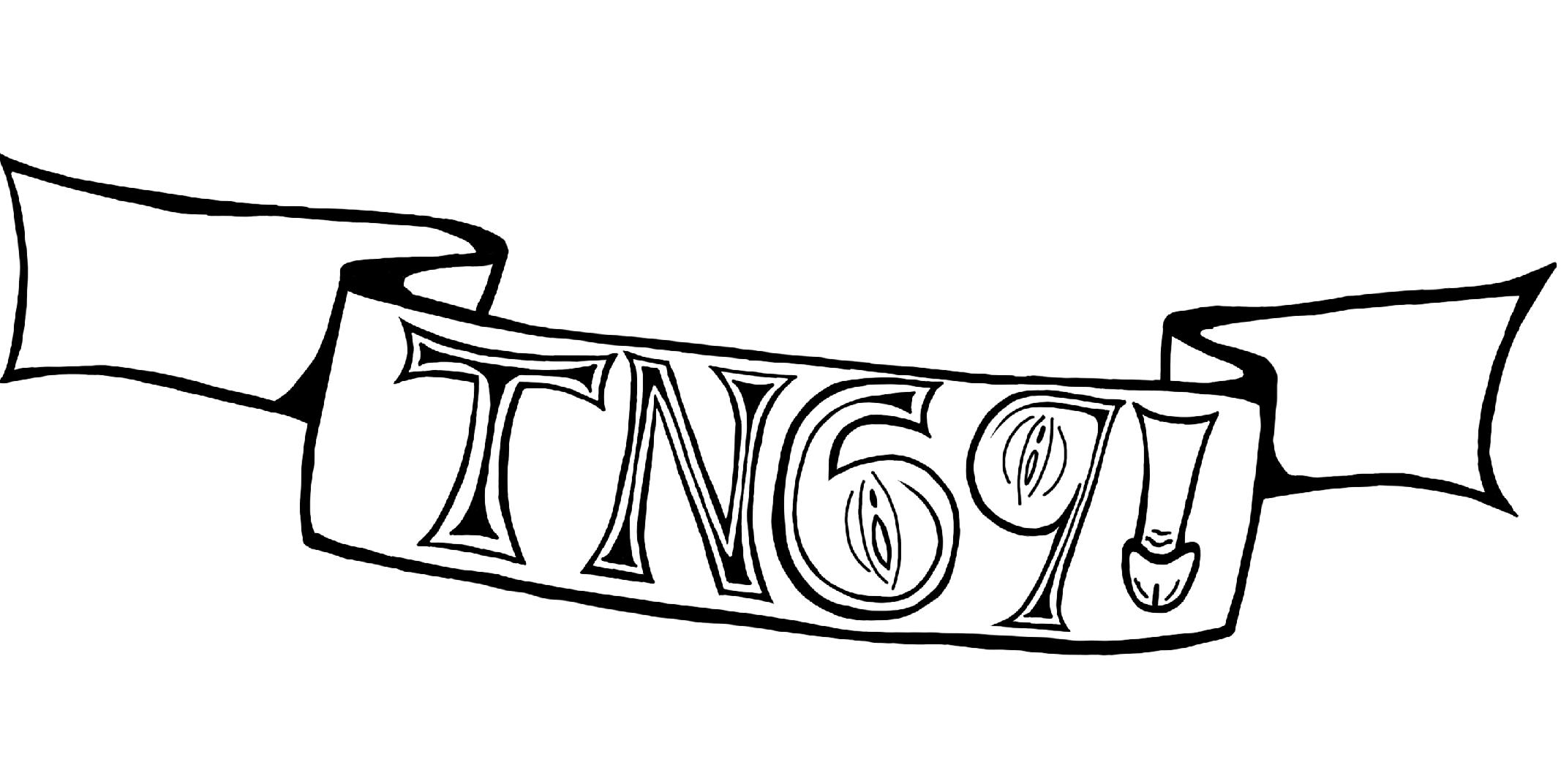
BODIES OF STUDENTS and higher education institutions, alongside the Higher Education Authority (HEA), have launched an awareness campaign to encourage conversation and education around sexual consent on college campuses.
e #UnmuteConsent campaign is a collaboration of the Union of Students in Ireland (USI), the Irish Universities Association (IUA), and the Technological Higher Education Association (THEA), and the HEA which aims to enable students to make change “by speaking out, by enhancing their own knowledge about consent, and ultimately, by challenging and changing
ASTUDENT


WALKOUT WILL TAKE PLACE ON college campuses across Ireland this ursday to protest the costs of higher education and housing.
e Union of Students in Ireland (USI) have called on students to walk out of classes at 11.11am to demonstrate their dissatisfaction with the rising cost of rents, funding gaps in higher education, and payment of
postgraduate workers.
USI’s demands include protection for renters, including immediate eviction ban, and the introduction of housing as a constitutional right, the introduction of rent caps, and public subsidisation of a ordable purpose-built student accommodation.
eir demands address the cost of college, including the abolition of the student contribution fee, and protesting the funding gap of €285 million in the higher education sector.
In May, government identi ed a funding gap of €307 million in higher education. Budget 2023 allocated €40 million additional funding for the sector, just 13% of the identi ed gap, a measure which the Irish Universities Association called “disappointing”.
USI have said that “this underfunding contributes to lower sta pay, worse working
[conditions] and Ireland’s sta student ratio of 23:1”, as compared to the European average of 15:1.
Lastly, USI is calling on government to increase the minimum wage to match the current living wage. is demand includes an increase of PhD stipends to €28,000 a year, in line with the demands of postgraduate workers.
e minimum wage was increased to €11.30 per hour in Budget 2023, a rate €1.80 lower than the projected living wage of €13.10 for 2023.
Trinity College Dublin Students’ Union (TCDSU) has pledged its support to the walkout, saying it “will be asking all schools to cooperate.”

In August, a TCDSU statement to Trinity News called on College to immediately reduce rent in Trinity-owned accommodation, and to stop exploiting the crisis as a revenue source.
TCDSU also asked that College “implements a clear roadmap for supporting homeless students so that they can continue their studies,” and for it to be “transparent in their on-campus room allocations, so students have time to make informed choices and seek out alternative accommodation”.
Access to hybrid learning models was also a key demand, noting that “this is important for students with disabilities, students with caring obligations, students without exible working hours, as well as students who are commuting long-distances or facing homelessness”.

“Every student needs equal access to adequate learning materials and should not be excluded from education by the housing crisis,” it added.
Lastly, TCDSU demanded
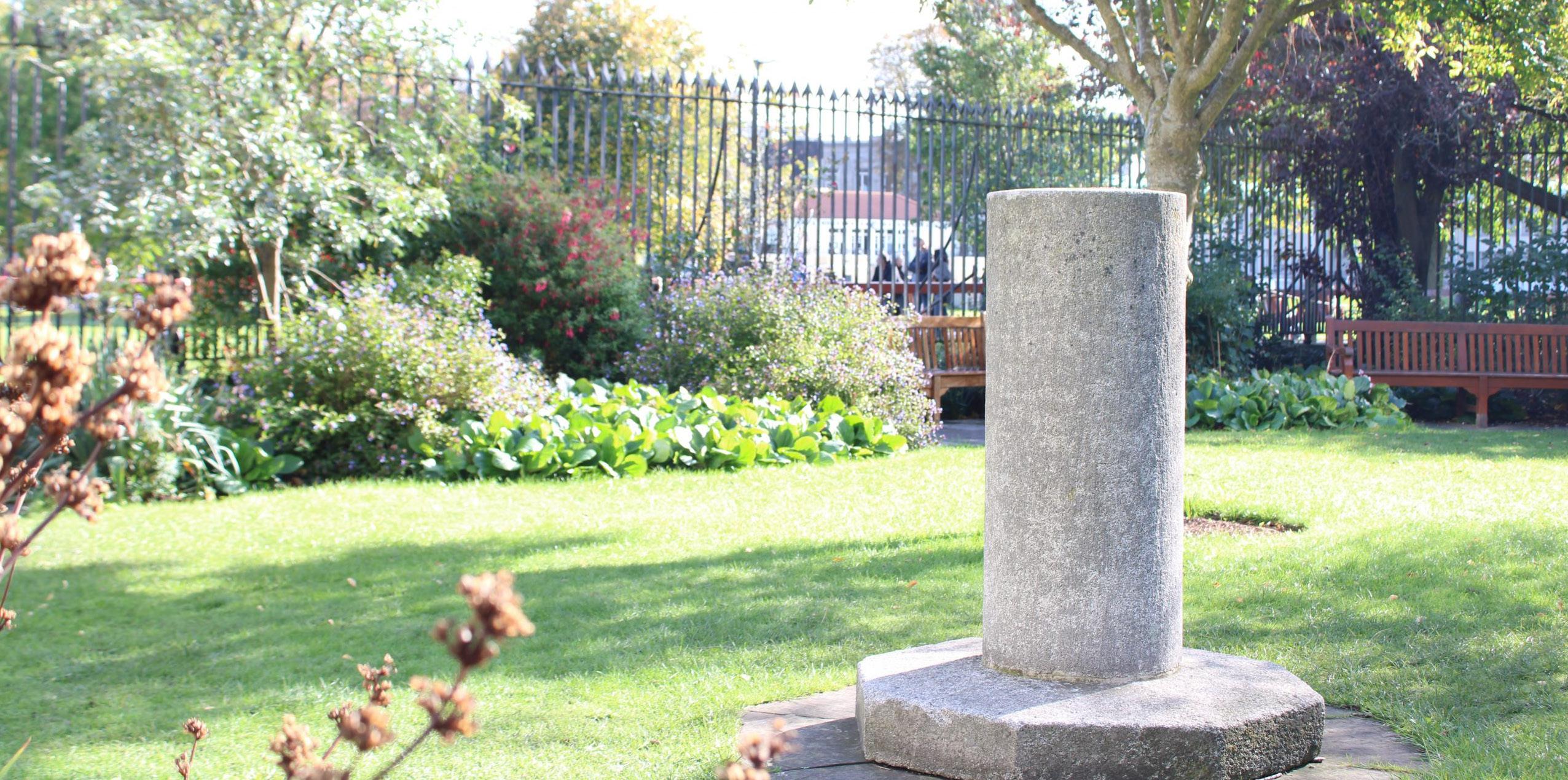 Ireland’s Oldest Student Newspaper
Ireland’s Oldest Student Newspaper
Vol. 69, Issue. 3
Trinity News is currently in its’ 69th volume, and we wouldn’t miss an opportunity to celebrate this. Trinity News endeavours to create a space for all students to express themselves, from long form articles discussing issues surrounding sex, to anonymous sex anecdotes that were submitted from the student body. From our sta , welcome to our sex issue.
ARTWORK BY SARAH MURNANE FOR TRINITY NEWS Tuesday 11 October 2022 TrinityNewsDublin Trinity_News trinitynews trinitynews
PHOTO BY ELLEN KENNY FOR TRINITY NEWS
TCDSU has pledged its full support to the planned protest
TCDSU promotes “intersecional” conversations at annual Sex Week
How will Budget 2023 a ect students?

It is never too early to start teaching consent, but it can be too late
Sex bots: the problematic potential future of the sex trade


Re ecting on Freshers’ Football
that College “increases funding for the TCDSU Accommodation Advisory Service so that we can meet the needs of our students”.
e statement noted that “as more and more students arrive at College with nowhere to stay”, the unions’ current policy of o ering support on a case-by-case basis “will become unsustainable”, calling on College to provide more long-term solutions.
e statement went on to criticise government housing policy: “ is crisis is not new, it is a symptom of decades of government policy that has prioritised investment returns over a ordability and the human right to safe and secure housing.”
It outlined ve demands for government, including the enforcement of rent pressure zones, the introduction of stricter legal protections for “digs” accommodation, and an immediate and drastic increase in “publicly owned and funded accommodation for students and the general public”.
Editor
Deputy Editor
Assistant Editor
Managing Editor
Online Editor
Deputy Online Editor
Life Editor
Deputy Life Editor
News Editor
News Analysis Editor
Features Editor
Comment Editor
Scitech Editor
Sport Editor
Head Photographer
Head Videographer
Head Copyeditors
Shannon Connolly
Kate Henshaw
Ellen Kenny Eva O’Beirne
Shannon McGreevy Adam Balchin
Ella Sloane Ella-Bleu Kiely
David Wolfe
Aidan Cusack
Lara Mellet
Abby Cleaver
Lauren Vrbanic
Séaghan Ó Domhnalláin
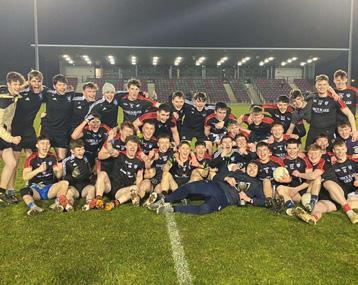
Fern Kelly
Marianna Mora
Finola Murphy Ruth McGann
TCDSU also called on government to make the Housing Assistance Payment (HAP) available to students, and to commit to a clear timeline on the referendum for a right to housing.
TCDSU has been continually vocal in its criticism of the accommodation crisis which is a ecting students. Last September, the students’ union attended

a housing protest outside the Dáil, saying at the time that “it is brutally clear that the Government needs to step up now”.
behaviours”.
e campaign seeks to combat sexual violence and harassment by encouraging students to speak out against unacceptable behaviour and access support, as well as challenging perceived norms of unacceptable behaviour.
e campaign also seeks to in uence “positive and con dent” conversations about consent and relationships, and encourage students to practice consent in their relationships and interactions
Speaking in support of the new campaign, Minister for Further and Higher Education Simon Harris said: “I have been very clear that the third level sector must lead the way in changing cultures, behaviours and practices across society to ensure that bullying and sexual harassment are not tolerated.”
“ ere is a particular responsibility on those charged with educating the next generation in ensuring that their students and learners are equipped to lead the change more widely across society.”
He added: “Everyone is entitled to a safe environment to study and work free from violence and harassment, and that informs the policy approaches and interventions that have been
adopted across the sector.”
“ e #unmuteconsent campaign is a key pillar of our consent architecture which
supports our goal of zero tolerance and ensuring that we change the culture on every single campus.”
President of USI Beth O’Reilly also welcomed the campaign, saying: “We must all continue to work towards having zerotolerance for sexual violence and harassment on all campuses, and among our student population.”
“ is involves empowering students to increase their knowledge of consent, to change behaviours as needed, to speak out about consent and to report experiences of sexual violence and harassment.”
O’Reilly continued: “ is is what the #UnmuteConsent campaign is about, and USI is pleased to be part of it, along with college and university management, and government. Consent awareness is increasing in our communities, and we need to keep building on the work that has already been done.”
e campaign is informed by the ndings of surveys of sexual misconduct in higher education institutions in Ireland.
A survey conducted last year found that over a third of female students had experienced rape, while 54% of students said they had experienced some form of sexual harassment.

Tuesday 11 October | Printed by Webprint at Mahon Retail Park, Cork.
How sexy was theancient world?
2- page 16 -Get in touch at editor@trinitynews.ie
PHOTO BY FINN PURDY FOR TRINITY NEWS
An Oireachtas committee report recommended the Ban on Sex for Rent Bill 2022 be amended or shelved due to “lack of clarity”
of concerns with the legislation’s clarity.
e Ban on Sex for Rent Bill 2022 was introduced in the Dáil in March 2022 by Social Democrats TD Cian O’Callaghan following an investigation by e Irish Examiner into tenants coerced into sexual acts by landlords in exchange for free or cheaper accommodation.
e bill proposes a jail term of seven years and a ne of up to €50,000. e o ences in the bill include sex-for-rent propositions, as well as the advertising of such propositions, and the hosting of such advertisements. e bill does not reference landlords who exchange free or cheaper accommodation for sexual photos, sexual conversations or other actions considered inappropriate.
particular in the dra ing of core terms in relation to the criminal o ences created by the bill”.
e report noted several gaps in procedure in the bill observed by the Department of Justice: “ e Department pointed out that it would be important when dra ing this bill to note that any agreement to pay for accommodation with sexual acts would not be enforceable under contract law.
“In addition, they highlighted that non-consensual acts are already o ences within law, as Sexual O ences legislation makes it clear that consent must be freely and voluntarily given and that sex without consent is counted as rape, which can be punished with a conviction up to life imprisonment.”
and legal advice is needed before recommending the best legislative approach for this issue of sex-forrent, but that it may be preferable to address the issue through amendment the existing o ence of payment for sexual acts for the purposes of prostitution”.
Under the Criminal Law (Sexual O ences) Act 2017, it is illegal to purchase or o er sexual services. It is not an o ence to receive money or any other form of compensation in exchange for sexual services.
e Act also states that it is illegal to o er or pay “any other form of renumeration or consideration” in exchange for sexual services.
Newcastlewest, Limerick, with the landlord advertising a room for a single lady “with a twist”: “Can do reduced rent for occasional fun.” When contacted by a prospective tenant, the landlord clari ed that sex was required on a weekly basis in exchange for rent of €200 for the rst month and €250 per month following that.
Another advertisement read: “Hey currently have a room to rent in North county Dublin, not looking to rent for cash but instead a fwb situation. Strictly applies to females, no males will be considered.”
ON JUSTICE has recommended that a bill seeking to outlaw sex-for-rent arrangements will not proceed through the Dáil because
THE OIREACHTAS COMMITTEEe bill was approved by all three political parties in government and had moved to the committee review.
e committee said there was a lack of clarity in the de nitions of several elements of the bill, “in
However, the committee acknowledged that stigmas surrounding rape and prostitution could deter tenants from reporting instances of sexual coercion.
e committee report said that the Department of Justice “stated that further consideration
Members of the Oireachtas Committee on Justice include Senators Lynn Ruane and Barry Ward and TDs omas Pringle, Patrick Costello, James Lawless and Jennifer Carroll MacNeill.
e Ban on Sex for Rent Bill 2022 was introduced following an investigation by e Irish Examiner into the sex-for-rent market.
One ad was for a shared house in
One advertisement o ered a single room rent-free for one girl.
e advertisement wrote: “House located in Santry Dublin, so close to city, free car park and bus stop at home.. Let’s chat soon. Note please only for sweet cute and charming girl only…Hahahaha Ping me soon, NSA.”
It is currently unclear as to when the bill will be unshelved, as the committee has recommended the bill not proceed to the Dáil.
Almost 300 cases of plagiarism and exam cheating were reported during the 2020/21 academic year alone, though cases have not resulted in the expulsion of any student
is was reported last week by Independent.ie.
Across the country, there were more than 1,500 cases of academic cheating reported over the twoyear period, with plagiarism, exam cheating, and the use of “essay mills” and similar services accounting for the vast majority of reports.
ough gures for the 2021/22 academic year have yet to be made available, records in Trinity for the preceding academic year alone con rmed that 143 cases were attributed to plagiarism, whilst another 154 related to exam cheating.

College said that despite the number of cases, no student had
been expelled as a result of such an allegation.
Trinity was among the thirdlevel institutions with the highest reported gure of such instances over the two-year period. e
Technological University of Dublin (TU Dublin) recorded some 568 cases of alleged cheating, the highest of any third-level
institution in the country. 138 such cases over the course of the most recent academic year by TU Dublin were recorded as plagiarism, as well as 33 cases of exam cheating.
Of the 568 cases, two students were expelled from the institution following investigations.
Maynooth University reported more than 200 cases of cheating, the majority of which, 186 cases, concerned allegations of plagiarism. Eleven students were reported to have used notes during in-person examinations, whilst there were four cases of students using so-called ‘essay mills’ or other cheating services.
WAS 445 CASES OF ALLEGED cheating by Trinity students occurred between 2019 and 2021, records released through the Freedom of Information (FOI) Act show.
University College Dublin (DCU) said that 117 cases were reported during the 2019/20 academic year, with Dublin City University (DCU) con rming that of 99 reported breaches of cheating regulations at the university between 2019 and 2021, four students were expelled as a result.
By contrast, University College Cork (UCC) reported only a single case of plagiarism over the past three years, with no instances of exam or essay cheating.
| Tuesday 11 October 3
THERE
PHOTO BY VICTORIA SALGANIK FOR TRINITY NEWS
A recent report from the National Women’s Council found that sex work is “highly gendered”, with a “power imbalance” between the buyer and the seller
Exploitation Research Programme (SERP) in University College Dublin, found that members of the NWC do not believe prostitution helps li women out of poverty or that sexual consent is something which can be bought.
of gender-based violence as the trade is “highly gendered”, with a “power imbalance” between the buyer and the seller.
buying it is illegal.
e Nordic model is o en criticised by Sex Workers Alliance Ireland (SWAI), which campaigns for a full decriminalisation model.
According to SWAI, the Nordic Model has no impact on the number of sex workers, and have found that it correalates with increased abusive or threatening phonecalls and behaviours.
is includes threatening to call landlords or police, threatening to damage the sex worker’s reputation and unauthorised photography as well as seeking free sex.
MEMBERS
OF THE NATIONAL WOMEN’S COUNCIL (NWC) agree that sex work is “a form of genderbased violence”, according to a recent report published by the organisation.
Participants in the report, entitled Gender Equality and Sexual Consent in the Context of Commercial Sexual Exploitation, also said that the sex trade has an impact on gender equality.
e report, published in collaboration with the Sexual
e new NWC research was conducted through roundtable discussions which were attended by council members and included migrant support workers, homeless service providers and women’s right advocates.

e report states that “almost two-thirds” of its roundtable discussion participants “have women with experiences of the sex trade within their service user group”, while two participants out of 24 were involved in the sex trade themselves.
Participants were in “ rm agreement” that sex work is a form
“[A] number of participants highlighted that the number and nature of the acts involved in prostitution are experienced as traumatic by many women, causing harm to their physical, sexual and psychological health, with long-term consequences,” the report states.
According to NWC Director Orla O’Connor, “In Ireland, the pro le of women in the sex trade (estimated to be 1,000 women at any one time) is of young, vulnerable migrants from the Global South and impoverished regions of Central and Eastern Europe.”
“ e participants were very clear that poverty and nancial
need undermines the idea of consent and questioned if women who felt there was no other nancial option but prostitution could ever really consent.”
A national survey conducted in 2020 found that 65% of people in Ireland agreed that buying sex from people who have no alternative income is a form of sexual violence
e ird National Strategy on Domestic, Sexual and GenderBased Violence published by the Department of Justice recognises prostitution as a form of genderbased violence and includes strategies to reduce its harms, which Dr Marie Keenan of UCD SERP called a “positive and progressive step”.
e NWC have previously endorsed the Nordic model of sex work, where selling sex is legal but
In 2019, SWAI cited evidence from a Médecins du Monde study of similar French legislation which suggested that the Nordic model “has no e ect on abusive or violent clients, rather it is those who are non-abusive and non-violent who seem to be dissuaded”.
According to SWAI, full decriminalisation of sex work ensures the health and safety of consensual sex workers and those exploited in the sex industry: “Sex work must be recognised as work so that sex workers can enjoy the same labour rights as other workers.”
According to the NWC report, the view that prostitution should be “treated as a job like any other” only comes from “a relatively small, but very vocal proportion of those with lived experience of the sex trade who promote this view”.
e change to the long-standing policy was announced in an email to sta a students
Trinity College Dublin Students’ Union (TCDSU) President, it was announced that students would organised by class group rather than by degree classi cation.
In it, Neville Cox and Gabi Fullam said: “Trinity College Dublin Students’ Union (TCDSU) and the Registrar are delighted to
announce one important change (approved by the College Board) in the way in which commencement ceremonies operate.”
“From now on, students in any class group will be called forward in alphabetical order from their class group, rather than alphabetically within their degree
classi cation,” it continued. It added: “Commencement ceremonies are all about the huge achievement of receiving a degree from Trinity and we really hope that this will mean that no student will feel isolated or singled out on the basis that they received a particular class of degree.”
It was also emphasised that no student should be le out because of their nancial circumstances, encouraging students who cannot a ord the cost of an academic hood or gown to contact the Registrar for nancial assistance.
STUDENTS
WILL NO LONGER BE called upon in order of degree classi cation in Trinity graduation ceremonies, College has announced.
In a joint email to sta and students by the Registrar and

Tuesday 11 October |4
PHOTO
BY JOE MCCALLION FOR TRINITY NEWS
STUDENTS
IN THE POSTGRADUATE COMMUNITY have expressed mixed feelings in the wake of the decision of the College Board to suspend funding for the Graduate Students’ Union (GSU), e ectively bringing an end to the body.
e decision came late on September 22 following a number of controversies which had embroiled the GSU, including concerns around nancial mismanagement, a lack of democratic accountability, and allegations of misconduct against its, now former, president.
Funding originally earmarked for the GSU is now being directed to Trinity College Dublin Students’ Union (TCDSU), which has also been mandated to ensure

representation by nominating postgraduate representatives to attend relevant committees.
In an email, Caitríona O’ Brien, the School Convenor for the School of Linguistic, Speech and Communication Sciences in the GSU, expressed her “disappointment and shock” at the Board’s decision to cut ties with the union. She said it “eliminates our representation instead of ensuring it”, and expressed doubts that TCDSU could accurately represent the concerns of postgraduate students.
O’ Brien said: “We are not represented by the undergraduate students’ union - we are not on their mailing list, were not included in their elections and we have no representative - the interests and needs of the postgraduate community are completely di erent (and sometimes even run counter to) the needs of the undergraduate community.”
“I am aware of issues with previous GSU leadershippostgrads ourselves were those speaking out most loudly demanding reform and change, thinking College would support us instead of damaging our community further”
She continued by saying that the undergraduate bodies were “not suitable replacements for actual graduate representation”, and that the decision represented a “huge mistake with long-lasting consequences which may have been overlooked”.
Simon Benson, a second year PhD student in zoology, said that whilst he was “disappointed” by the end of the GSU, he understood why the decision was taken to strip it of its funding.

“ e GSU has on multiple occasions de ed the democratic processes and breached its own constitution over the last 2 years (until they changed it a erwards), with no accountability,” he stated. “It’s just a shame that current postgrads have to foot the bill for the failures of past GSU o cers.”
Referring to the succession of TCDSU in dealing with postgraduate a airs, Benson said that it would be “functionally better than how things were” under the GSU, despite not being ideal.
“It’s di cult to engage with postgrads as an SU at the best of times, but the last 2 years have le a huge swathe of PhDs in particular disengaged and disillusioned,” he
continued.
“I think it’ll be tough to rebuild what has been systematically deconstructed, but sometimes a clean break is needed to get things back on track, I guess.”
Michael McDermott, a PhD candidate and a candidate in College’s Seanad by-election earlier this year alongside thenGSU president Gisèle Scanlon, said the withdrawal of funding for the union was “not a surprise”, adding that the Board had “made the right call” in doing so.
“ e last 2 or 3 years of the GSU have really just been a farce. e constitutional crises just got so much more ridiculous each time that hearing that they lost funding is like nding out that Riverdale
got cancelled.”
McDermott believes that TCDSU could do a better job of representing students in his cohort, and put forward the idea of the creation of a new sabbatical role within the union dedicated to postgraduate students.
“ ere is signi cant overlap between the issues a ecting undergraduates and postgraduates anyway, so the SU would just need to make sure issues like stipends and working conditions are included in their platforms.”
Last week, TCDSU held two separate townhalls, one taking place in-person and another online, to engage with postgraduate students on what will happen now the GSU has been defunded.
| Tuesday 11 October 5
Postgraduate and PhD students are con icted about whether or not other student bodies on campus will be able to address their needs adequately
PHOTO BY SABA MALIK FOR TRINITY NEWS
57%
OF IRISH PEOPLE know a victim of domestic violence.
e nding emerged from a new study by Red C which also found that half of participants believe “victim blaming culture” is rife in Ireland.
Red C carried out a nationally representative survey of 961
people which was commissioned by Allianz Insurance in association with Women’s Aid.
Out of 961 participants 172 or just under 20% said that they had a personal experience of domestic abuse while 552, or just over 57% know someone who has been a victim of domestic abuse.
A h of those surveyed had never heard of ‘coercive control’, while almost a quarter did not believe that coercive control was a crime in Ireland. Coercive control was made a crime in Ireland in 2018.
Half of the participants agreed with the statement that “victim blaming culture and the stigma attached to domestic abuse remains a barrier to seeking help for victims of domestic abuse”. Half also agreed that “lack of repercussions for perpetrators” and lack of knowledge of domestic violence services are also barriers which survivors of abuse must negotiate.
Allianz is working in conjunction with Women’s Aid to set up a national day of action on domestic abuse the same day as the national holiday to mark St Brigid’s Day. e holiday is set for February 6 next year.

Chief executive of Women’s Aid Sarah Benson said: “People across Ireland are nally and clearly saying ‘enough is enough’ when it comes to domestic abuse.”
“While 70pc of people say that they fear that their action could make matters worse for the person being abused, they are also clearly saying that they do want to help.”
She continued: “We will li the veil that is hiding domestic abuse and upli and support those in situations of abuse. We just need to show them how.”
ey are asking people to “stop what they are doing, if only for a brief moment, and to publicly stand strong in support of those who are in situations of domestic abuse” next February 6.
Tuesday 11 October |6 PHOTO BY ELIZA MELLER FOR TRINITY NEWS
Half of participants in the study said they believe that “victim blaming culture” is rife in Ireland
BUDGET
2023 WAS
RELEASED ON September 27 against a backdrop of rising in ation and worsening housing and energy crises.
With a focus on addressing these crises a ecting people across Ireland, the budget includes measures to assist with rising costs, address accommodation needs, and improve provision of healthcare. Here’s what students need to know about Budget 2023.
about how this will work with students under licensee agreements and digs accommodation. Many landlords are also not registered with the Residential Tenancies Board (RTB), indicating possible further di culties.

e help to buy scheme has been extended to 2024. Funding of €20 million is allocated for accommodation for the travelling community.
€6.4 billion has been made available to the Department
of Housing, and €1.7 billion is allocated to a target of 9,100 homes. 5,500 a ordable homes to buy and rent will be supported and 6,500 social homes will also be supported.
From April 2023, public hospital in-patient fees will be removed for all patients. e age range for free contraception will be increased to 16 to 30. For the
A double Student Universal Support Ireland (SUSI) maintenance grant for the month of December will be paid to all students who receive the grant, and the overall amount will be increasing from either 10% or 14% depending on their income band.
e student contribution fee has been reduced by €1,000 this year, and postgraduate students getting the SUSI fee contribution grant will be getting a once-o increase this year. A further €8 million will be invested into the Student Assistance Fund (SAF).
Starting in the 2023/2024 academic year, the student contribution will be reduced by €500 for families earning between €62,000 and €100,000. e income threshold for the 50% student contribution grant will increase from €55,240 to €62,000.
PhD students getting Science Foundation Ireland and Irish Research Council awards will get a payment of €500.
e 20% fare reductions for all public transport will remain in place until at least the end of next year.
From 1 January 2023, the national minimum wage for workers over the age of 20 will increase by 80c to €11.30. Students can also expect a small decrease in tax paid due to an increase in tax credits.

Renters will receive two €500 tax credits, one this year and one next year. is is available only for private renters who are not in receipt of the Housing Assistance Payment (HAP) scheme.
It is unclear how students will avail of this tax credit. University College, Dublin Students’ Union (UCDSU) has expressed concern
rst time ever, IVF treatments will be provided with funding from the public health system.
VAT will be reduced to zero for period products, hormone replacement therapy (HRT) and nicotine replacement therapy from January 1. Repayments will be provided for morning sickness medications.
€443 million in budget 2023 will be allocated to reduce waiting lists.
e unpredictable nature of the energy crisis and the war in Ukraine means that it is impossible to tell if the €11bn package will be enough. Undoubtedly, most of the public will welcome the measures for women’s health, however it is the bread and butter issues of housing and healthcare that will serve as a litmus test for a successful budget.
| Tuesday 11 October 7
ASTHE COUNTRY
GRAPPLES WITH
THE EFFECTS of social isolation caused by the COVID-19 pandemic, the topic of mental health is becoming increasingly important.
Research shows that as many as three quarters of adults with mental health di culties rst experience symptoms before the age of 25, showing the clear need for early intervention for children and adolescents.
As of May 2022, there were 4,294 children and young people
on the waiting list for Child and Adolescent Mental Health Services (CAMHS), representing an increase of almost 60%.
e World Health Organisation (WHO) recommends that at least 12% of a government’s health budget should be allocated to the provision of mental health services, and all parties have committed to investing at least 10% as part of the Sláintecare plan.

In comparison, the UK invests almost 15% and France over 14%.
In their pre-budget submission, Mental Health Reform (MHR) called for an additional €100 million to be invested in mental health services.
In their alternative health budget, Sinn Féin called for an additional €81.6 million in additional funding. ey also called for a €32.7 million capital investment.
Budget 2023 announced an additional €72.8 million in funding for mental health services, bringing the total investment in mental health up to €1.2 billion.
is represents just over 5% of the €23.4 billion healthcare budget.
Mary Lou McDonald has said that “mental health was the big loser in this budget”.
In comparison to budget 2022, there has been a proportional decrease of 0.34% of mental health expenditure in the healthcare budget.
e proportional decrease in mental healthcare in expenditure shows the lack of political will to tackle the crisis in mental health.
e government claims that it plans to spend 10% of its health expenditure on mental health by 2025, however the government has moved backwards in this regard.
TRINITY
COLLEGE DUBLIN STUDENTS UNION (TCDSU) last week organised Sex Week, the union’s annual sexual wellbeing campaign week, where “intersectional” conversations were an important element, according to TCDSU Welfare O cer Chloe Staunton.
Speaking to Trinity News, Staunton explained: “Sexual wellbeing is not binary and is an area of wellbeing for each and every individual - just like physical and mental well-being.”

Staunton added: “Normalising these conversations empowers students and can help when dealing with stressful situations
STUDENTS
HAVE REPORTED BEING LEFT standing or sitting on the steps of lecture halls due to overcrowding of rooms.
Tuesday 11 October |8
e students’ union as well as many societies hosted events and panels to normalise “taboo topics”
College has said that late start for rst years has led to “challenges with assigning the correct room for the class size”
such as testing positive for an STI or when having their rst sexual experiences.”
TCDSU hosted four events over Sex Week. e Union rst held an open space event where students were invited to “guess many condoms were in a jar” to discuss sexual health. ey organised a sex toy musical bingo with Dublin University Gender Equality Society (DUGES) and a kinks 101 workshop with DUGES and QSoc featuring kink educator Aoife Murray.
TCDSU also hosted an improv show with DU Players and Improv, She Wrote, an improv group based in College. Improv, She Wrote member and TCDSU Gender Equality O cer Jenny Maguire said the show “created a fun environment whilst also highlighting the importance of safe, consesual sex.”
According to Maguire, “the broad array of events [over Sex Week] allowed the current sabbatical o cers to reach students who o en wouldn’t be as involved with the Union”.
TCDSU also had a number of stalls throughout the week on campus and at St. James’ Hospital campus, o ering free condoms and take-home HIV testing kits.
“For me this was a very important part of the week as it allowed me and others to bring
some important elements of the week into everyday conversation through meeting with students and promoting the sexual health part of the TCDSU website,” Staunton said.
Other events held over Sex Week included co ee hours hosted by DUGES and DU Amnesty to discuss sex work decriminalisation and a screening of Our Flag Means Death by DUGES, QSoc and DU Pirates.
is is the rst fully in-person Sex Week since 2019. Sex Weeks over the last two years were held
online.
Staunton said: “ is was a week I was adamant about making a return, as there are so many vital topics to cover including consent, contraception, getting tested, porn usage and next steps if something goes wrong.”
“For me the week embodies the power of information: power through knowing your rights to your body, knowing that you can say no and knowing that sex is a part of life and not something taboo.”
Other universities across
Ireland also held sexual wellbeing campaign weeks from 3-7 October. Maynooth University Students’ Union (MSU) held their annual SHAG (Sexual Health and Guidance) Week, hosting events such as an anal play workshop with Aoife Murray, a sex toy quiz, and a “rodeo penis” competition, in which people ride a mechanical penis.
University College Cork Students’ Union (UCCSU) also hosted SHAG week, with events including a sex-themed bake o , a “best sex ever” workshop with relationships and sexuality educator Grace Alice O’Shea, and an LGBTQ+ sexual education workshop.
A postponed “sex workers’ toolkit workshop” was yesterday held by UCCSU with UCC FemSoc and Sexual Health Promotion Outreach O cer Aisling McCormack. e workshop taught
participants about sex workers’ rights and how to stay safe and look a et your sexual health as a sex worker.
While UCCSU and MSU call their sexual wellbeing campaign weeks SHAG weeks, Staunton explained why TCDSU chose to call their campaign Sex Week: “Our choice in title was one we had many conversations on, as some colleges call it ‘SHAG’ or ‘SHIFT’. Whilst the week is absolutely about sexual wellbeing, we decided to keep it simple and call it ‘Sex Week’.”
Staunton added: “Not only being to the point, we also felt it necessary to be branded simply since it can be a taboo topic. Sex is not a dirty word and the best way to normalise areas of taboo is to be direct about them and talk about them.”
First year students have been le without seats, as class sizes in junior fresh modules, which commenced on Monday, are exceeding the capacity of classrooms and lecture halls allocated to them.
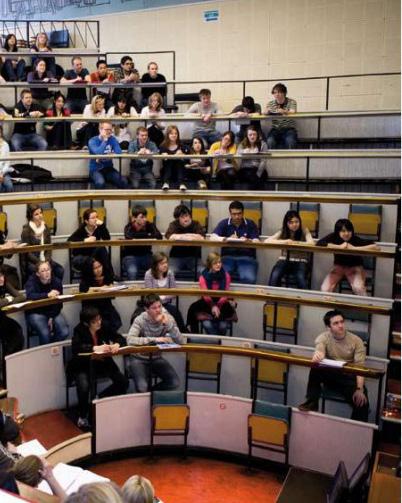
Responding to an inquiry from Trinity News, a spokesperson for College said that the delayed start for rst years has led to administrative challenges in assigning appropriately sized rooms.
“Because of the delayed start of Junior Fresh students owing to the late release of CAO results, it must be noted that the number of students in modules is still changing, especially at Junior Fresh levels, and there have been some challenges with assigning the correct room for the class size.”
e statement added: “Led by the Central Timetabling Unit,
Trinity is actively working with all Schools to help with room changes due to increased capacities, as and where required.”
“While all classes will be accommodated as soon as possible, in the meantime, students unable to nd a seat in a given lecture should inform their lecturer, who will ensure that the student is not disadvantaged.”
e beginning of term has been beset by administrative issues for all year groups, which students have called “disappointing”, but “not surprising at all”.
Issues surrounding online module enrolment prompted school and faculty convenors of the students’ union to call for a review of the enrolment process.

| Tuesday 11 October 9
PHOTO BY JACK KENNEDY FOR TRINITY NEWS
HUNDREDS OF STUDENTS ATTENDING MAYNOOTH UNIVERSITY (MU) took part in a lecture walkout on ursday, October 6, a er plans for a new student centre were scrapped.
e university decided not to proceed with the centre due to spiralling construction costs, despite students saying they have been paying an increased levy since 2015 to fund the project.
Staging the walkout at 11:11am, students are demanding that MU return these levies to students and alumni. Sta , local TDs and alumni of MU were also present at the protest.
According to Maynooth Students’ Union (MSU) President Niall Daly, a university referendum took place in 2015 agreeing to levy, paying €112 from 2015 and €150 from 2018, but this was contingent on the levy funding three main projects, including the new student centre.
e proposed student centre was to include accommodation for MSU and students in clubs and societies, as well as leisure and entertainment facilities such as a new bar.
According to MU, the introduced levy was never contingent on the construction of the student centre, and the money collected from the levy will continue to fund students’ interests.
Written communication by Maynooth University to Maynooth Students’ Union seen by the Irish Examiner show an agreement that the funds collected from the levy were to speci cally fund several projects, including the student centre.

One letter written by the former president of MU states that “the University and the Students’ Union agree that the purpose of the levy is to fund a speci c set of projects.”
MSU have described MU’s claim that the levy was not speci cally for the student centre as “disingenuous and misleading”.
As part of the #WheresMyLevy
campaign, MSU have launched a petition addressed to Minister for Further and Higher Education, Research, Innovation and Science Simon Harris, demanding that MU “support our students, build our building”.
According to the petition, MSU is demanding that MU publicly state their commitment to delivering a Student Centre, and “ensure its prioritisation over other capital developments on campus”. e petition also asks that MU be transparent in its communication as to how the student levy is being used and “work in good faith
with Maynooth Students’ Union and the students of Maynooth to regain their trust”.
MSU is also demanding that the student levy is frozen with no increases to the charge for a period of at least 5 academic years beginning in the 2023/24 academic year.
MSU explained the frustration many students and alumni of MU currently feel: “Many paid the student levy charge knowing that they would never see the projects they were paying for during their time here. It was a commitment for the future students of Maynooth
who deserve to see and experience a vibrant and exciting campus.”
Cormac Dredge, who graduated from MU in 2019, told Trinity News: “I paid my student levy every year, believing promises of this proposed student centre despite slow progress.”
“I am extremely disappointed that Maynooth University has once again put themselves before the needs of their students.”
Minister Harris has not yet commented on the cancelled student centre or protest.
Queen’s University Belfast (QUB) has celebrated the opening of its new £42 million student centre and Student Union hub. Located on campus, the new state-of-theart centre includes a full range of student support services, social spaces and a Spar supermarket. Vice-chancellor Ian Greer said: “ is is a major investment in our students and student services so that we can continue to o er our students and sta world class amenities which complement our historic campus.”
Alumni of University College Dublin (UCD) will be unable to use their college email or related Google accounts a er January 10, it has been announced. Citing the nancial inviability involved in its upkeep, UCD said the service had low usage among alumni, and that it faced potential security and GDPR compliance issues. More than 3,500 people have signed an online petition calling on the university to reverse its decision.
e email addresses of approximately 1,000 prospective students were publicly shared by accident by the University of Limerick last month. In an email advising students to consider their options with regards to elective modules, the list of recipients was attached to the ‘to’ rather than to the standard ‘bcc’ function, allowing recipients to see the addresses of all others who were sent the email. e University quickly reported the issue and no further action has been taken.
Nursing students in University College Cork (UCC) have been “strongly” advised by their student union to hold o on buying “required” iPads for their course. e university has stood over their decision to require rst year nursing students to have an Apple product for their course. is is thought to be the rst highereducation course to require students to have a speci c branded piece of technology.
Tuesday 11 October |10 PHOTO VIA TRINITY NEWS
Students have paid an additional levy since 2015 which was partly to pay for the construction of the now-cancelled student centre
law.
Over 150 people have been killed in the unrest according to most recent reports, most of whom have been protestors, as well as members of Iranian security forces.
In a statement to Trinity News at the time, TCDSU said: “We express solidarity and mourn the loss of all who have died defending bodily autonomy in the resulting protests following the death of Masha Amini.”
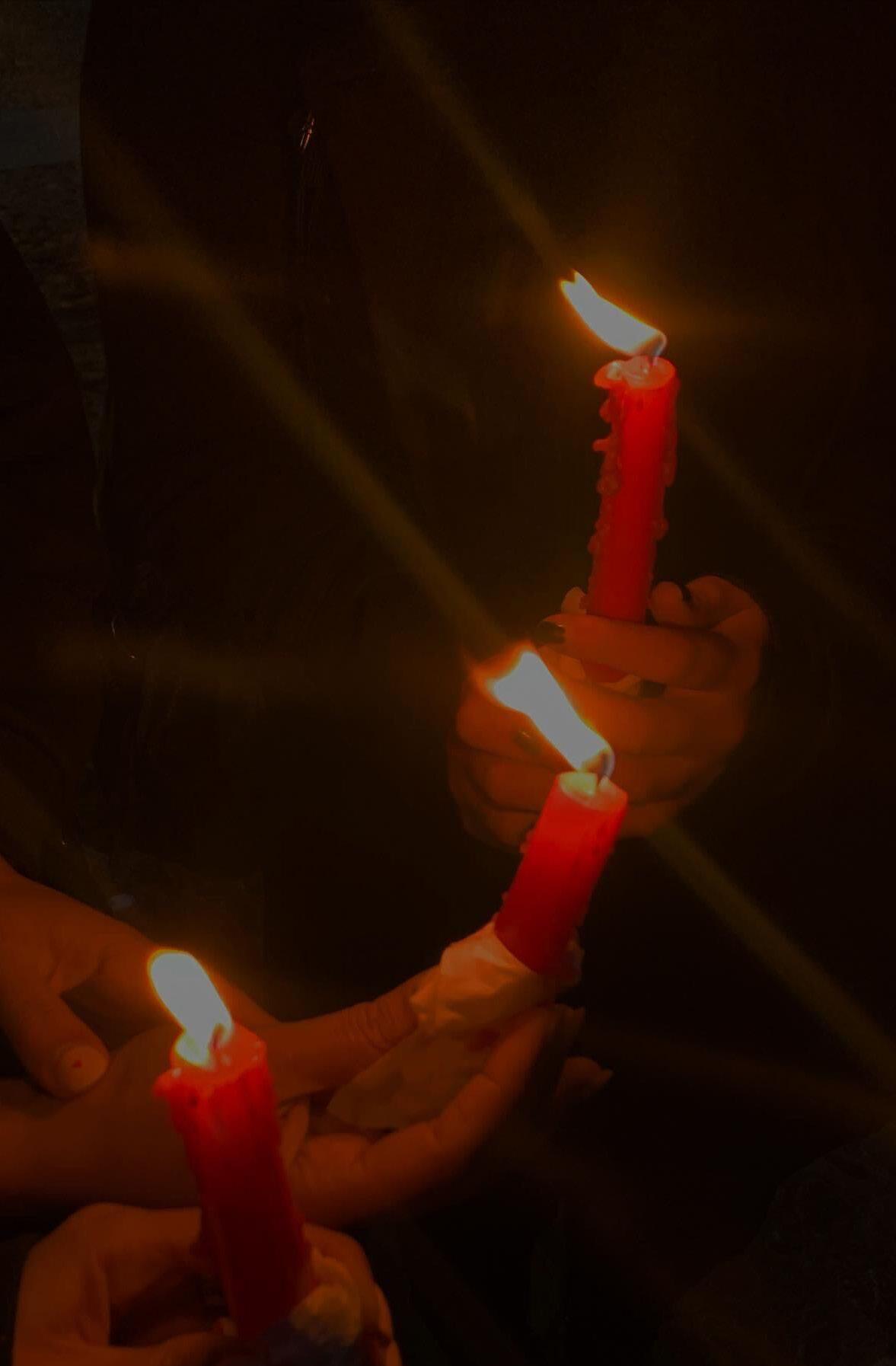
It continued: “Standing up to an oppressive government, which seeks to quash all dissent is a brave thing to do, and we mourn [the people] who have been killed by the regime as they sought to protest this injustice.”
AVIGIL
WAS HELD OUTSIDE in Front Square last week in memory of Mahsa Amini with the support of Trinity College Dublin Students’ Union (TCDSU), the Society for International A airs (SOFIA), DU Amnesty, and DU Gender Equality Society (DUGES).
e vigil took place on Wednesday, September 28 on the steps of the Exam Hall and is also intended to show solidarity with protests in Iran.

Protests have continued in Iran following the death of 22-year old Mahsa Amini, who died in police custody on September 16.
Amini was detained by Iran’s morality police who accused her of violating the country’s headscarf
“Mahsa Amini was just a woman who did not seek to die a martyr, she was detained on an expressway. e violence and brutality demonstrated was abhorrent, and we mourn her death.”
“We stand in solidarity with all those ghting for fundamental human rights. We rally for the rights of women to wear what they want, and stand in solidarity with all women and gender minorities whose bodies are politicised, whose freedoms are restricted, and whose lives are taken.”
e statement concluded: “We extend our full sympathies to anyone who has been a ected by recent events, and encourage them to reach out to supports available.”
| Tuesday 11 October 11
e vigil demonstrated solidarity with the protests which have swept Iran since Amini’s death in police custody
PHOTO
BY EVA O’BEIRNE FOR TRINITY NEWS
PHOTO BY EVA O’BEIRNE
FOR
TRINITY
NEWS
THE
HIGHER EDUCATION
AUTHORITY (HEA)
Bill 2022 has passed through both houses of the Oireachtas a er TDs agreed to amend the bill in the Dáil last Wednesday.
e Dáil agreed upon the amendments made in the Seanad to specify that student members of colleges’ governing bodies must be students’ union representatives.
Speaking in the Dáil, Minister for Further and Higher Education, Innovation, Research and Science Simon Harris said: “I commend the Bill to the House in its entirety.
It will have a real, lasting and positive impact on some of our most important educational institutions.”
Harris thanked the Irish Universities Association (IUA), the Technological Higher Education Association (THEA), the Union of Students in Ireland (USI) and individual students’ unions for their engagement and contribution to the legislation.
e bill will now be sent to the president to be signed into law.
e HEA Bill 2022 was introduced in the Dáil in January, with signi cation implications for higher education in Ireland, including for Trinity speci cally.
When enacted into law, the HEA Bill will strengthen the power of the HEA to set conditions for funding third level institutions and the application of remedial measures if there is non-compliance, and to set performance frameworks for state-funded higher education institutions.
Governing bodies of higher education institutions will be reconstituted, with composition and membership strictly de ned by the legislation.
Due to the provisions of the bill which specify the composition of college governing authorities, College initiated the process of dra ing a supplemental charter in order to maintain internal authority over its laws.
e supplemental charter will
be submitted to government for o cial recognition before the bill is signed into law by the president.
In the Dáil Harris also made reference to academic freedom, an area in which the HEA Bill has caused controversy due to concerns around the increased power it gives to government in the higher education sector.
He said: “Our researchers, academics and intellectuals are key drivers of sustainable progress, equality and our country’s future prosperity. It is important to put on the record of this House that academic freedom of higher education institutions and sta continues to be explicitly enshrined in Irish law and legislation.”
Harris added: “ e overall aim of this legislation is to provide a high-quality, student focused system with appropriate oversight and accountability to underpin public con dence.”
In June, lobbying by Trinity College Dublin Students Union (TCDSU) secured increased student representation on the governing bodies of higher education institutions.
e new amendments will ensure that these representatives are elected by the student body through their students’ union.
COLLEGE
HAS ANNOUNCED AN 11-day festival to celebrate diversity and inclusivity in Trinity.
Running from October 1020, the rst ever Inclusive Trinity Festival will take place “across multiple campuses” showcasing the initiatives and activities which promote inclusivity in College.
It will be run in collaboration between the three faculties, the Associate Dean of Civic Engagement and Social Innovation, and the Trinity Inclusive Curriculum Project within the O ce of the Associate Vice Provost for Equality, Diversity and Inclusion.
e festival aims to “explore the input of our communities and develop ways to make Trinity
more inclusive for all” including seminars, talks, drop-in events, displays, demonstrations and tours.
Among the festival’s goals and ambitions is to “open Trinity’s physical spaces, challenge Trinity’s cultural spaces, showcase Trinity’s intellectual spaces, embrace Trinity’s community spaces and celebrate Trinity’s diversity”.
e festival names “nine grounds of equality” upon which its ethos of inclusivity is based. ese include age, civil status, disability, family status, gender, membership of the traveller community, race, religion or sexual orientation.
e launch of the Inclusive Trinity Festival will take place at 11am on October 10, in Tangent, Trinity Business School. ere will be a panel discussion with the Provost, Prof Linda Doyle in which the meaning of inclusivity will be explored.
e website states: “ e Inclusive Trinity Festival seeks to showcase a snapshot of the #InclusiveTrinity initiatives and activities happening across Trinity.”
“ e Festival is a reminder that Trinity’s campuses are open to everyone, for everyone to enjoy, so we welcome you to come and be part of everyone’s #InclusiveTrinity,” the statemet continues.
Anyone aged 17 or over can avail of the
those who are sexiually active but do not have symptoms of an STI to use the tests. ose who are symptomatic for any STIs are advised to attend an STI clinic or book an appointment with their GP.
FROMOCTOBER 4, THE HSE ARE PROVIDING free at home STI tests nationwide.
Anyone living in Ireland over the age of 17 can avail of the service to test themselves for sexually transmitted infections (STIs) at home. ose who qualify can order the tests on sexualwellbeing.ie.
Using the platform those over the age of consent can order a full test kit which is delivered to their home by post. e user can then freepost their samples to the laboratory for testing and will receive their results via text.
ose who require further treatment will be referred to participating public STI clinics.
e HSE are encouraging
Ina press release Minister for Health Stephen Donnelly said: “ e development of the online STI testing programme is one of the most important innovations in our sexual health services in recent years.”
“ is service has already been the subject of a very successful pilot project, initially funded by the Sláintecare Integration Fund and developed by the HSE Sexual Health and Crisis Pregnancy Programme (HSCPP), which in its rst ve months, saw over 13,000 home testing kits being delivered.”
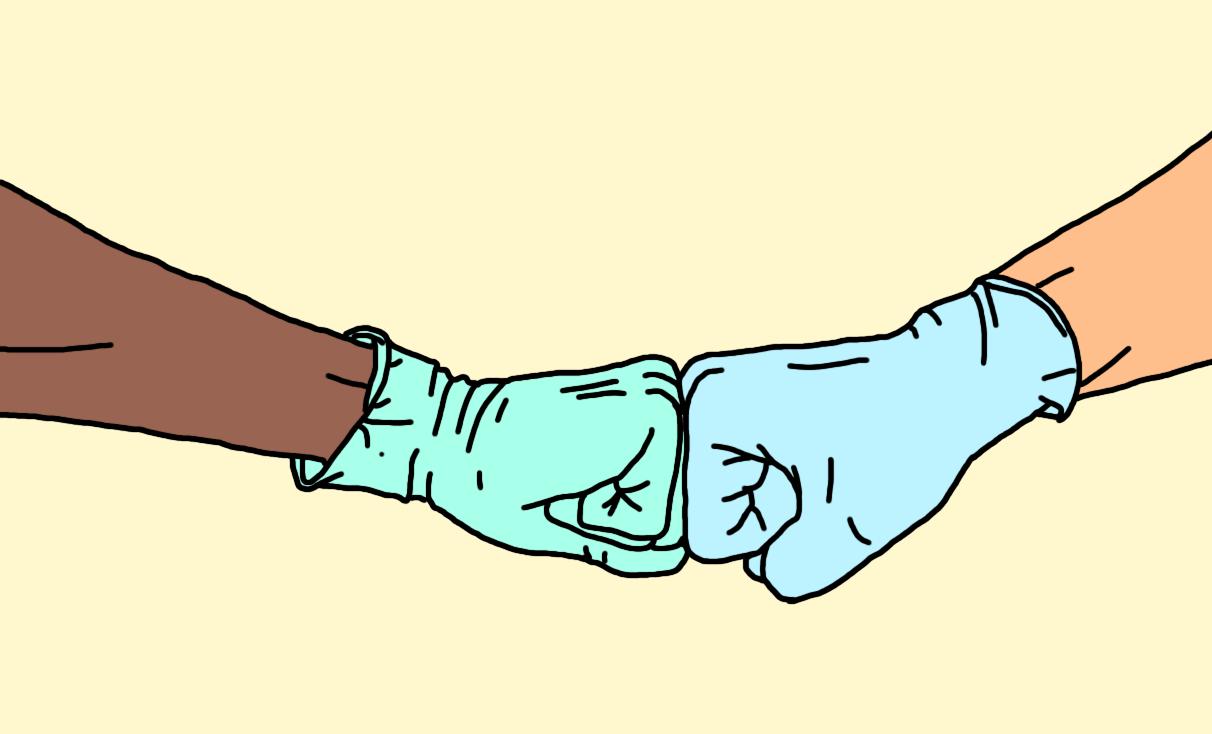
Donnelly noted that “since the conclusion of that pilot programme work has been ongoing on expanding this to a national service” and he was “pleased to be able to secure €550,000 in funding in the recent Budget to progress this further”.
e HSE has launched an awareness campaign to promote the new service and encourage people to avail of it.
Free STI tests is one of a number of measures in Budget 2023 focused on removing cost barriers to sexual and repoductive health. e Budget also extended the free contraception scheme from women aged between 17 and 25 to women aged between 16 and
30.
Also in Budget 2023 there has been additional funding allocated to IVF services as well as a zero VAT rate applied to both period products and Hormone REplacement erapies (HRT). e free contraception scheme
from Budget 2022 for women aged between 17 and 25 o cially launched in September of this year and covers a wide range of short term and long term contraceptive options.
Tuesday 11 October |12 e
bill was passed in the Dáil a er nal amendments were agreed to
e Inclusive Trinity Festival will run from October 10-20 “across multiple campuses”
free
testing service
ARTWORK BY CELINE DELAHOY FOR TRINITY NEWS
“We now see an alarmingly high number of students looking to drop-out, defer,commute long distances or arrive in Dublin homeless.”
ahead of the beginning of term
IN
ANNOUNCED THAT they would be making all contraceptive products free for women aged between 17 and 25 in the Republic of Ireland. In Budget 2023, as part of a plan to place increased focus on women’s health, this scheme was extended to women aged 16 to 30.
TRINITY
COLLEGE DUBLIN STUDENTS’ UNION (TCDSU) have issued an open letter to College demanding the provision of teaching material online for students who cannot nd accommodation in Dublin before the start of term.
e letter, signed by the president, welfare o cer and education o cer of TCDSU, notes “an overwhelming increase in students” contacting the students’ union without somewhere to live for the coming term.
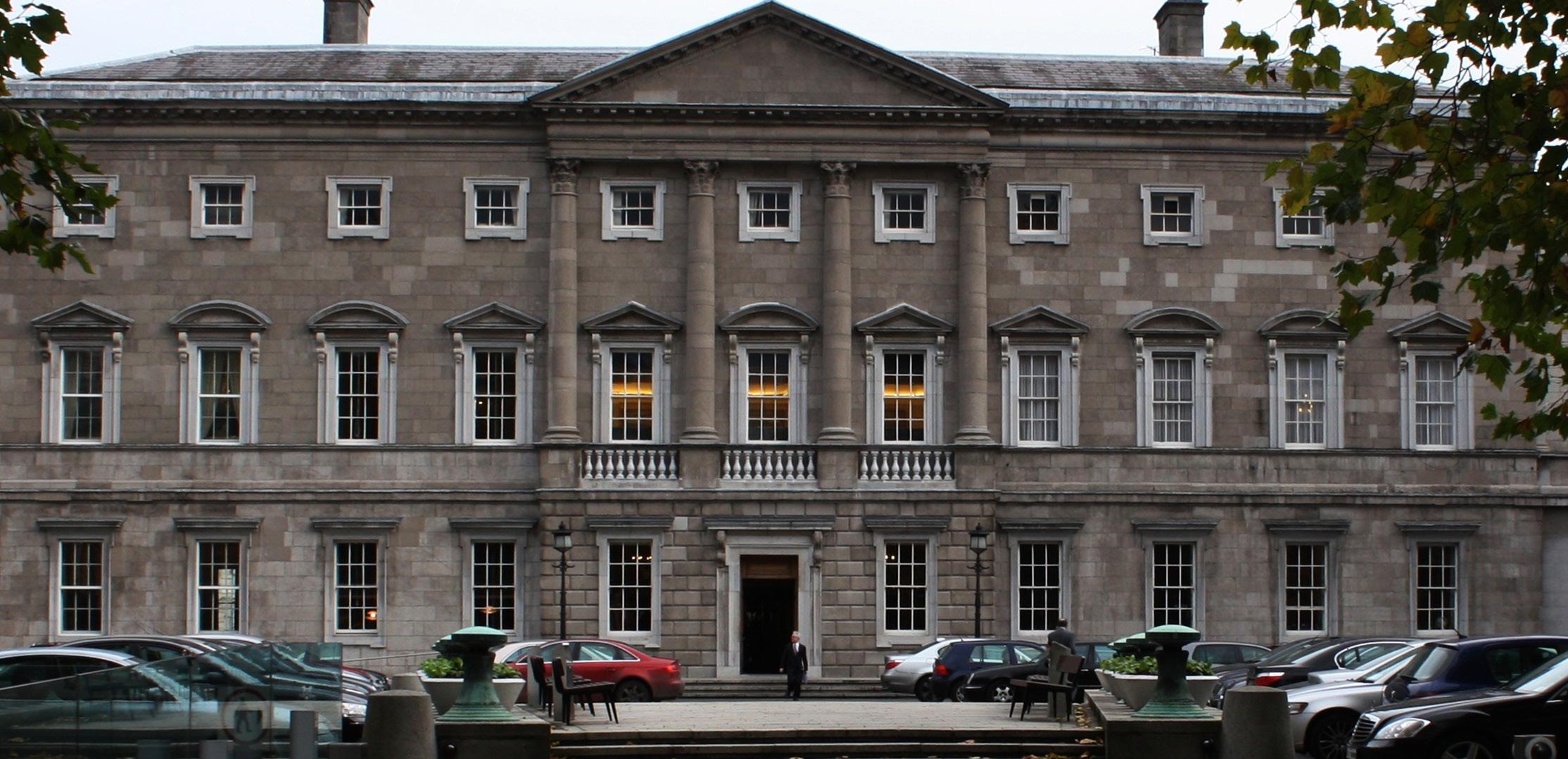
e original scheme for women aged 17 to 25 o cially launched in September of this year with over €9 million in funding allocated. Women in this age group can now avail of the scheme through their GP. However, not all GPs are expected to sign up to the scheme, a choice which has been le at their discretion. e reasoning given behind this is that GPs are best placed to make this decision based on their patient demographics and their ability to take on extra work.
of the entire process. is can include consultations with any medical professions to discuss contraception options as well as the tting and removal of longterm contraception. All costs are covered for a range of contraception options including, implants, IUD and coils, contraceptive injections, contraceptive patch and ring, various forms of the contraceptive pill. e scheme even covers the cost of emergency contraception (the morning-a er pill). GPs, primary care centres and pharmacies have all signed up to the scheme meaning that if you are already prescribed contraception by your doctor there is no need for you to attend another consultation. Both GPs and pharmacies will require people to provide their PPS numbers in order to avail of the scheme.
“ is is a crisis that has been building for many years over time, but it has reached a head,” the letter adds.
It calls on College to address the crisis of accommodation a ecting students: “I therefore ask the College to o er students the opportunity to engage in hybrid learning if they cannot physically attend — ensuring that they have the option of in-person or online teaching.”
contraception were made illegal. Much of the stigma surrounding contraception can be explained through Irealnd’s history as a staunchly catholic country with staunchly catholic values. is is evident in the discourse around contraception from the 1960s till 1979, where the pill could only be prescribed by a woman’s doctor if she complained of a heavy period or an irregular cycle and if her ‘religious values’ allowed.
“ e Trinity Covid-19 contingency plan notes the need for hybrid learning in instances where students contract Covid. is must be urgently expanded to accommodate the hundreds, if not thousands, of students facing the choice of abandoning their Trinity education or facing homelessness during their studies.”
housing crisis. It will result in many students being isolated from the Trinity experience and excluded from the vibrant life on campus. However, the College has a duty of care to its students, and they need immediate support to continue their studies.”
In 1979 contraception was legalised through the Family Planning Act. Contraception was intended for family planning purposes only. is was widely interpreted as that contraceptives were only available to married couples. Needless to say, Ireland has come a long way since contraception was legalised. Now, with this new scheme, the cost barriers for contraceptives have been removed for all women aged 16 to 30.
e letter concludes: “Trinity College must engage on a local and national level to bring down rents and increase the availability of safe, secure student accommodation. Learning is impossible if you don’t have a roof over your head. Equally, quality teaching is impossible if you don’t have a roof over your head. e housing crisis is farreaching and impacts students as well as all sta members.”
“Not simple because di erent member states are coming to this with di erent positions. But we all want to arrive at the same destination, to try to limit the exponential growth in prices, but also making sure we have security of supply. Politicians may wish for a magical answer to this. ere is none. It’s a wartime situation that has a negative impact on everything. ”
It continues that while TCDSU continues to o er advice and
e scheme is expected to roll out to other ages announced in Budget 2023 next year.
e scheme covers the cost
A er a once-o cut for all students this year, reduction in the student contribution fee will be means-tested
THIRD
LEVEL FEES ARE
TO BE CUT by €1,000 this year and signi cantly reduced on a meanstested basis over the coming years, according to early reports of Budget 2023.
All students in receipt of the SUSI grant will receive a double payment this year, while those studying for PHDs will get a once o cost of living payment before Christmas.
Following this year, reduction in student fees will be meanstested. Under the new plan, any family earning under €100,000 will see a permanent reduction of €500 in fees. Families earning €62,000 a
Contraception has a long and complicated history in Ireland. Contraception was actually legal in Ireland before 1935. However, with the passing of the Criminal Law Amendment Act all forms of
information to students, “there is only so much we can do when there is next to no accommodation available in the city”.
year will pay no more than €1,500 in fees due to changes in student grant rules.
College is yet to con rm how the fee reduction will be applied to Trinity students.
During the Covid-19 pandemic, Minister for Further and Higher Education, Research, Innovation and Science Simon Harris TD secured a once-o Covid relief payment to students. Students either received a €250 credit note or a €250 reduction in any outstanding fees.
e letter notes that hybrid learning is a temporary solution only and also calls on College to make e orts to increase the availability of a ordable accommodation to students.
“We understand that hybrid learning isn’t the solution to the
Years of campaigning by women’s rights activists occurred before contraception was made legal. is campaigning included the ‘contraception train’ protest where women brought contraceptives into the republic from Northern Ireland. Campaigners risked being detained by waving condoms as they arrived in Connolly station and swallowing aspirin pills pretending they were the contraceptive pill. e protest gained worldwide media attention when camera crews from countries.
is is the rst cut in the student contribution charge in 27 years. e €3,000 annual charge was introduced in the 1990s when third-level tuition fees were abolished with the free fees initiative.
At €3,000, Ireland currently has the highest third-level fees in the EU.
Harris has been campaigning for a reduction in the student contribution fee in recent months. Harris previously said he was
e letter comes amid a growing accommodation crisis which is a ecting students both in Dublin and nationally.
Last week, NUI Galway Students’ Union (NUIGSU) issued an open letter to Minister for Further and Higher Education Simon Harris outlining measures they would like to see taken to alleviate the accommodation crisis.
Last month, Provost Linda Doyle described the accommodation situation nationally as “a real crisis situation”.
ough this change has been welcomed by many including the National Women’s Council, people have criticised it for not extending far enough. Women aged over 30 will still have to pay for contraception, the costs which can be hundreds of euros per year. ere is also an issue with the voluntary nature of GPs and pharmacies signing up to the scheme. e scheme has been active for less than a month and as a result it is still unclear how well it is working. In addition to this scheme in Budget 2023, there has been additional funding allocated to IVF services as well as a zero VAT rate applied to both period products and Hormone Replacement erapies (HRT). With all this in mind and despite its aws, it is fair to say that Ireland is prioritising women’s health in a way we’ve not seen before.
“I see that this Youth Action Plan will position the EU as a bridge-builder in challenging times and put youth at the heart of the EU’s external relations.”
“ e Universities Act 1997 explicitly states that those on the College board must be Union members – yet the current HEA bill is regressive, as it throws away any protected de nition of student representation or student unions.” “Giving students and their families some peace of mind in these challenging times is at the heart of everything we are trying to do with these Budget measures.”
seeking a cut to the €3,000 student contribution fee in full.
In May, Harris published plans to reduce the student contribution charge through the Funding the Future framework.
Sinn Féin’s proposed alternative budget proposal, published on Friday, also included a €1,000 reduction in student contribution fees.

Budget 2023 is due to be presented in full in the Dáil this a ernoon.
“We have not faced the prospect of Armageddon since Kennedy and the Cuban missile crisis.”
| Tuesday 11 October
PHOTO VIA WIKIMEDIACOMMONS
13
BUDGET 2022 THE GOVERNMENT

Tuesday 11 October |14
Trinity News investigates Ireland’s appetite for homegrown adult entertainment, speaking with an OnlyFans creator who is happy to ll that gap
but if you know everyone, that means everyone knows you. is may be one of the main reasons for the lack of pornography being produced within the country, as one Reddit commenter suggested earlier this month in response to a “why are there no porn studios in Ireland? Is it illegal?” post under the thread r/Ireland. Many other responses pointed to protests that may occur if anyone tried to establish a porn production company in Ireland, referring to the outcry that saw Stringfellows, a strip club in Dublin, close ve months a er its opening in 2006.

Sixteen years on from that meagre attempt to establish an adult entertainment industry in Ireland, has there been any successful endeavour? South William Street now boasts the Barclay club, a selfproclaimed ve-star strip club — despite holding a 2.8-star rating on Google — but the mainstream pornography industry remains dormant, if not nonexistent.
viewing pornography, and their tastes point towards home-grown entertainment. OnlyFans may be the solution to this preference.
Although its primary function is as an online subscription platform, since its launch in 2016, OnlyFans has gained a reputation for pornography, providing a safe and easy way for sex workers to share their content and get paid fairly for the media they create. In return for a monthly subscription fee, OnlyFans users receive content from creators, as well as being able to make speci c requests for extra fees through direct messages.

e OnlyFans system means that the creator is in control of the content they are producing and sharing, giving independence that mainstream pornography may not o er them.
Ireland
is a small country.
ere’s hardly an Irish person you’d meet to whom you’re not connected by a single degree, either a college connection or a relative in their hometown. Whenever an Irish television programme is produced, it’ll only take a single episode before your mother can point out a member of the cast who went to school with one of your second cousins or used to babysit you when you were younger.
In many senses, Ireland’s insularity makes it feel as though the whole country is a community,
Regardless of the absence of porn production in Ireland, the demand and consumption of porn are present in the country — something clear from Pornhub’s Insights into Irish porn tastes. Although the data was published in 2017, comedically exposing each county’s genre preferences, fundamentally it shows that Irish people do view porn, and have some quite niche tastes.
In 2016, Pornhub reported that Ireland ranked sixth worldwide for per-capita page views, with one of the top search terms being Irish. Clearly, Irish people are open to
Speaking to Trinity News, Irish OnlyFans creator Lily (@ lilylucia2002 on Instagram and @lucia_xxxx on OnlyFans) discussed her experience on the app. OnlyFans creators can provide almost exactly what viewers would be receiving from mainstream pornography, as Lily describes much of what she posts: “I post nudes every day pretty much. I post the same type of nudes that people would send to their partners,” and she notes that some videos get notably more traction: “the most popular form of content that I have is sex tape content or boy-girl content as it’s called on OnlyFans. Basically, it’s like making my own sex tape.”
To gain subscribers, Lily comments that she advertises
mostly through “Instagram and Reddit, as well as Tinder, as my Instagram is linked to my Tinder.” e content she posts can also act as a springboard for more revenue, as she tells Trinity News that she also posts “teasers for pay per view content,” where viewers would pay more to see the full post.
She also discussed why they think there is a lack of mainstream porn being produced in Ireland: “I feel like it has a lot to do with the fact that Irish people are quite sexually repressed honestly.” Mainstream media may not be open to having a porn industry in Ireland, but that doesn’t mean there isn’t a market for pornography creators like her. It may even work in her favour, as she explains that “the majority of my fans are Irish.” She continues: “I think it does help [OnlyFans] creators because then there are not a lot of famous Irish porn actresses, so there’s an opening in the market. [ e market] in America is lled by pornstars whereas in Ireland it’s lled by OnlyFans creators.”
Aside from its domination
of Irish-produced pornography, OnlyFans seems to hold many other bene ts for sex workers in Ireland. While Lucy admits that she has considered going into making mainstream porn, though not anytime soon, she states that from OnlyFans alone “I make like ten times more than I would working a minimum wage job a month,” and that “I know girls who could make like €10,000 a week doing [OnlyFans].” Additionally, she comments on the more personal aspect of OnlyFans: “you can talk to other creators, whereas mainstream porn is a lot less personal.”
As well as that, OnlyFans creators get to maintain control over the content they produce, and the requests they answer: “I get requests for really weird stu , mostly for foot fetish things or dick rating.” She states that these are “easy enough to do,” but she still maintains a barrier between her and her fans: “sometimes I get pretty weird ones that I won’t do, like weird race things or meeting up with people in person which I would never do.” As an independent creator, she decides what she’s comfortable with, and what content she is willing to make.
OnlyFans has o en been hailed as a more ethical way to consume pornography, and with an absence of mainstream Irish pornography, it provides a platform for Irish sex workers to earn a living under their own terms, while also catering to an appetite for Irish pornography that clearly exists in the country.
| Tuesday 11 October 15
PHOTO VIA WIKIMEDIA COMMONS
perspective on sex
from society was cruel and created a lasting e ect on the values of the collective. e demonisation of the women implied a sense of sinfulness in engaging in sex. e reasoning behind this endeavour to keep women sexually subservient is deeply complex and psychological. A woman who embraced her sexuality and asserted dominance was seen as a threat to the patriarchy, and this was viewed as exhibiting masculine behaviour. Using the tool of conservative Catholicism— for example the threat of being sent to a laundry, and reinforcing messages of shame and guilt—the men were able to retain power and ful l their own self-image.
programme in many schools is called ACCORD. It operates with the backdrop of a Catholic ethos, providing marriage and fertility support as well as school programmes.
e topic of sex is approached from the angle of conception. Aspects of sexual health are described in relation to conception, with little reference to pleasure. In primary school, I remember learning about protection, primarily as a way of preventing pregnancy. I learned about STIs much later on in secondary school—a school with a Protestant ethos—which provided a comprehensive talk on the topic.
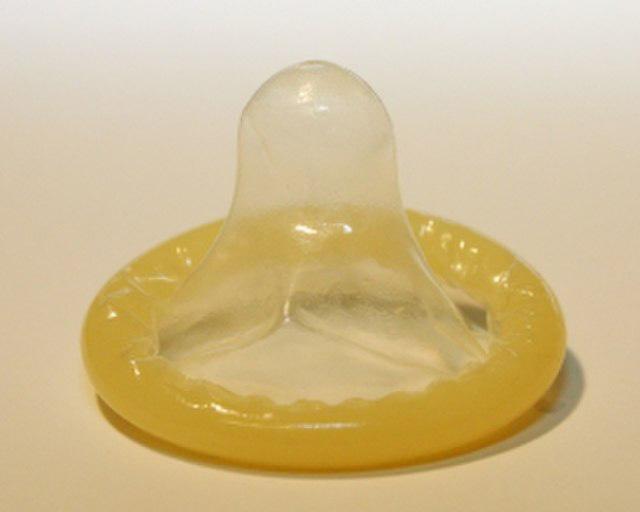
GivenIreland’s turbulent history with the Catholic Church, a recent shi towards secularity has begun. We have seen law reform in areas governed by outdated Christian views, such as samesex marriage and reproductive healthcare. An aspect of life that still remains heavily in uenced by religion is education. Historically, the Irish education system has been sponsored and provided by the Catholic Church; the ties between religion and education have prevailed through the ethos and teachings of Catholic schools. Today, over 90% of Irish primary schools and 50% of secondary schools are under Catholic patronage. Whether this bias continues through the area of sex education remains up for debate.
Catholic sexual ethics is an interesting niche. e foundational beliefs are that sexual intercourse must be open to conception, preempting the ban on contraception. roughout history, female purity has been utilised as a mechanism to protect the virtue of men, which was of utmost importance. ere has evidently been a double standard perpetuated. Men who were unable to resist temptation were seen as victims of desire, while women were shamed and faced the consequences.
How has this attitude manifested in sex education? Is it becoming more factual and concrete?
Anyone who grew up in Ireland will remember receiving e Talk at age 12. is rite of passage for the children of Ireland provides an introduction to the realm of sexual health. For many children, it involves a revelation — nally an explanation of sex is given, and it is no longer so mysterious. e organisation that runs this
e Catholic narrative was most evident in teachings surrounding orgasms. A female student who grew up in Ireland recalls learning about male orgasms in primary school, and was shocked to discover much later on that women could also orgasm. It seems that orgasms were only referenced through the lens of conception, signifying the role they play in procreation.
e details of sex were relayed on a need-to-know basis and took a very pragmatic approach, focusing on the scienti c side of it. It seems that the realm of pleasure was wholly neglected. Moreover, there was a distinct lacuna in the education surrounding LGBTQ sex.
An interview with a young woman educated in a Catholic school in Spain revealed that sex education has only recently become compulsory, meaning that many schools chose to forego it. Interestingly, sex was mentioned in religion class, focusing on the Catholicperspective on sex as a means of reproduction.
Many others who attended Catholic schools in countries around the world such as Australia and the UK felt that the sex education they received was conservative and re ected the teachings of Catholicism. Boys and girls are separated for sex education, and primarily learn about the biology of their own sex. e education’s focus on sex as a method of reproduction is particularly evident in an anecdote from a Catholic Irish student: “We were shown diagrams of male genitals and learned all about their orgasms. When it came to women, we were shown a diagram of the uterus and ovaries, not the vagina. I didn’t even know women could orgasm until much later.”
is teaching is not unique to Catholic schools, a student educated in a school run by the Church of England experienced the same attitude. “ e curriculum also neglected that the majority of the time that teenagers and young adults are having sex, it is for pleasure and not reproduction.” ey also commented on the lack of education on LGBTQ sex, and that protection against STIs was only spoken about in the context of heteronormative sex. e student felt that the Christian ethos of the school had no impact on their education, which implies that there is a deeper societal attitude that prevails.
While some may feel it is still inadequate, education on this subject has improved dramatically for the younger generations. A woman educated in the 1970s recalls receiving prolife teachings at primary level education. Children were given badges with the pro-life symbol and two baby footprints. Given that contraceptives were illegal in Ireland until 1979, abstinence was advocated for. She remembers sex being portrayed as something
wholly unequal, with women taught to bear the responsibility of men’s pleasure and avoiding pregnancy. e issue of consent was not discussed. According to an interview, many boys in the 70s were taught minimal information in science class, again focusing on procreation.
e Stay Safe Programme, which highlights topics like consent, has been implemented in primary schools across the country. It was implemented in 1991 and revised in 2016. Catholic schools have adopted this curriculum, and its content remains uncensored by the Church. Its objective and impartial approach teach children to recognise situations that might make them uncomfortable and take advantage of them. e fact that schools with a religious ethos endorse these teachings suggest a changing attitude within society.
As we move towards a more secular state, it is important that education progresses alongside the rest of society. Traditionally, children have received a less than comprehensive education on the topic of sex. Ireland is not alone in this, countries across the world are guilty of the same failure. is has led to young people turning to sources such as porn and other unreliable authorities. Having said that, progress has been made with the implementation of a programme called Stay Safe, with children aware of their right to provide or withdraw consent. is modern version of the ACCORD programme now covers important topics such as STIs, contraception and LGBT sex education. ese are things that have been ignored by schools in the past. is approach has been apparent in schools of other denominations, suggesting that perhaps there is a prejudice embedded in society not unique to a particular religion.
Many world religions have strong beliefs surrounding sex and all things sex-related. An element of taboo relating to the subject still exists, and religious discourse o en has undertones of shame and disapproval. In the fourth century, a Christian monk put together what he conceived to be the eight evil thoughts. is later morphed into the seven deadly sins, which we are all familiar with. Christian teaching included lust as one of these, providing the virtue of chastity as a remedy. e concept of the seven deadly sins has become widespread, possibly seeping into the morals of individuals.
e narrative we are most a ected by in Ireland is that of the Catholic Church. e tragedy of the Magdalene Laundries saw women labelled as promiscuous being locked up. It began with allegedly fallen women, meaning women that engaged in prostitution. In time this extended to women who had engaged in sexual acts before marriage, women who had experienced sexual abuse, women who fell pregnant out of wedlock, and many more unfortunate victims. Ostracising these women
Tuesday 11 October |16
Trinity News explores the idea that the religious undertones of sex education in Ireland promotes a patriarchal
PHOTO VIA WIKIMEDIA COMMONS
Trinity News
desire and instead takes pleasure in matters of strife and battles. She is an immortal virgin and will not ful l the traditional expectations imposed on women — that is, to bear children.
Sex,
or lagneía in Ancient Greek, was embedded into the tradition of the Mediterranean world — not simply for pleasure but its ideological connotations. However, does love tie into the equation? Divine sexuality has been a topic of interest down through the ages and one may wonder how ancient individuals perceived their gods. How did their supernatural actions resonate with everyday life? How gendered was the ancient world? What truly made an ancient citizen sexy?
Love. Sex. Desire. To whom do we associate these themes within the Greek mythological canon? None other than the goddess Aphrodite, of course. From our earliest literary account of the gods, the Homeric Hymns (not written by Homer!) depict Aphrodite as the personi cation of love and desire as well as the immortal herself. She is a powerful force that few can escape, one of these few being her divine sister Athena, the goddess of wisdom, strategy and warfare. Athena won’t be entranced by the lust of
e year is 340 BC in Athens. As a ripening adolescent, you have no interest in procreating. Perhaps you admire the independent ways of the goddess Athena. Absolutely not. e youngest a girl could be given away for marriage in Ancient Greece was around the age of 12. A girl’s virginal chastity before marriage was of the utmost importance. Marriage in the ancient world signi ed the abrupt end of a short childhood and a woman’s deportation from her father’s house to her husband’s. Along with a dowry, she is now a new man’s property.
As one can imagine, these relationships rarely fostered romance or domestic bliss. In fact, husbands o en lived far from their wives and were almost always a generation older. Sex was a duty to your city-state. As a woman, it was your duty to produce legitimate heirs for your husband. Room for sexual expression as a young female Greek? Absolutely not. e force of Aphrodite was repressed. However, men were free to indulge in their sexual appetites.
In classical Athens, one of the most masculine things a male could feel was sexual desire for another man. ere was nothing more beautiful than the male body, especially that of a young ripening boy; pederasty in the ancient world was both
common and celebrated. Our most informative source for these relations was the symposia: a male drinking party, in which boys were educated in the Athenian ways of life. Regarding sexual intercourse between the erastes (older male) and the eromenos (younger male), the person penetrated, whether woman, boy, or other adult male, was automatically reduced to the passive female status in Athenian sexual relations. is was a teenage rite of passage, a sexual tradition — to lose your virginity at symposia rather than in your rst few months at university.
Speaking with DU Classical Society’s Public Relations O cer, Gabe Young, and Chairperson, Adam Roe, we delved deeper into the ancient sexual mindset. Young described gender in Athens “as a social construct rather than a strictly biological recognition of chromosomes and genitals’’ and expressed that male gods were gendered in such a way that they are always depicted as “incredibly masculine in their corporeal form, as goddesses are feminine and usually maternal. ey are given the roles that mortal Greek men are given in their respective society.” He added that “ultimately, gods have gendered attributes but transcend the strict bounds of human interpreted gender, as goddesses have full agency and are respected by men.”
Regarding the term sexuality in the ancient past, Roe believes it can get very complicated: “We have a much di erent view on sexuality than they did.

Everything seems far less de ned and they acted like pederasty was commonplace. Overall, it seems to me that the ancients didn’t necessarily care about sexuality as long as you were the person attracting the other rather than pursuing them.” In contrast,
Young speaks of sexual intercourse and how it compels a very maledominated image in his mind, stating that “it was something that men received/took from women and boys. It was one sided and presented a very clear power
dynamic.” Young contends that sexuality then was more uid with no strict sense of heterosexuality or homosexuality: “Sexuality in the ancient world inspires me to think of modern queer identities, though problematic. It represents a kind of enlightened and liberated idea of sexuality. At least for men.”
When asked who, in their opinions, was the sexiest of the gods, both Roe and Young answered with some careful consideration. Roe concludes that “for me, it would have to be Artemis [goddess of forests, hills and wild animals]. She seems pretty chill and a lot less dramatic than some of the others. I de nitely still wouldn’t want to get on her bad side but it’d be pretty cool to just be running around some forests with her.” Young’s choice is abundantly clear: “Aphrodite for sure. ough that may be because I’m very susceptible to marketing.” It seems that the two DU classicists are drawn to the immortals’ attributes rather than their physical depiction. Could the same be said for the people of antiquity? Who knows…
Overall, gender and sexuality in the ancient world were constructed by tradition in a male dominated sphere. However, that’s not to say that women did not have independent divine authorities to worship and look up to. Love life in the ancient world is de nitely something we lack personal sources on, but what would our life today look like without the ancient civilisations?
| Tuesday 11 October 17
PHOTO
VIA WIKIMEDIA COMMONS
investigates
the place of sex in
ancient societies
FromSeptember 14 contraception has become free in Ireland for women between the ages of 17 and 25. e government scheme was allocated €9 million in the 2022 budget under the Women’s Health Action Plan 2022-2023, which aims to improve all areas in women’s healthcare. Launched by the Minister for Health, Stephen Donnelly, the comprehensive scheme covers GP consultations, emergency contraception, long-acting reversible contraception (LARCs), IUS and IUDs, contraceptive injections, the contraceptive patch, and combined oral contraception (the pill). Women can choose the contraception that works best for them and their lifestyle without any nancial barriers.
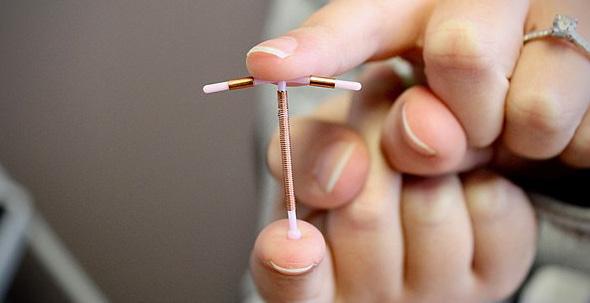
While currently the scheme is con ned to a small cohort, the Minister for Public Expenditure Michael McGrath announced in the 2023 budget that they are expanding the scheme to make free contraception available from ages 16-30 years. Nail Behan, chief executive of the Irish Family Planning Association (IFPA) commended the scheme as a “major step forward for reproductive health and rights.” e scheme’s already quick expansion suggests a further step in the right direction for reproductive autonomy and gender equality in Ireland.
But how did we get here? Less than forty years ago you couldn’t buy a condom without a prescription. Here is a brief history lesson of contraception in Ireland that has never made me so relieved to be a Gen-Z (and from Belfast).
As far back as Ancient Egypt and Ancient Mesopotamia, we have writings on contraception. In 1850 BCE papyrus scrolls were found that prescribed a mix of honey and acacia leaves as a form of birth control. In 1564, we have the rst medical mention of condoms by Gabriele Falloppio who recommended a
linen sheath to protect against syphilis. Clearly, the concept of contraception has always been around. However, contraception, as we know it today, really took o at the beginning of the twentieth century. Durex launched in 1915 in London, and Mother’s Clinics were opened across the UK in the 1930s. By 1961, the pill was available. Progression continued into the latter half of the twentieth century with the Morning A er Pill introduced in 1984. is rapid advancement in contraception was not matched in Ireland. In fact, it wouldn’t be until 1985, the year a er emergency contraception was launched across the UK, that Ireland would legalise condoms without a prescription.
In Ireland’s early years, it had a very close bond with the Catholic church. Undoubtedly, this relationship has played a massive part in Ireland’s contraceptive history. e sale of condoms took o in the early twentieth century. Its rapid advancements were paired with rampant disapproval from the Catholic church. In 1930, Pope Pius XI condemned arti cial contraception and discouraged Catholics from using it in his Papal encyclicals. It notes: “the act is deliberately frustrated in its natural power to generate life; it is an o ence against the law of God and of nature.”
is condemnation of contraception in uenced the Irish government to ban the importing, buying and selling of contraceptives in 1935. While it was not illegal to actually use contraception it was now
widely inaccessible to the Irish population. Additionally, strict censorship laws made it di cult to distribute information on contraception, reproductive health and safe sex with Family Planning pamphlets banned on the grounds of indecency.
e law would remain this way until the 1970s when Women’s Liberation groups began to rebel against the oppressive laws. In 1971, the Irish Women’s Liberation Movement travelled from Dublin to Belfast to purchase contraceptives and brought them back into Dublin Conolly. e train journey—now coined the contraception train— saw 49 women arrive back to Connolly Station waving their contraceptives, which were legal in Northern Ireland, at customs o cials who surprisingly did not con scate them. e women originally planned to purchase the pill, but it was unattainable without a prescription. Instead, they bought a large volume of condoms and some aspirin, which they pretended was the pill to the customs o cers and media. e protest attracted much publicity and media attention which helped push against the idea of contraception as something taboo and highlighted the absurdity of current laws.
In 1973, mother Mary McGee went to court for using contraception advised by her doctor. It was likely another pregnancy would cause serious, potentially fatal complications.
e court ruled in favour of McGee as she had a right to marital
privacy. is was a breakthrough case for Ireland — restrictions began to relax. You could now bring contraceptives in from other countries although they could still not be sold in Ireland. In 1979, the Irish Family Planning Act was introduced allowing contraceptives to be sold under prescription. Finally, in 1985 the laws relaxed to allow the sale of condoms and spermicides without a prescription. e amendment to the Family Planning Act in 1985 was passed despite disapproval from the Catholic church. e Health Act of 1985 was a huge milestone in Ireland’s contraception history. However, a deeply rooted, anti-condom mentality in older generations meant that although condoms were now legal, controversy continued. Around half of all chemists in the country refused to stock any condoms meaning they were still rather inaccessible in certain communities. In 1987, a Late Late Extra broadcast touching on the AIDS epidemic sparked controversy as presenter Gay Byrne showed a short lm on how to use a condom and opened a condom himself to show the audience. Viewers worried that this open discussion and advertisement of condoms would create a condom mentality, which was apparently a bad thing. However, like it or not they were now legal.
e impact of contraception’s legalisation cannot be underestimated in a move towards gender equality. For years across Irish literature, religion and politics we’ve seen Irish women
pigeonholed into the role of mother in Irish society. Legalising contraception gave women a degree of reproductive freedom never before seen in Ireland. is new freedom contributed to a more liberal view of sex, acknowledging pleasure as well as reproduction. Access to contraceptives has been shown to have a positive social and economic impact on women. For example, more women have been able to enter the workforce and partake in third-level education when they are given the ability to delay or plan pregnancies.
As Ireland has moved to become a more secular country, laws around contraception have continued to progress, allowing people to take more control of their reproductive and sexual health. However, we still have a long way to go with regards to the education and accessibility of contraception. With the introduction of the free contraception initiative, it is looking hopeful the progress is not over yet.
Today contraception options have never been greater. If you want to explore your contraception options and avail of the recent free services you can book an appointment through your GP. If you are not with a GP in Ireland, the IFPA and Women’s Wellness centres are also partaking in the free scheme and have branches in Dublin. e IFPA also o ers student discounts for those who do not fall into the free scheme. And nally, free condoms and lube are provided by TCDSU in House 6 on campus.
Tuesday 11 October |18
Trinity News investigates how contraception went from being a taboo subject to government funded in Irealnd
PHOTO VIA WIKIMEDIA COMMONS
Get acquainted with the Irish bloggers and activists promoting healthy sexual habits online
hellojennykeane) has made a big splash recently in the Irish media for her teaching methods, making headlines a er one of her online workshops “Blow” allegedly caused a cucumber shortage in numerous shops around the country.
With nearly one hundred thousand followers on Instagram, the Holistic sexual wellness educator has appeared on Ireland AM, the front cover of the Irish Examiner Weekend Magazine and on the Two Johnnies podcast just to name a few, all the while supplying her own helpful workshops and tutorials online.
media commentator, sexpert and podcast host. She focuses on sex, feminism, and the body. A selfdescribed “advocate for pleasure and healthy, consentual sex”, West has a PhD in Sexuality Studies and a Master’s degree in Sexuality Studies and a Higher Diploma in Psychoanalytic Studies.
Sexeducation in your late teens and twenties can be hard to come by. Instead of relying on Google to nd out more about sexual experiences and queries, go check out some of Ireland’s best sexual health bloggers and educators to observe more knowledge on the daily and help destigmatise talking about sex.
Jenny Keane (@
Keane is also a tantric yoga teacher, sexological bodyworker, and is quali ed in somatic experiencing – a type of traumabased movement therapy that looks at the connection of mind and body. Keep an eye out for her upcoming in-person “Sex Toy Show” which promises to sell out quickly.
Dr Caroline West (@ drcarolinewest) is a lecturer, writer,
West is the host of the Glow West podcast, which explores sex, sexuality, and the body. She is also currently a sex and relationship expert for Independent.ie, the Elaine Show on Virgin Media One, and Bumble Ireland. She is also known for her collaborations with Active Consent, a program ran through NUI Galway, where she is a consent facilitator.
You can always count on Caroline to cover everything under the sun when it comes to sex and sexuality - her podcast has covered topics including comfortable anal sex to sex work.
Grace Alice Ó Sé (@grace_alice_ oshea) is a sex and intimacy specialist and author from Kerry
whose aim is to prevent people from su ering in silence within unhealthy or unhappy situations relating to sex & intimacy. She o ers sex education and coaching sessions to adults who are looking for some guidance on issues relating to relationships, intimacy and sexuality, as well as o ers advice and insights on her Instagram.
Grace has recently announced her rst live course named “Better Sex For Women” which consists of eight weekly, 1.5-hour sessions along with written material and audio practices.
Dr Aoife Drury (@ drurytherapy) is an accredited Psychosexual and Relationship erapist with more than 14 years of experience working in mental health. Currently carrying out a Doctorate of Psychotherapy at Dublin City University, Drury has written articles for GQ, the Irish Examiner and Cosmopolitan just to name a few.
On her Instagram, Drury
regularly shares therapy insights, mental health and relationship tips and book recommendations for those looking to learn more about sexuality and psychology. From sleep routine advice to discussing the impacts of catcalling, Dr. Aoife Drury is a great person to follow to help understand all aspects of your body and sexual well-being.
Aoife Murray (@aoife.murray. life) is a kink educator, coach and consultant who recently made an appearance at TCDSU’s Sex Week for a Kinks 101 workshop. On her Instagram, she shares advice and insights about kinks, fetishes, sex, BDSM and more.
With particular emphasis on consent, open communication, and respect in her classes, Murray hopes to promote exploring your desires in a way that promotes trust and intimacy between partners. Including packages for hen parties, educational talks and one-to-one workshops, there’s something for everyone on Murray’s page.
Trinity News explores the consequences of the hypersexualisation in beer promotion
However, if we take a look back at vintage posters advertising beer, a picture-perfect nuclear family is o en portrayed, re ecting social norms and values at the time. Women are pictured as belonging to the domestic sphere, cleaning or serving their husband a freshly poured glass of beer. By contrast, men in these advertisements are o en described as being just in the door from work, wearing a shirt and tie and expecting dinner from their devoted wives on arrival. e accompanying beer is a welcome addition to the meal.
beer for removing ‘no’ from your vocabulary for the night.” It is shocking that this slogan didn’t immediately raise alarm bells and managed to make the rounds before quickly being pulled, as it is a well-known fact that there is a strong correlation between alcohol consumption and sexual assault.
sent a questionable message to Bud Light’s consumers and played a part, whether intentionally or not, in perpetuating rape culture.
Beer
advertising and labelling is notorious for its questionable representation of gender. In particular, the objecti cation and sexualisation of women are themes which appear to frequent the alcohol industry’s advertisements and more o en than not, the women portrayed in these ads cater to the male gaze with female characters merely being employed as props within marketing materials.
is misogynistic approach to marketing not only alienates a signi cant proportion of the population, but more pertinently it reinforces harmful gender stereotypes and o en perpetuates rape culture in the process.
e consumption of beer has long been tied to the concept of masculinity. Men have consistently dominated beer advertisements throughout the last century, o en tting some form of a macho male stereotype, such as
a bearded muscular lumberjack who deserves to reward himself and re-energise with a pint a er felling a large tree. On the other hand, women are rarely featured, but when they have been, they’re usually portrayed as subservient and are nearly never central to the ad, except when scantily clad. Undoubtedly, the beer industry is severely lacking in advertisements that portray women as empowered consumers in their own right.
Alcohol marketing is constantly evolving to appeal to its target audience, something which is gradually broadening, and therefore starting to generate more inclusive gender representation.
e latter half of the 20th century saw a surge in sexually charged beer advertisements, with women placed at the fore; this is a trend which has evidently stuck.For example, Miller Lite’s infamous 2003 commercial entitled Cat ght saw one of many bizarre male fantasies play out on peoples’ screens in real time as two shrieking women wrestle each other in a nearby water fountain and nally in wet concrete, shedding their clothes in the process. To top it all o , the advertisement ends abruptly as one woman suggests to the other "let’s make out" as some kind of compromise. is was quickly denounced by a wave of critics for its depiction of women as sexual objects.
is prevalent association between sex and alcohol in beer advertisements has problematic implications, particularly regarding informed consent. In more recent years, Bud Light released an ad campaign proudly declaring itself as: “the perfect
According to the Rape Crisis Network of Ireland, alcohol is the most common drug used in cases of sexual assault. Undoubtedly, consent becomes extremely di cult to navigate where any party is under the in uence, so this particular slogan certainly
Unfortunately, Bud Light is not the only culprit when it comes to promoting these kinds of messages regarding alcohol and consent. Pig Minds’ Panty Dropper blueberry ale has similarly stirred up quite the discussion when it comes to how women are portrayed in beer advertising. ere is a lot to unpack regarding how this product has been marketed. For starters, we have the rather crude and self-explanatory name, which boasts the e ect of the drink on its consumers. e sexist label, however, really takes the biscuit. A female silhouette, pictured from the waist down is front and centre, with the name scrawled across it. e model dons a mini skirt, and, as per the title, her underwear hangs at the bottom of a long pair of legs. Ironically, this ale appears to be marketed towards women, which would account for its fruity avour, but nonetheless, the same issues of gross over-sexualization permeate its branding.
ese examples merely skim the surface of a deeply embedded cultural issue. From perpetuating Victorian gender ideology well into the 20th century, to promoting concerning messages around consent, the alcohol industry has a lot to answer for when it comes to their marketing methods. Sexist beer advertisements undoubtedly contribute to an environment that encourages violence towards women.
| Tuesday 11 October 19
Inhaled through the nose, the sex-drugturned-party-drug provides users with an instant head rush lasting only a few minutes
during the 1990s rave scene.
French chemist Antoine Jérôme Balard synthesised amyl nitrates all the way back in 1844, with British physician Sir omas Lauder Bruton suggesting that the drug be used to treat angina and chest pain. It was later discovered that poppers have the ability to relax all muscles in the body — the chemicals cause the blood vessels to dilate which also increases blood ow to the body and increases heart rate. is relaxation and smoothing of the muscles helped facilitate sex which resulted in poppers becoming extremely popular among gay partygoers and ravers from the 70s onwards.
because they are just so common.”
e legality of poppers has been hotly debated over the past number of years. With certain countries like Australia and Canada banning the sale of the stimulants, the United Kingdom and the United States favour a more relaxed approach towards the drug. In Ireland, poppers are very easy to buy with them being easily purchased from sex shops with some shops even providing loyalty card programmes and student discounts on the product. One student felt that “since you can buy them so easily from sex

shops, it makes [poppers] not feel like drugs in a way. I don’t think of them as any way dangerous, even though I suppose like everything they could be.”
Although it may seem like there are no downsides to the inhalant drug, there actually can be some negative side e ects including headaches, nausea and dizziness.
Alkyl
nitrates, a group of chemicals more commonly known as poppers have become an essential for young adults on a night out. Inhaled through the nose, the sex-drugturned-party-drug provides users with an instant head rush lasting only a few minutes. Poppers have been a staple in the gay community since the disco era 1970s with their popularity only continuing to grow since then, gaining popularity once again
Due to the main relaxation e ect of poppers, they are still essential on a night out for many of the gay community, however, there has been a shi in the audience for the drug, with it now commonly being used recreationally by young people of any sexual orientation. e e ects of poppers include lightheadedness, a feeling of euphoria, giddiness, and a heightened sense of awareness. In short, poppers can o en make one feel like they are extremely drunk for a few minutes. e relaxation of both the body and the mind which come from inhaling poppers is the main appeal of the drug for many young people on a night out. Speaking to Trinity News, one user of the drug explains the e ects it has on them: “I get sort of a headrush. I get really excited and just feel a bit out of it for a few minutes.
e feeling doesn’t last particularly long, for me it lasts, like, 2 minutes maximum.”
e rising popularity of poppers among young adults has resulted in the drug being used so casually that some people do not even consider poppers to be drugs at all. When asked why they started doing poppers, the student replied: “Everyone was doing them so, I just thought why not? It’s not like I was peer pressured into it, I wanted to give it a go!” e popularity of the drug among young adults, speci cally college students has signi cantly reduced the stigma surrounding drug use, with one user explaining how “poppers are so normalised, it literally doesn’t even feel like drugs
ere is also the chance of skin irritation around the nose for frequent users. If poppers come in contact with the skin, a painful chemical burn may occur which could result in scarring. If poppers accidentally are ingested, there is the risk of methemoglobinemia, which is a potentially fatal condition. Poppers should be used very carefully—or ideally not at all—by those su ering from preexisting heart conditions as the e ect of poppers can cause an irregular or faster heartbeat.
Although poppers are not addictive and contain no physical addictive property, many users have formed a habit as opposed to an addiction, with one user explaining that “It’s not like I need them or anything, if I go a night out without poppers I’ll be ne, it’s just a bit of fun.” Users can become psychologically addicted to them and crave the good feeling which the drug provides. Another user explains how they have “de nitely built up a bit of a dependence” and would “need more in order to feel something”. is immunity is not uncommon for frequent users. Speaking to Trinity News, one student explains how they “do [poppers] most nights out, like a few times a week,” and are aware that their usage of poppers is “just complete habit forming.” Another user highlights how they are not dependent on poppers and “could go on a night out and not take poppers, I don’t need them to have fun or anything.” However, the student also simply states “I just like doing [poppers] from time to time.”
As poppers provide a temporary, short-lived high, the long-term e ects of usage are not as severe in comparison to other stimulant drugs like cocaine or ecstasy. However, if a user chooses to stop the regular, frequent use of the inhalant drug could result in
users su ering from side e ects like anxiety, depression and an overall ‘low’ feeling.
Even though the original intended use of the drug may have changed over time, one thing’s for certain, poppers are not going anywhere! What was once a heart medication now serves the dual purpose of both a sexual enhancement drug and a recreational party drug for people of all sexual orientations and ages. With the popularity of poppers only continuing to rise among students and the drug being extremely normalised in our society, one may wonder which is the next drug which will no longer be considered ‘taboo’.
Tuesday 11 October |20
PHOTO VIA WIKIMEDIA COMMONS
Period poverty occurs when women or girls either struggle or are unable to locate suitable period products and adequate hygiene facilities. It a ects over 500 million women and girls every year all over the world. Period poverty happens to people for a multitude of reasons and in a multitude of ways. Whether it is a person’s economic circumstances, lack of facilities, or social situation, it is a diverse and di cult form of poverty to solve. Period poverty is prevalent in every part of the world. In 2018, Plan International conducted a survey in Ireland which found that 50% of young girls and women experienced period poverty at some point in their lives. Unfortunately, period poverty a ects the Global South more severely. In Kenya, for example, it was reported that 65% of women and girls were simply unable to a ord period products.
Period poverty is a problem no one seems to be able to x, and one that governments have had little appetite for solving. Until recently in many countries period products were taxed as a luxury good despite the fact
they are essential for managing periods. Endometriosis, a disease that a ects 190 million, was
discovered in the 1800s but not fully understood till the 1920s. It is a disease that impacts the lining of the uterus and causes severe pain and infertility. However, e ective treatments were not developed until the 1960s. Period poverty seems to be something that is forgotten about or at least seen as not as important as other issues. Period poverty is o en le out of the discussion regardless of its e ect on women, trans men, and non-binary people who menstruate. A signi cant reason why period poverty is frequently dismissed is how period shaming permeates our society. is is the act of shaming a woman speci cally about the fact that she is on her period.
is can be in icted in a variety of ways and to di erent degrees but is an engrained practice in many societies. For example, the same Plan International survey in Ireland reported that 60% of young girls and women had felt shame or embarrassment surrounding their periods. ere is a stigma that surrounds women on their period that they are supposedly dirty or unclean. is is re ected in the secrecy that surrounds having your period as
a girl; it is simply something that you are never supposed to talk about. At home, at school and in the workplace it is seen as a faux pas to mention your period or how it a ects you. If women do speak up about their periods, it is common to hear accusations of malingering or overdramatising their symptoms. Period shaming takes on its own strange rules. ere is a large culture of shaming girls for using sanitary pads over tampons. is is primarily due to the narrative that tampons are cleaner or daintier. Period shaming is pervasive in society and can be perpetuated by both men and women. ere can also be di erent cultural in uences in di erent parts of the world that a ect how young girls will see their periods.

Period shaming is perpetuated by the lack of discussion and education surrounding periods. Many young girls are not properly educated on their bodies, their periods, and how to properly manage them. On the other hand, young boys and men are also not being properly educated about periods. Period shaming has at its core issues of lack of exposure and education. People are embarrassed about things that they do not understand or are not exposed to. It is important to normalise periods and the language that we use when discussing them. For example, I have made a conscious choice to use the word period product as opposed to sanitary product. ere is nothing wrong with the word period and it should not be a word that must be censored.
Period shaming contributes to period poverty because if women feel ashamed and embarrassed about their periods they are unlikely to voice their concerns about sanitation and period poverty. I think it is important to acknowledge that period shaming and poverty is at its core about equality. Women and girls simply cannot live without period products. Not only is it dangerous not to for sanitary reasons, but incredibly impractical and uncomfortable. It is horrible that women are made to feel uncomfortable about a normal process of life. Period shaming contributes to a wider belief that women should simply just have

to get on with it — that women should not voice their problems and demand they be taken seriously in the wider political debate. Periods are not a choice, they are a natural inevitability and should be treated as such. e more we can eradicate period shaming, the more the discussion around period poverty will become wider and more constructive.
ankfully, things are getting better. Awareness is being raised about the problem. Governments and charity organisations are also participating in the goal of ending period poverty, implementing structures to educate and provide vital services and products to girls and women all over the world. Some vital steps have been taken by Western governments in recent years such as Canada’s abolition of the luxury tax on period products and Scotland’s huge measure in making all period products free. Period shaming is harder to solve. It is a delicate balance of education and changing social values, while not infringing on speci c cultures. ere is still a long way to go but it is heading in the right direction.
 PHOTO
PHOTO
VIA WIKIMEDIACOMMONS
engage in sexual relations with as human beings with equal worth. Human beings who deserve not to be forced against their will to perform or endure unwanted sexual acts.
In
April of 2021, students across Ireland received an email containing a link to a Higher Education Authority (HEA) survey on student experiences of sexual violence and sexual harassment. e ndings from it, published in January 2022, made for depressing, if not entirely unsurprising reading. Of the 8000 students that responded to the survey, more than 1000 students experienced nonconsensual vaginal penetration. Over a third of female respondents have said that they have experienced non-consensual sex, whether that be penetrative or oral, through coercion, incapacitation, or threat of force.
Minister for Further and Higher Education, Research, Innovation and Science Simon Harris TD said in response to these ndings that “I think we’re starting this too late to be completely honest. We can do more on consent when we get to third-level... We should make the classes mandatory.”
Sexual consent classes and workshops are not novel ideas in third-level. Trinity Hall in conjunction with Together Consent TCD runs a consent workshop for all incoming residents, and several universities country-wide are now o ering
consent workshops for all incoming rst-year students, in accordance with Simon Harris’ statement. However, these workshops are not yet compulsory, and as such those who choose to attend are more likely to already have some background knowledge or appreciation of the importance of consent education. ose who may need consent education the most are the very group that would not care to attend nonobligatory classes. Considering that consent workshops have been run at third-level for some years now, and only last year students have revealed that huge numbers have still been subject to harassment and assault, it is clear that another approach must be taken in conjunction with these workshops.
In order to ensure that all young people in our country have access to consent education, it is imperative that secondary schools provide these classes alongside e ective sexual anatomy and education lessons. is is especially important because according to a widespread survey conducted by Durex in 2017, the average age for an Irish person to lose their virginity is 17. It is an undeniable fact that a signi cant number of secondary school students are having sex, and yet


they are o en doing so without a background of proper sexual and consent education, which o en leaves people, especially young girls, in incredibly vulnerable situations. 90% of rape crisis calls made in Ireland come from women who have been assaulted by men. Considering that many girls start to have sex in their teens, and that the average age for a girl to lose her virginity in Ireland is lower than that of a boy, sexual consent education must begin earlier than third level to safeguard young girls from unwanted sexual advances, harassment, and assaults.
Every time these statistics are mentioned, the #NotAllMen movement reveals itself in full force. And whilst it is true that not all men sexually abuse women, it cannot be denied that there is a serious problem in our country regarding young boys’ attitudes toward sex. Boys in the schoolyard o en receive no consequences for teasing, bullying, and harassing their female classmates, with young girls merely being told not to complain because he’s- onlyteasing-you-because-he-likes-you!
If this misogynistic culture is le to develop without adequate intervention during adolescence, this fosters a sense of entitlement in men and boys who all too o en do not view the women that they
If we are to combat these attitudes, we must do so before third-level. Firstly, because not everyone chooses to attend thirdlevel education, and secondly because waiting until students are 18 or 19 years old is simply too late. Sexual education classes in secondary schools must incorporate thorough and allinclusive consent education. is must include references to both heterosexual and homosexual sex (gay men are twice as likely to be raped as straight men, and queer people of any gender and two times less likely to report sexual assault, according to the Rape Crisis Network Ireland).
Most importantly, sexual consent education should not take place during religion class, as is the case in many secondary schools up and down this country. Although upwards of 80% of Irish primary schools have Catholic patrons, that is not the case for secondary schools, which are far more likely to be non-denominational. us, sexual education should be taught as a separate subject altogether; one that does not frame its teachings through a religious lens.
Teenagers in this country, whether or not their parents or guardians agree, are having sex. e best and most e cient way to protect young people is not to have them label parts of the male and female genital diagrams. Educators in Ireland must teach young people how to stay safe during
sex through lessons on di erent contraceptive types, through teaching a detailed lesson about sexual anatomy, and through consent education. Young people, particularly young men, must learn how to ask for consent and how to treat their partner with the utmost respect possible.
It can even be argued that these lessons must be taught in primary schools. Indeed, many schools do teach pupils about consent. I remember watching video tapes in my own primary school about how to say no if a friend, teacher, or stranger touches you in any way that makes you feel uncomfortable. ese videos, shown to my class in the mid2000s, involved child-friendly characters who taught us about how to stand your ground and reserve your right to personal privacy. ese lessons are the groundwork upon which sexual consent education in secondary schools must be built.
To ensure meaningful societal change, the standard of sex education in our primary and post-primary schools must improve. In sixth class, when my year was being taught about how puberty would a ect our bodies, all the boys in my class were allowed to go outside and play basketball when the lesson on menstruation began. In third year, my religion teacher spent one lesson on sexual anatomy and then moved swi ly back to studying bible verses and holy texts. ese are the aspects of sex education in Ireland that must change immediately, alongside mandatory and thorough consent education.
Tuesday 11 October22
IMAGE
VIA PEXELS
The
80-cent minimum wage increase from €10.50 to €11.30 fails to accurately re ect the increased cost of living in Ireland, and will fail workers. While Ireland’s minimum wage is relatively high compared to many European neighbours, Ireland also stands next to Denmark as Europe’s most expensive country to live in, with prices reaching 140% of the European Union average. Denmark’s minimum wage is almost €18, a far more appropriate match to the cost of living.
e Irish government set guidelines for yearly minimum wage increases until 2026 earlier this year, a er which they aim to have the living wage be 60% of the median wage for the nation. ere are two key problems with
this. Firstly, why is the goal set for a living wage equivalent to the guideline that currently de nes the poverty line as set by the Central Statistics O ce? In fact, what is formally set as the low pay threshold internationally is 66% of the median income, so not only have we not met our own goal, our goal is not even meeting the international standard. To meet this 66% benchmark, the national minimum wage should be closer to €15.22 an hour.
Furthermore, the solution to simply push back when we will achieve a fair living wage is unfeasible and hurting the Irish population. 4 more years is an incredibly long time to wait for a living wage for someone who is living paycheck to paycheck.
ese benchmarks are also set by 2022 standards, and the cost of living will likely be considerably
higher only 4 years from now, rendering the changes obsolete.
Additionally, the practice of a so-called sub-minimum wage is disgraceful and exploitative. Young workers can make as low as 70% of the minimum wage, tiered depending on age. is hurts an entire work ecosystem. Not only do students and young people attempting to set themselves up in the world make less than an appropriate amount to live on, skilled adult workers lose out on work opportunities when companies see places to cut back on payroll. It wasn’t morally right for men and women to be paid di erently when working alongside each other in the same job, so what changes when paying those of di erent ages di erently? Ireland is one of only four countries in the EU27 to continue this outdated and unjust practice.
Circling back to the inadequacies of the 80-cent minimum wage increase, it is shown that even to simply compensate for cost-of-living increases, the minimum wage needs to increase by 9%, to over €14 an hour. e Irish Congress of Trade Unions (ICTU) General Secretary Patricia King even acknowledged the understood fact that no one can live simply on a minimum wage, and that the gap needs to be lled through social provisions such as the working family payment. However, since this only provides for those with children, childless individuals and couples are le without.
A major reason the government is adopting slow increases in minimum wage is apparently to help both parties contained in an employment contract, and to not see a rise in loss of jobs from increased labour costs. However, through many studies, it is shown that on average a 10% increase of the minimum wage only amounts to 1-3% job losses, ultimately insigni cant as we would be achieving gures closer to a living wage and the minimum wage for our cost of living counterpart. Furthermore, many businesses in Ireland already pay higher than minimum wage in order to
have a competitive advantage, so essentially, increasing the minimum wage to an appropriate living wage is just taking a step to help the 10% already struggling in employment.
Recently more and more people have been advocating for a €15 an hour minimum wage that more accurately re ects the cost of living and in ation, including a People Before Pro t (PBP) motion in the Dáil earlier this year.

Essentially, by not increasing the minimum wage to re ect living costs, in ation, and other conditions, the value of the money earned by someone working minimum wage simply decreases year on year. While on paper they may be making more, they are able to a ord signi cantly less with it. ose earning minimum wage, even sub-minimum wage, are feeling the most signi cant e ects of the cost of living crisis, and yet those are the ones given subpar concessions.
In order to truly provide for the people in a time of higher-thanever living costs and in ation, the minimum wage needs to be increased to re ect a true living wage at €15 an hour for all workers, not just those over 20 years old. To do any less is a signal of apathy toward those struggling in the nation.
Welive in a society where discussing sex is as casual as talking about what you’re going to have for dinner. While this allows for liberation, exploration and non-judgemental attitudes towards sexuality and sensuality, I believe that it also promotes a culture where hookups occur without consideration of the emotional toll that so o en follows.
Hookup culture is an integral part of college life for many. Games of Never-Have-I-Ever quickly edge their way to uncovering who’s slept with who, where they’ve done the deed and how kinky they get in the bedroom. We talk about sex openly, no longer repressed but instead empowered. We’re able to sit around the table with our friends and talk about what happened in the bedroom last night with the person we met in the club. We can address and ful l our sexual needs without the emotional attachment. We can have a great night of fun, and then never speak to them again.
On the other hand however, we can also dwell on sexual encounters to the point where it takes a toll on our mental wellbeing. Does this casual attitude create a pressure on those in their 20s to take part in hookup culture? More importantly, is physically engaging in casual sex fundamentally good for all parties involved? While some people can easily disconnect from those they have sex with, others nd it hard to forget about the shared intimate experience. Moreover, one must consider the risks involved such as STIs and pregnancy scares, which can be daunting in the context of a one night stand.
is is in no way a statement that sleeping with di erent people is a bad thing. College is a great place to explore your sexuality, indeed, there are times when I genuinely enjoy casual sex and the ease of it. However, I have come to nd more frequently that a er someone leaves my bed, I feel an emptiness inside and a sense of dread that I cannot shake. I may like being a part of the hook up culture in college, but I don’t think

it’s good for me. As I consider the hook-ups I have engaged in since I became single late last year, I am trying to decide whether I have ever enjoyed causal sex.
I decided to discuss the topic with my friends to see if I was alone on this complex and o en contradictory opinion. 66% of people that I asked feel like there is an expectation in college to participate in hookup culture.
While I don’t think there is an active pressure — as in no one is telling us that we HAVE to have lots of sex while we’re young and free — I believe that there is a subconscious pressure and expectation rooted into us as young adults. Where does this come from? Is it ingrained into us by pop culture and TV shows? Do lyrics like: “But if we're gonna do anything we might as well just fuck” and “we were just having sex no I would never call it love” have an e ect on our view of sex without us even realising?
On top of this, 63% agreed with me when it was proposed that they’re missing out when they’re not having casual sex, such as when they’re living back at home in between term times, or when they’re in a relationship. It is a common feeling to admit that you wonder what it’s like to sleep with di erent people. It seems thrilling and fun, the ability to gain wild stories that are good for the plot and exciting to share at parties.
Has our sexual liberation created a chasm, resulting in people feeling le out if they are not participating in hook-up culture?
ere is an intense dichotomy between the words casual and sex, despite their frequent proceeding of each other. While sex doesn’t have to be meaningful, it is an intimate act. To engage in it casually places it in a category of meaninglessness.
If you are striving for just sex then that’s great, but it’s a common occurance for one party to end up falling deeper and becoming attached a er an intimate experience. is can leave you feeling stupid, clingy and desperate, when in reality it is very normal to feel this way a er spending a night in close proximity to someone. Is it possible to disconnect ourselves from sex? If we credit someone as being the-best-I’ve-ever-had, can we wake up beside them and kick them out of our bed easily, detaching all emotions from the actions of the previous night?
I think that we skim over the a ermath of casual sex too easily. It feels almost embarrassing to say that you’re thinking about the events of a one night stand for weeks on end, but I assure you that more people share this opinion than you think. It shouldn’t be a shameful thing to admit that you’re overthinking and over analysing your encounter. It’s actually very natural; while some would place this on the fact that sex is an intimate act, others correlate it to the transfer of energy between two bodies during sex.
is leads me to question whether or not the short term pleasure is worth the long term distress. While we search for empowerment, what we nd o en instead is disappointment, dissatisfaction and loneliness..
Tuesday 11 October 23
Lack
of funding for PhD degrees is plaguing aspiring academics.
Unfortunately, many who hope to one day teach or research at third-level institutions in Ireland are forced to reckon with a grim practicality - a nancial hellscape that will persist during the course of their extended studies. Even the lucky few who receive funding still typically earn less than the national minimum wage. Truly, the Irish government knows how to show its appreciation for the future of the nation’s academia.
e term “brain drain” comes to mind, as we don’t have to look very far to see the grass being greener elsewhere. Germany for example provides state funding to all PhD students, a form of safeguarding for their educational future. Contrast this with the system that exists here, where many PhD students have to fund their studies themselves. Even the ones who do receive funding are earning less than someone fresh
out of their Leaving Cert doing a full time minimum wage job. Is it worthwhile to pursue a PhD in Ireland?
Largely, the answer is no. Ridiculously high rates of mental health issues plague PhD students as a result of nancial stress, the lack of appreciation for their work and the general conditions they experience, among other reasons. Typical starting salaries for graduates in elds such as engineering would easily be over twice what a funded PhD researcher makes, and in the current cost of living crisis it is impossible to ignore the necessity of nancial stability. e brutal reality of a PhD is frequently a four year commitment with nothing to show for it until the conclusion - anyone who is forced to abandon their PhD, be it a result of personal struggles or crippling nancial necessity, will have nothing to show for their hard work. No quali cations, no savings, no meaningful advantage in their career eld.
So why do people even bother?
And why would anyone bother
to do a PhD here, considering the poor conditions? e Irish government has such a strong track record of neglecting its youthful population that there are generational cycles of emigration, and it looks like we’re hitting a new cycle now. It is absurd that the Irish government refuses to learn from mistakes of the past and still insists on abandoning its future. Minister for Higher Education Simon Harris spoke of wanting to ensure that “Cost cannot and should not be a barrier to accessing education” in May of this year. I admit there has been some promising talk made about higher education becoming more accessible, but the reality facing PhD students is that they are at the bottom of the government’s priorities in the sector. e brain drain that will inevitably deplete Ireland’s centres of higher learning will be a problem for a future government surely, giving rise to an apathetic attitude towards investing in our future today.
While talking of signi cant investment into third level education in his statement back in May, Harris said that “Education - in all forms - is the greatest leveller in society. It opens new doors and ensures nobody is le behind.” It is di cult to believe in the Minister when we consider the disregard the Irish government shows to aspiring academics.

Why spend so much ensuring that higher education is accessible to all while actively refusing to facilitate higher education’s growth? PhDs are the primary way to enter a career in academia, and the process is gruelling. New universities are being set up, more places in colleges are being allocated, but god forbid we allow our universities to e ectively train a new generation of academics to lead this push in higher education - sure we can just recruit internationally instead. We drag our heels, we allow PhD researchers to continue to su er, we allow them to struggle nancially, so they can have the privilege of contributing to Ireland’s third-level education system which is already struggling to meet the growing demand.
e calls for an annual stipend of €28,000 by campaigners would be a signi cant step in the right direction, but with the high cost of rents and soaring in ation, even this signi cant improvement may not be enough to make PhD’s scally viable. What frequently averages four years of intensive research at little over the national minimum wage is frankly not good enough for many graduates. Logically, with the cost of living so high and rising continuously, graduates have little incentive to pursue PhD degrees, with many who aspire to careers in academia forced to sell their souls for corporate jobs in order to avoid a plunge into poverty. is brutal reality dissuades many students from even considering a career in academia, with those who attempt to persevere in the eld forced to walk a bloody gauntlet rst.
Some current PhD students hope to make the world of Irish academia a better place, despite the di culties they have endured. ese are the few who hopefully will form a new core of Irish academics, and who will be able to oversee reforms in the process. As it stands, the government is electing to turn a blind eye to this weak spot in the higher education system. ere are straightforward solutions, not least of which, but perhaps most simple of all, is the agreement to provide an annual stipend to PhD researchers. Aspiring academics should not be forced into poverty or debt in pursuit of their career - a living wage should be provided to those carrying out important research. Ireland is not a country that is abundant with natural resources - wind power might one day be a major export, but for now, it seems that our greatest resource is an educated workforce. We will lose that resource unless we work to safeguard the next generation of academics at Irish institutions.

Tuesday 11 October24 PHOTO BY SABA MALIK FOR TRINITY NEWS
Trinity
News is currently in its’ 69th volume, and we wouldn’t miss an opportunity to celebrate this. is issue of Trinity News, issue 3, is our sex issue. We have compiled over 40 articles in this issue discussing all things sex, sexuality, relationships and even what foods will put you in the mood. From news to sport, scitech to arts and culture, photo and art to societies, this issue of Trinity News is all about sex.
Exploring sex and sexuality is more than the dirty details; it’s our health, it’s our politics and it’s a huge part of our everyday lives. More and more, political bodies are engaging with sexuality and sexual health, something re ected in the pages of this paper. Budget 2022 and 2023 both introduced free contraception for women to a limited capacity, while the HSE has introduced free national home testing service for sexually transmitted infections for those aged 17 and over. Looking beyond Ireland, Scotland recently introduced the Period Products Act, compelling local authorities to provide free tampons, pads and other menstrual products in public places. e Spanish government recently approved a bill that grants paid medical leave for women who su er from severe period pain, becoming the rst European country to advance such legislation.
As well as increased provisions for sexual health, there are also increased attempts to protect individuals from sexual exploitation and harassment. All three parties in government have recently endorsed legislation to prosecute landlords who solicit
sex from tenants in exchange for cheaper accommodation. Several TDs and campaigns have fought for legislation prosecuting imagebased sexual abuse since 2020. In June, the government published their Zero Tolerance Strategy to prevent domestic, sexual and gender based violence. Minister for Justice Helen McEntee introduced reforms to the Sexual O ences and Human Tra cking Bill that will strengthen the parameters of “consent, belief and knowledge” in rape trials
and allow complete anonymity for victims of any sexual assault cases. Sexual justice is something that has been hard won, and hard fought for still.
However, despite increased conversations and policies around sex, most discussion around sex remains in hushed voices and nervous laughter in everyday conversation. Such a huge part of life and society should not be something we shy away from. Sex should be something that we celebrate.
Within our sex issue, you will nd student perspectives on sexual issues, from the evolution of Ireland’s pornography industry to period poverty around the world. is issue of Trinity News also comes closer to home and features personal stories and perspectives on sexuality,

relationships and love. College is a place to explore yourself and your sexuality, to create embarrassing stories and fond memories, and Trinity News wants to give people the space to do so.


Beyond the political and the personal, this issue of Trinity News also embraces the fun side of sexuality (we have literally made a sex-themed issue for volume 69). Even if sexuality is something to take seriously, it’s also something to have fun with. From the sexual appeal of celebrity chefs, to the sex lives of the Ancient Greek, to the history of sex-drug turned party-favours poppers in Ireland, we’ve got you covered.
Trinity News endeavours to create a space for all students to express themselves, from long form articles discussing issues
surrounding sex, to anonymous sex anecdotes that were submitted from the student body. Sex is more than an act, it is engrained in our lives; from religion to new contraception schemes, from our most private moments to the ads that are on television. Sex is everywhere, and we wanted to encapsulate all that sex and sexuality is, and can be, with this issue of Trinity News.
From our amazing cohort of senior sta , section editors, copyeditors, photographers, artists, videographers, sta writers and contributing writers, welcome to our sex issue. Without our phenomenal sta , none of this would have been possible. Welcome to the 69th volume of Trinity News, and we hope you enjoy it.
Tuesday 11 October 25
PHOTO BY FERN KELLY-LANDRY FOR TRINITY NEWS
PHOTO
BY FERN KELLY-LANDRY FOR TRINITY NEWS
PHOTO BY FERN KELLY-LANDRY
FOR TRINITY NEWS
An insight into how arti cial intelligence can stimulate real pleasure
There are some who claim that there is no such thing as a universal truth. According to this statement, I guess I’d be considered an intellectual, as there is one universal truth that no one can deny: sex sells. Although sex has been around for approximately 1.2 billion years, it has evolved into something more in the recent
technological era. Take a trip to a local sex shop and the vast array of unthinkable vibrating, spinning and whirling technological gadgets and toys will astonish any individual. is rapid increase in technology has brought a new era to this primitive idea and industry. Prostitution is one of the few careers where women actually get paid more than men, however this technological sex era may make human service obsolete. e sex industry has o cially entered a new realm of interactive technology and arti cial intelligence where robots are now being used as sex workers and can interact with a partner/ owner to simulate a human sexual experience. Although this is a unique era in the sex industry, it doesn’t come without its problems.
Companies such as Abyss Creations in California create hyperrealistic sex dolls available for purchase. From this website, over 20 di erent pre-made dolls can be bought. However, for those willing to splurge, there are many physical and algorithmic customizable options they are able to choose from. Each doll starts with one of the many female body types. ese types range in height, weight and measurements, including their cup size. e body types presented are skinny with
either large breasts or large glutes, or both, which provides unrealistic beauty expectations for women as they are forced to fall into one of those categories. Slightly more disturbing is the fact that the purchaser may choose piercings, eye colour, as well as customizable labia shapes and pubic hair options to create their ideal partner. With all of these customizations, it is correct to assume people can create replicas of individuals in their lives such as ex-partners or celebrities to ful l their fantasies and pleasures. is poses many concerns, as people may be made into similar-looking sex dolls without their own knowledge or consent. If you’re willing to shell out the big bucks, along with physical customizations, certain dolls also have arti cial intelligence. is allows them to listen, speak, hold a conversation, get to know your preferences, as well as respond to touching and stimulation of di erent areas of the body. Roxxxy is an arti cially intelligent sexbot made by Douglas Hines from True Companion that can be modi ed based on the personality one would like the robot to have during sexual intercourse. For example, Roxxxy can be programmed to have the Wild Wendy personality who is very forward, aggressive, and will sexually push her partner when she is touched, or Frigid Farrah who is known to be very reserved and push away sexual and intimate contact. e Frigid Farrah personality refuses much sexual contact and therefore if she is used sexually, this could simulate a rape situation. e full personality and physical customization of sexbots is highly concerning as it can cause individuals to objectify or dehumanize women, like they are able to do with their sexbots.
Cyber brothels are becoming increasingly popular around the globe, including in Tokyo where a 24/7 doll-escort service already exists. e owner claims to have reduced labour costs from his traditional call-girl service. ere are claims that these cyber brothels could be especially dangerous for sexual deviants and those that are sexually curious. Cyber brothels have the potential to be a safe space to try new dangerous or harmful sexual practices. All of this isn’t necessarily illegal, since it’s not on real human beings. It’s
easy to see that this idea is indeed extremely problematic. is model seems analogous to the try-itbefore-you-buy-it commercially used slogan. e lack of legislation
regarding robot brothels further demonstrates that these could be far more dangerous in the real world than in the occasional pit stop for a quick bit of pleasure.
I’m sure the thought has already crossed your mind by now, so isn’t there a risk of spreading sexually transmitted diseases among customers of sex robots? Yes, there is. Without patrons using condoms or other barrier methods of contraception, which they might not feel as though they need with sexbots, there is the potential for an increase in STIs. is has the possibility of causing a huge public health problem.
e clear lack of global and local legislation for this new upand-coming technology raises many concerns. Companies are currently making very younglooking sexbots or even cat girl dolls. Where there’s a supply, there’s clearly a demand and, in general, the sexbot market is on an upward trend. According to Abyss Creations, each sexbot costs upwards of $6000 with the company claiming to make over $2 million per year. ere are many more companies like Abyss Creations all over the world that are bringing in millions more dollars in the creation and production of
human-like sexbots. As this sexbot culture becomes more popular and possibly normalized in the future with predicted robot-tohuman marriage as early as 2050, governments will be forced to consider their options and see if the bene ts outweigh the predicted consequences of this situation.

Considering the fact that an online survey of 263 male participants showed that 40.3% would currently buy a sexbot or within the next ve years, it is evident that the future of robot sex is now. Evidently, the looming presence of the future is predicted to come with an increase in heinous sexual crimes committed by deviants. e presence of sexbots will increase this risk by their complete customizability that leads to a dehumanizing and objectifying view and attitude towards women, the increasing accessibility of robot brothels that can be used to try out dangerous sexual practices, and a clear lack of legislation in this area. In closing, the creator and engineer of the arti cially intelligent Roxxxy sex robot, Douglas Hines, said it best: “[Roxxxy] can do a little more than a [real] woman,” which is why I hope he is and will forever be single.

Tuesday 11 October|26
IMAGE BY ALEX KNIGHT VIA PEXELS.COM
Normalising the talk around the female equivalent of erectile dysfunction
past sexual abuse or trauma, or other emotional factors. However, in many cases, there is no de ned cause which can be particularly frustrating.
Here’s
a question for vagina owners: have you ever had di culty getting a tampon in? Have you ever felt pain or discomfort during sex like your partner may be slamming up against a very closed door during intercouse? If yes, then you may be dealing with something called vaginismus.
Scienti cally, vaginismus is de ned as vaginal tightness causing discomfort, burning, pain, penetration problems, or complete inability to allow vaginal penetration. In more simple terms, the vagina becomes a venus ytrap — when anything tries to enter, it simply clamps shut.
Some of the most frequent questions women have include:
why do I have a venus ytrap situation, and am I stuck with this forever? Luckily, there are some clear physical and emotional causes that induce these involuntary muscle spasms that can lead to discomfort and pain. Physical causes include childbirth, pelvic surgery, infection including UTIs, hormonal factors like menopause or lack of vaginal lubrication, or certain diseases like cancer. Emotional causes tend to be rooted in past painful intercouse,
Now, let’s get anatomical! ere are 14 muscles sectioned into 5 layers that make up your pelvic oor. Typically, the more muscles are involved, the tighter the venus ytrap can become. Some women may not even be able to sit through a pelvic exam. Vaginismus is measured on a wide-ranging spectrum and can vary from person to person, a ecting 5-17% of women.
is is a surprisingly substantial statistic. So, why isn’t it more talked about? We hear about erectile dysfunction all the time. For example, on Gra on Street there are giant Viagra advertisements displayed in the windows of multiple pharmacies. Most men can go to their GP for erectile dysfunction medication, pick up a prescription, and bam! Although still a challenge, this problem can usually be solved relatively easily. For women however, it can be much more complicated.
e rst step is recognizing that something is not functioning as it should in your own body. is can include less preferred or di erent methods of protection
during menstruation, feelings of anxiety or embarrassment, feeling uncomfortable in sexual interactions with partners, dealing with associated physical pain and muscle spasms, and even recognizing a past trauma could be the trigger. Secondly, nding a specialised doctor and booking an appointment including the potential anxiety of attempting
a pelvic exam that could induce pain is a challenge in and of itself. e nal step is a gradual one of attempting to tackle the problem with treatments and therapy, which require a lot of patience and can initially be physically uncomfortable and psychologically draining.
So, what can be done for this venus ytrap situation? Are you doomed forever? Absolutely not!
ere are treatments that can help pry it open and keep it from involuntarily snapping shut. ese include: the use of vaginal dilators, sex therapy and/or counseling, and pelvic oor exercises. Open and honest communication with partners during intercouse while also being comfortable with your own body as you make gradual progress are also crucially important.
Moral of the story, while some people can’t get-it-up, some can’t get-it-in, and that’s okay! Vaginismus should be normalised, and made more of a topic of discussion so others dealing with the same issue feel comfortable speaking up about it. In a world where Viagra advertisements are casually plastered over windows, it should be equally normal to discuss vaginismus.
Asa pubescent boy of 13, seeing Tarantino’s Pulp Fiction for the rst time was quite the formative experience. With Samuel L. Jackson playing a god-loving, gun-slinging gangster, and John Travolta portraying a cocaine enthusiast dance extraordinaire, the sheer glitz and glamour of it all illuminated the screen and plastered images over your brain, impeding on your ability to forget.
So, was this the reason I was so enamoured by Quentin Tarantino’s masterpiece? Sadly, no.
Looking back at the movie now with 20 years to my name, I can fully appreciate the wittiness and subtlety of the dialogue, or the
light is so perfectly played with in order to create the recognisable dark and intriguing tone of the lm. Yet, 7 years ago, my newlypubescent brain could only focus on one thing. Feet.
Don’t get me wrong now, I don’t have a foot fetish. I’d also rather not publish my tastes for all to read. My mum reads these articles a er all! Yet, Tarantino’s enamour of feet made me wonder: why do people develop such strange sexual tastes? Well, if you’ve ever wondered the same thing, it’s time to tell you the answers! What is the science behind fetishes? What is the psychology to explain the strange bedroom fantasies that Tarantino and billions of others have?
As it stands, the science of fetishes is quite an understudied topic. But despite this, two main theories have been propagated and seem to help explain why everyone has their own delicious tastes when its comes to sex.
e rst theory is the Signals Crossing eory. is explains fetishes in the context of neuroscience, and how the brain is mapped. Because of how the
senses are mapped in the brain, the set of nerves that correspond to a certain part of the body is mapped or localised adjacent to another set. For example, the part of the brain that corresponds to stimulation of the hands may be mapped adjacently to the part of the brain that corresponds to stimulation of the arms. is is signi cant because the brain area that is triggered when the genitals are stimulated, is directly adjacent
to the area corresponding to the feet. is Signal Crossing eory states that some people may see an overlap in these regions, so feet may cause arousal in a person, similar to how genitals would. is may go a long way to explaining why our friend Quentin Tarantino seems so obsessed with feet in his award-winning lms.
e second theory is the Early Childhood Imprinting theory. is theory explains fetishes in the context of psychology, and it states that fetishes are caused by the brain re ecting on early childhood experiences. Imprinting in psychology refers to a type of phase-sensitive learning that animals and humans undergo in the early stage of their life. Imprinting is extremely important in evolution. It is through imprinting that animals learn to mimic their mothers and adapt to their environments in a safe and well-tested way. Although o en associated with primates recognising a mother’s face, or ducks following their mother’s footsteps, imprinting also seems to occur in fetishes. is can happen through conditioning, when
humans imprint on a certain object and pair it with a sexual stimulus. For example, studies have shown that men can be conditioned to have erections from inanimate objects, such as items of clothing. is would help explain fetishes that revolve around speci c, nonsexual objects. Imprinting can also occur as a result of trauma, with fetishes developing as a result of early childhood emotional experiences with speci c objects, people, or actions. ese experiences can o en result in unresolved emotions, and later in life result in the development of fetishes.
While these two theories go a long way to explain why Tarantino might have a slight cinematic obsession with feet, nothing is known for certain. In order to really get the bottom of things, more research needs to be done. Until then, have fun discovering your fetishes, take a BDSM test or two, always talk to your partner about what makes you feel good and centre your sex life around listening and understanding. Oh and remember to keep safe while you’re doing it all!
| Tuesday 11 October 27
A scienti c look at why we have fetishes
but you also don’t want a UTI and you de nitely don’t want to be pregnant.
might need.
UTIs:
they’re as common as tourists making their way through the Berkeley, except UTIs are even more common. rush — it’s as painful as seeing someone wearing socks with sandals, but to be truthful it’s so much worse. Both of them are horri c apart, but together, it’ll make you wish you had never had sex at all. You’ve got an itch and a twitch, and not to mention a pain every time you pee, as if your vagina’s a Salem witch being burnt at the stake by crazy colonial Puritans!
is freshers season, SciTech is here to bring you all of our top tips and tricks about how to deal with the almost inevitable UTI or bouts of thrush that might start knocking on your door in the middle of the night, like those Halls wardens telling you to shut the sesh down. So without further ado, here is everything you need to know as well as how to get rid of the bloody things!
is is an easy x. Wear some nice cotton underwear to give your vagina the space it needs to breathe and catch the breeze.
e thing with thrush is that there is a cottage-cheese-like discharge that comes out in thick clots on your underwear. is is the yeast infection at work and your body’s response is by trying to get rid of this build up ASAP. Naturally, lots of discharge can end up on your underwear and throughout the day that discharge might end up causing you a lot of discomfort. As well as the discomfort, it ultimately does not really help clear up your thrush. You’re continuously exposing your poor vagina to the remnants of thrush that it’s so desperately trying to get rid of! However, sometimes if you feel that the pad is causing more irritation than comfort, an easy alternative is to just carry around other pairs of underwear in your bag and change in the toilets when you feel necessary.

pharmacies and ask until you nd one and then ask them to put one aside for you until you can get it. Alternatively, local pharmacies in areas outside of the centre of town, can also be where you might nd this magic wand to cure your dreadful pain. Never will you ever feel so grateful for not living in the dead centre of town.
And don’t just take it from me, a fellow College student knows all about having thrush and is willing to share give her two cents on the sticky sitch:
“Get yourself some 2% canesten pessary and cream. rush can be super uncomfortable and sore, so the sooner you act on it, the less hassle you’ll have! If it’s a case where over the counter products don’t work, book a GP or College Health appointment. Since thrush is a fungal infection, it can only be treated with antifungal treatments such as canesten or an antibiotic prescribed by a doctor. Paracetamol just won’t cut it. For thrush, the pessary and cream combo seems to be really popular and can nip a thrush infection in the bud within just 3 days. Ideally as well, an antibiotic called uconazole is very e ective, but can only be accessed with a doctor’s prescription.”
If all else fails, get the 1% canesten cream. It’s not completely ine ective and worthless. If you’re feeling that a bout of thrush may be bubbling, use this to make sure it doesn’t get any worse. It’s not as good at treating thrush when it’s at its peak, but if you’re coming to the end of the pain, or it’s only just coming on now, it can be the thing you need in order to knock it out while it’s still in its early or milder stages.
Don’t hold it in. If you hold it in, you’ll encourage the in ammation that’s already present causing iotas of pain during urination, as well maintaining a high level of pain even a er you’ve urinated. When you feel you need to, go. If there is a queue in the bathroom, try your very best to nd another bathroom, go to a di erent quieter one on campus, even if it means having to travel a little bit of a longer distance. Bathrooms that always have a queue are the Berkeley Arts Block ground oor bathrooms beside e Perch, those are ones to avoid at times of a UTI. It’s well worth going up to one of the bathrooms on the third or fourth oor.
If you’re with a consistent sexual partner, then he, she, or they might want to get have a look and see if they too have thrush or a UTI. UTIs and thrush are not contagious, however the little microbes that cause them like to move about a good bit and could end up getting on your partner too. If your partner is a person with a penis and your method of contraception is the male condom, there is a low chance that your partner will be a ected, but there’s no harm in them checking. And it’s always good to have these conversations with your partner, to laugh and joke about them, to take away the pain. As well as this, its important to talk to your partner about the thrush or the UTI, as it is probable that even a er they have more or less cleared up, it could be somewhat painful when having penetrative sex, so its important to say if its sore and that your partner knows to be gentle.
Now I am well aware that they are in short supply in Ireland at the moment. If you try to look for a pessary or canesten 2% cream in a pharmacy in town, you won’t nd it. At least it is highly unlikely. Your best bet is to call up
Another thing to note about the pessary is that you can’t use it when you’re on your period. Not ideal at all, I know.
is is still a great way to resolve any discomfort. A trip to your local pharmacy will help.
If you’re going to do anything, do this. It’s so important to wait until your vagina is fully recovered before you get back on the horse. If you don’t treat your thrush it can spread (through sex or other means) to your urethra and infect it, causing additional pain and su ering in the form of a UTI. Furthermore, its very important that if you use the pessary for thrush, you shouldn’t have penetrative sex until ideally 5 days a er using it. So ultimately, don’t have sex to ensure the thrush fully clears up, but also because using a pessary can make barrier method contraception ine ective in the coming days a er use. Not only do you not want to have thrush,
e great thing about College Health is that it’s free! e bad thing about College Health is that there never seems to be an actual GP that’s free! e only way you’ll get an emergency appointment is by calling their phone at 9am, bang on. And if they don’t pick up at nine, keep trying and trying, until you get through. I don’t mean try every 15 minutes and see. I mean call and call and call, for about 15 minutes or more until you get through. e lines are super busy in the morning but hold strong and you might get one for that day. is is the only way you’ll get an appointment. ere are people that have called at 9am and even started calling 5 minutes before that and got through at ten minutes past nine only to take the last remaining appointment that College Health had available. So if it gets to the point where the cystopurin is not working any longer for the ole UTI and you need the good stu , then you need to be on it. But once you have the appointment you’ll get sorted. If you can’t get an appointment, it might be worth paying for a GP to get that prescription paper made of gold dust.
“A er any sort of sex, I would say pee as soon as possible. ere’s plenty of bacteria lingering waiting to make your next day a living hell, so I wouldn’t take any chances!” explains one Trinity student.
As the infamous Shia LaBeouf said in his biggest and only motivational speech to date - JUST DO IT. No one really knows what the time frame should be between nishing sex or peeing, but doing it ASAP is a great way to reduce the risk of a UTI or thrush. e longer you leave it, the more chance you’re going to get a UTI or thrush (again) so down some water and persist against your pelvic oor muscles for just a minute. Somehow, someway, you need to go. And go soon. And go every time as well. Even if you’re doing a few rounds of hard core sex. Go a er each round. ey don’t all just count as the one shag.
When you’re living on a student budget, every little bit really does help. So make sure to show your T-card at the Lombard pharmacy to get 15% of your prescriptions or anything over the counter that you
In summary, just take care of yourself. Have a few quiet nights in. e party will still be there for you when you get better. Keep yourself distracted, drink tea in bed, and watch a nice TV show. rush and UTIs may be common but that doesn’t make them any less painful and anything less of an ailment. You don’t have to just grin and bear it. Mix some blackcurrant with your cystopurin or cys-control to make it taste a bit better and drink as many gallons of cranberry juice as you want. But if your own overthe-counter e orts don’t seem to be working then go to the doctor and get some antibiotics. From all of us here at SciTech, we wish you a swi recovery.
Tuesday 11 October |28
IMAGE
BY
MASHA
RAYMERS VIA PEXELS.COM
Sebastien Laymond delves deep into the neurological and biological intricacies of our sex lives
of sexual pleasure” (Bancro , 2005). However, beyond this de nition, we can recognise that there are two main scienti c points to realise in reaching an orgasm. Firstly, orgasms are generally associated with, amongst other things, changes in blood pressure and heart rate, e ects that are both sex-contingent. Secondly, they mainly occur in four stages: excitement, plateau of arousal, orgasm, and resolution.
Orgasms
are just one of the many indescribable sexual wonders that animals have the pleasure of experiencing. Granting us access to an elevated state of pleasure and euphoria, its e ects are truly insatiable. e orgasm (as a phenomena) has been the subject of multiple articles and books, thus giving rise to a multiplicity of theoretical approaches to help further understand its origins and impact — scienti c, cultural, and historical alike. Interestingly, this research (e.g., Hannah Frith, Orgasmic bodies: e orgasm in contemporary Western culture [Palgrave Macmillan 2015]) has shown that these di erent approaches can be amalgamated to form one harmonious whole.
Broadly speaking, an orgasm can be generally de ned as “a state motivated toward the experience
Like with every sensation felt by our species, living and experiencing the physical world around us is an intricate dance between the body and the brain; the two operate inseparably from each other. From here, we can decipher that orgasms are both an anatomical and neurological question that begs our curious assessment and deeper analysis.
Advances in neuroscience and its corresponding experimental technology have allowed scientists to discover neurological activity in over 30 discrete regions of the brain using Functional Magnetic Resonance Imaging (fMRI). Amongst the numerous wonders that they have unveiled lies the neurochemical procedure underpinning orgasms. Like a pot of chemical soup stirring around in the brain, neurohormones, neurotransmitters, and other hormones, that take e ect downstream in the body, all play a major role in the brain’s story of sexual pleasure. A recent scan performed by researchers from Rutgers University on a relatively young adult woman in 2011 revealed that the brain releases prolactin, dopamine (the “feelgood” hormone), oxytocin (the “love/bonding” hormone), and other similar neuropeptides before, during, and a er orgasm.
Knowing this, more questions arise — why and how does this all happen?
Admittedly, trying to understand why these neurochemicals are released upon orgasm could be seen as a rather fruitless exercise, given that the answer is contained within the very question: they are released precisely because of the “action” taking place. In a nutshell, if we look at the case of dopamine and oxytocin, we can see that it is the pleasure- lling activity that triggers the secretion of such neurochemicals. Dopamine is released when the brain’s rewarding area expects a corresponding reward. Alternatively, oxytocin arises in response to the activation of sensory nerves, this being a result of “loving” environmental
stimuli.
But how is it that they create the orgasmic feelings we all know and love?
Like all other actions, feelings, and movements of the body, orgasms and how they biologically occur can be broken down into what happens at the synapse. A synapse is a place either where two neurons meet or where a neuron meets a muscle or gland. You have an almost uncountable number of these in your body and they each play incredibly vital roles in your very being. What happens at the synapse, essentially, is that chemical substances are transferred from one nerve cell (neuron) to another via neurotransmitters. e way in which this occurs is a lot more complicated and detailed than one might initially think.
In essence, they can be seen as “nano-messengers” that travel within synaptic vesicles (a bubble) red by each neuron. When a neuron (for this example, we can call it “Neuron One”) meets its adjacent neuron (“Neuron Two”), they — in a rather metaphorical sense — “make love”, causing Neuron One to deposit the neurochemical contents of its synaptic vesicle across a synaptic cle , which is then picked up and bound to receptors on Neuron Two. Upon crossing the cle and binding to Neuron Two’s receptors, a nerve impulse is generated. e process is quick (≈ 0.5 ms per synapse) and catroptic. From Neuron One to Neuron 100, nerve impulses travel along
a spiralling chain of neurons until it reaches the muscle or gland that it was destined for. us, to put it brie y, when an orgasmic feeling is neurochemically brought from Neuron One to Neuron Two and so forth, the feel-good message will have been sent.
All the aforementioned pleasurable chemicals cited previously (prolactin, dopamine, oxytocin, etc) follow along the same neural pathway. It is when they reach their nal destination that we experience an orgasm –irrespective of sex.
Equally irrespective of sex, general brain activity during orgasm primarily impacts the later orbitofrontal cortex (controlling reasoning and rational evaluation), amygdala (processing emotions), and hippocampus (storing memories). Subsequent to the orgasm, these functions gradually decrease in activity. Consequently, the loss in activity induces a trance-like state of “euphoria” that we, as human beings, naturally crave.
nervous system and facilitating greater pleasure – will result in increased penis size. Upon reaching an utmost level of excitement, the urethra receives semen from the seminal vesicles and the vas deferens, which is then externalised through ejaculation. is is generally accompanied by rapid contractions of the anal sphincter, prostate gland, and penis muscles, causing three to ten seconds of intense pleasure. A refractory period will then ensue, preventing a second orgasm from occurring. A er climax, the body will experience deep relaxation and a slowing heart rate.
Interestingly, orgasms can manifest externally in di erent manners depending on the biological sex of the person (cf. the infamous “orgasm gap” theory) and the type of sex being had.
ere reportedly exists (give-ortake) 8 di erent types of orgasms. ose that have been statistically proven to be the most pleasurable are those that combine penetration with the stimulation of other body parts (e.g. the nipples, anus, clitoris, etc).
is being said, people with penises and people with vaginas do orgasm in manifestly di erent ways. Indeed, for people with penises, during the build-up to orgasm, arousal will stimulate blood ow down to the genitals, which – besides fully engaging the

In people with vaginas, the orgasm manifests through clitoral retractions (i.e. the clitoris “disappears”) alongside contractions of the vaginal, uterus, pelvic, and anal muscles. ese contractions are primarily a consequence of the production of oxytocin. Oxytocin serves as a mechanism to stimulate contractions within the uterine muscles, a function not only important for orgasm but also playing a crucial role in childbirth. e people may also ejaculate during orgasm, although the majority reportedly do not. Interestingly, those with vaginas do not experience a refractory period like those with penises do, thus allowing the possibility of consecutive orgasms in those with vaginas.
e feeling of an orgasm is quite indescribable and still leaves many unanswered scienti c questions for researchers to dig their teeth into. Like a circus of bodily e ects and emotions, orgasms can feel like the trapeze show of tremendous heights or the roaring lion jumping through rings of re, all while maintaining the pristine coordination and biological cooperation required to reach a climax of happiness.
Isn’t science so sexy?
| Tuesday 11 October 29
IMAGE BY DEON BLACK VIA PEXELS.COM
once they progress into the provincial — and later All-Ireland — rounds. e nal was a show of force from Bourke, winning both games 21-13 against the talented
Mollie Dagg of Kildare.
Deaf
Studies student, Cuileann Bourke, recently won the Junior 60x30 Ladies Single Handball AllIreland, held September 4 in Abbeylara, Longford.
Bourke has played handball since she was eight years old with Belcarra handball club, Co. Mayo, and has previously won ve AllIreland titles with her doubles partner in both the 60x30 and 40x20 courts. Familial involvement in the sport dates back decades, with her grandfather playing out of the same alley in Belcarra in the 1950s.
Bourke wore the green and red of Mayo in Abbeylara, as handballers play for their counties

Much like the other Gaelic games, at adult level handball is divided into grades based on quality, splitting competition into junior, intermediate, and senior. Bourke’s success at junior level means she will now progress to play in the intermediate grade next season. Unlike hurling, Gaelic football, and camogie, however, speci c grades exist to cater to those who still wish to play competitively once they’re past their physical prime, with categories such as Over 35s, Silver Masters for age 45+, and Ruby Masters for age 70+.
A truly inclusive sport, handball is also making signi cant growth internationally; there are opportunities to play in the US, Spain, Holland, England, Mexico, South Africa, and more. e onewall format in particular (wherein the ball has to bounce in within a line marked on the ground) is growing rapidly. With activity in 33 countries, the World Wallball Association has been formed, and is working towards the aim of securing Olympic status.
Bourke has been a Trinity Sports Scholar since 2020 in recognition of her achievements in the sport, despite a lack of handball
activity on campus. College’s rstever handball alley is not due to open until later this month, and a College handball club has only

just been founded this year. As a result of this, she trains with St. Brigids’ in Castleknock during the academic year, whom she is quick to praise, and: “owes so much to Jonathon Westlake and all of the adult players at St. Brigids’ who’ve always welcomed me with open arms.” Fortunately for Bourke, this year there will also be the option of training in the new state-of-theart National Handball Centre in Croke Park.
Bourke is keen to praise the sports scholarship scheme, stating that the support she receives is “second to none.” She’s also enthusiastic about the establishment of the club and alley here in College. As well as providing a more convenient base for existing student handballers, she thinks it has immense potential to attract new players into the sport and encourage existing players to see College as an exciting option to continue their career in the game.
With handball still a forgotten sibling of Gaelic games, the sport certainly needs all the support it can get. Rising stars such as Bourke, however, ensure the game is in safe hands, and her legacy will surely do wonders for the game in College and beyond for years to come.
30
Mayo’s own Cuileann Bourke wins handball junior ladies single
Tuesday 11 October |
PHOTO VIA WIKIMEDIA COMMONS
Trinity News talks to Liam Cribbin about Trinity’s All Ireland winners

lot of other things on.”Most of the players living in Trinity Hall also hinders the use of Santry, where the College GAA club has their pitches: “You wouldn’t get lads up there, because it’s such a trek. Like, you’d be nished College at 6 on a Tuesday and you’d want to get out for a few drinks or meet the woman — you wouldn’t want to be heading out to Santry!”
“
Iwasat the Pav at 1pm waiting for Liam Cribbin, currently working on a PhD in Chemistry.
e man from Tulsk, County Roscommon, was the Commander in Chief of last year’s freshers football team, bringing them all the way to—and winning—the Freshers B All-Ireland nal.
He revealed: “We were training zero times a week. We did one thing where we went up to the hall in the sports centre, we went up there and played basketball. We didn’t do one single Gaelic training session in the entire year.”
Continuing, the former Captain explained: “ e lads would get to go out drinking and they’d call me out drinking as well. I didn’t really think training was great, take anyone who was playing intercounty: he’d be training three or four times a week and their home club would be looking for him to play as well.” Cribbin revealed that: “ is would have been around the start of the [Intercounty] league, and I know the Under 20s would have been on at that stage, so there were a
ere’s a savage pitch and all
out there; it’s grand for a game, but there’s no sense training there,” Cribbin conceded, “It’d be di erent if we could use College Park, but I don’t think we’d ever get it.” I let him know that in the early 90s, the football team which included the likes of Joe Brolly used to train on the cricket pitch.
On top of issues with pitches, there were issues with equipment. roughout the season, the team only had three footballs, two of which were borrowed from LIT. Liam also confessed to compiling two sets of jerseys together: “We had one old set of jerseys and one new enough set, so I had to mash them together to make sure we’d 15 shirts.”
“During the nal at one stage we had two number 14s and two number 3 jerseys out on the pitch.”
Four years without victory
Aside from the unfavourable logistics, Cribbinho—as he is a ectionately known—went on to explain his misfortunes with Trinity GAA: “I never won a game and I played for Trinity for four years. So the rst time these lads [the freshers] won one I thought ‘Jesus, they’re going to be unreal.’” eir rst win came against UCD’s B team in UCD, which made it all the sweeter. “ ere was no crowd at it. We literally went down there using bibs as cones.”
While Trinity’s Freshers mightn’t have been too well stocked, other teams were much better equipped, with full backroom teams and proper gear for all the players.
e freshers faced sti competition in the Championship
last year. In their group they faced Tallaght, Blanchardstown and Dundalk.
“It was strange, Tallaght and Blanchardstown both have IT’s, but they never have enough players to eld a team, so we got byes from both those games.” Consequently, “we just had to play DKIT, which had Oisín McConville (legendary Armagh footballer) as a manager, and we beat them.” e beating of DKIT came as a shock, due to the fact that McConville undoubtedly had them organised.
Up next came a surprise victory against TUS Athlone, a er coming back from six points down to beat them on penalties. “ ere were two minutes to go when Lee Gannon got a goal and Conor Leonard got a penalty,” Cribbin explained, “ e lads were relaxed, I never put any pressure on them and it stood to them. ey were able to make good decisions.”
“ at match was crazy because a crowd had gathered and they started throwing ares onto the pitch and smoke bombs were thrown on the dugout. We almost came to blows with their bench!”
“Ben Keane thought he was in the MMA rather than on a Gaelic football pitch at times. Benny O’ Neill could be a bit of a stirrer at times too.”
Benny O’Neill would end up missing the nal a er injuring his ankle.
e nal was against Carlow IT. Trinity’s freshers managed to make an impressive 6 point lead for themselves at half time: “I couldn’t believe what was going on. At half time all the lads were really
pumped up but Conor Laverty really calmed the dressing room down at half time.”
“Trinity are good at holding on to the ball, nishing the game out, almost like Dublin were two, three years ago.” Beating a college renowned for their footballing skills also made the win sweeter. Re ecting on ve years of College football, going from perennial losers to All-Ireland champions wasn’t half bad.
“I’d say the lads spent more time with a pint glass in the hand than playing football.”
| Tuesday 11 October 31
PHOTO COURTESY OF TRINITY GAA
For
the rst time in its 187year history, the men’s rowing club of Trinity, the Dublin University Boat Club (DUBC) will be led into the new season by a female Captain.

Law and Business student Isabel Ormiston-Doyle has returned to DUBC to follow in the steps of her brother, William, and father, Michael, who captained the club in 2019 and 1984 respectively.
Commencing her rowing career in 2020/21, Doyle took with remarkable capability to the sport, coxing DUBC’s Novice 4x+ to victory, and a course record at the 2021 National Championships. Last season, she coxed crews to wins at Erne Head of the River, Trinity Regatta, Dublin Metropolitan Regatta, and more, as well as being selected as coxswain for the Senior Irish Men’s
Dispelling the common myths and misconceptions about pole tness
the style in pop culture and made it universally acceptable. Show respect and never feel shame.
For some people, pole dance is simply a hobby or a way to get t. For others, it is a way to reconnect with their bodies and sexuality. Pole dancing is whatever you want it to be - just don’t hide where it came from.
Sweep Squad for the 2022 Home International Regatta. In only her second racing season, gaining national squad experience was a clear statement of her capabilities as both a cox and a leader.
Outside of the symbolic signi cance of her appointment, however, Doyle is also eminently quali ed to take on such a prominent role. An accomplished violinist, she held the position of Auditor of Trinity Orchestra last year, while simultaneously serving as Honorary Secretary of DUBC.
In the same vein, considering
DUBC’s old-boys-club reputation among College communities, Doyle’s achievement becomes all the more impressive, while also speaking volumes about the path that DUBC is on towards becoming a more inclusive, welcoming and diverse club.
Elsewhere among College rowing, DU Ladies Boat Club has created its own piece of history by reappointing a Captain for the rst time in its 47-year history.
At its AGM last May, DULBC reelected physiotherapy student Alicia O’Neill as Captain, a feat last carried out by DUBC between
1961-62, and never before by DULBC.
DUBC and DULBC are expected to formally open their seasons at Lagan Head of the River on October 29.
Trinity students can still sign up to join DUBC. According to the club, a normal week of training consists of 11 sessions, including 3 strength and conditioning sessions and two “hard sessions”, along with regular rowing sessions in Islandbridge or Blessington.
DUBC member Tom Stevens recently won the Dublin Sculling Ladder in Islandbridge.
Pole dancing is becoming more mainstream - but that doesn’t mean there are plenty of misconceptions surrounding the activity. If you’re interested in taking it up or simply want to know more about the style of dance, read òn and see if your perspective on pole tness changes.
Pole dancing is very much for everyone, but you should be aware of its history and make sure not to erase its culture. A er all, it was sex workers who cemented
Just as pole dance is for everyone no matter their occupation, pole dance is also for anyone, regardless of their tness level. ere are no pre-requisite strength, exibility or skill levels required - you just have to be patient and work your way up! Everyone is a beginner at some point.
Okay so, let’s say it again - pole dance is for everyone! But it’s understandable if you’re afraid of disrupting what can be perceived as a feminine-only space. Most pole dance studios in Dublin explicitly say that they welcome all genders and identities.
When you think of pole dancing, you probably think of skimpy costumes, very high heels and lots of ashing lights. During pole training, you can wear whatever you’d like and no, heels aren’t compulsory. You can take di erent classes depending on

what skills you’d like to perfect. From exibility and strength conditioning to spinny pole and heels choreography, pole dancing is a beautifully uid activity that you can change to suit your level of comfort.
So you’re interested in taking up pole dancing but you’re worried that you don’t have the space in your home. But did you know that a large amount of pole dancing consists of oor choreography?
All you need is some open space to practice transition moves and strength conditioning.
As for practice on the pole, you’ll need a studio membership. Classes in most dance studios cost around 20 euro while a yearly membership works out between 40 and 70 euro per month depending on how many classes you want to enrol in.
Pole dance is incredibly easy to get involved in, so make that rst step up to get started!
Tuesday 11 October |32
For the rst time ever, this year’s rowing club will be led by a female captain
PHOTO VIA
UNSPLASH
PHOTO BY ELLEN KENNY FOR TRINITY NEWS
Sex Issue

| Tuesday 11 October ARTWORK BY EVE SMITH FOR TRINITY NEWS
Out of the Frying Pan and into the Bedroom
Long Distance Relationships:
Interview with Saba Sams
Shannon Connolly Ella Sloane
Ella Bleu-Kiely
Elena McCrory Oona Kauppi Emma Lueders

Ria Walls
 Catherine Grogan Elisa Eckstein Ruby Topalian
Julie Frisch Emma Rouine
Maile Monteiro Eoghan Conway Katelyn Davis
Catherine Grogan Elisa Eckstein Ruby Topalian
Julie Frisch Emma Rouine
Maile Monteiro Eoghan Conway Katelyn Davis
Lovecomes in many di erent forms and I would argue that today’s society is more aware and accepting of that than ever. However, polyamory is still, socially, on the back burner of acceptance. Before I was directly confronted with it, I did not contribute much to educating people on the concept. However, this changed and now I would like to share the insight I’ve gained and hopefully challenge the stigma around polyamory.
A er talking to several College students about their personal opinions on and experience with polyamory, I observed that, while students here lean towards acceptance, education on the matter is still lacking.
may spread, forcing you to feel isolated.”
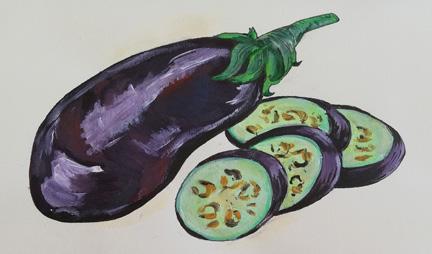
“Initially I wouldn’t quite understand the need to be in a romantic relationship with numerous people at a time. However, if that is what makes the family member happy, it is completely out of my control, and therefore if I truly cared for them, as I would, I would undoubtedly accept their situation. It’s their life, they should be able to live it however they want.” revealed one Senior Fresher engineering student
“I think most people consider monogamy to be the default, so if someone is polyamorous a lot of people assume that it’s just kind of cheating with extra steps,” one Junior Fresh Medicine student claimed.
“As well, there’s o en a very heteronormative child-centric view of relationships and a lot of emphasis placed on having a nuclear family, so the concept of more than two people being in a relationship/being parents is alien to most people.”
own, and it didn’t work. I have only been in monogamous relationships where only two people share romance, sex, and exclusivity with each other. I could not imagine having another partner to do that with. at’s not me, but it is them. A er much thought, I nally realised that I did not understand the consent of the situation, and I was scared the married partner was being pushed out of the picture. I wanted to be a supportive relative, so I educated myself.
To start, let’s debunk some myths.
Polyamory does not equal cheating.

“I think there is a lot of stigma associated with polyamorous relationships. Many people will assume you’re trying to cheat on a partner and polyamory is your way of disguising it. is is likely due to unfamiliarity with the concept of polygamy.

In Trinity, it feels like homosexuality and even polyamory are accepted, but outside of this bubble, people will exclude you for so much as wearing the wrong shoes. If you come out as polyamorous, your relationship with your family and friends are likely to change in a negative way. Your friends and family may judge you,” explained one Senior Fresher maths student. “You may lose respect in the workplace and lose out on future promotions. Rumours
A Senior Fresh Classics and Latin student responded: “I would be open to it if all of us involved were able to have feelings for each other. I’m afraid that one of the people wouldn’t be into everyone and would consequently feel le out.”

As a family member of a person that is currently in a polyamorous couple, I don’t like to admit, especially being part of the LGBTQ+ community myself, that I too used to be uneducated on the matter. At the beginning, I did not understand the dynamic and I was scared of how it would a ect our family. e respective family member was married to a partner that had been accepted and loved for years. en, they introduced the partner they were uno cially dating as a friend and the family liked this person. Conversation owed easily with them and I personally enjoyed them being around and coming to family game nights. For some reason, when my family member introduced them as a partner, it felt di erent. I had questions: Did the married partner know? Were they dating them as well? How was I supposed to act around them knowing they were having sex with a married person?!
A few weeks went by, and nothing more was being said about it. I was given the information and asked to move on, but I couldn’t because I was really bothered by the fact that there was this extra person in our family. ey had been around for a while, and the term ‘dating’ didn’t change the inside jokes or how nice they were, so what was it that made me feel so uncomfortable?
I tried comparing this relationship to some of my
Tuesday 11 October |2 Editor-in-Chief Life Editor Life Deputy Editor Arts & Culture Editors Deputy Editor Sex & Relationships Editor Deputy Editor Societies Editor Deputy Editor Student Living Editor Deputy Editor Food & Drink Editor Deputy Editors
A look into Love: Exploring Eros Top sex lessons from “Block, Delete, Move On”
the
second
time’s the
charm
-
discusses how she became accepting and supportive of polyamory
Polyamory is just another form of love.
Polyamory is, like all other relationships should be, consensual.
Polyamory comes in many di erent forms and dynamics: poly delity, where all members are equal and exclusive to each other, relationship anarchy, where multiple people are in a nonexclusive relationship, and polycule, where all members are linked to one member. Many more dynamics exist outside of what is mentioned above, but the term for the dynamic I’ve been exposed to and educated on is Hierarchical Poly: where there is a primary couple and one or both partners date another partner. Speci cally for me, it was a person with a husband and a girlfriend/boyfriend. It took me longer than I would like to admit to understand that this was not an a air, this was a triangle of consensual relationships.
e person I support in their polyamorous relationship is simply receiving love from multiple people, and I do not want anything else for them. is person truly deserves as much love and adoration as they put into this world, and I understand how that could take two people.
is was not their rst poly relationship, it was just the rst one I was told about. I had been great friends with their other lovers before and nothing bad came of it.
While I personally would not want to be in a polyamorous relationship, the last thing I ever want to do is stop someone from being loved. To those who have a close friend or family member
who is in a poly relationship, if your rst instinct is to distance yourself from them, ask yourself, what does polyamory really change? ere are so many great people in this world and we as friends, family members and allies are lucky enough to see our great person (or people) getting to experience several others.
ere is prejudice le in this society around multiple partners, but it is slowly being fought against and, if you are in a polyamorous relationship and struggle sometimes, hopefully an article like this can help you feel a little more accepted, loved and understood.

Sextoys. Despite our generation’s ardent proclamations of sexual liberation, when it comes to sex toys, an air tinged with taboo lingers. Vibrators are buried at the bottom of cloth piles, butt plugs secured and lube tucked behind cosmetics. Perhaps it is the residue of trauma from generations for whom the world of masturbation and sexual pleasure was engulfed with stigma.
Regardless, the world of sex shops continues to be regarded as forming an underbelly in the consumer world. is means that when a sex toy is desired and required a supplier might evade the mind. If we need some carrots we head to a grocery shop… but where do we get a cock ring? In fact, Dublin o ers a comprehensive range depending on your sexual preference. Here’s a brief rundown of some of Dublin’s best spots to do your sex shopping…
a minimum, perhaps avoid this store. However, the impressive range of vibrating goods makes the ten-minute journey from campus a worthwhile trip.
Basic Instincts, established in 1990, is situated in a stunning Georgian building in Temple Bar. Classifying itself as a Mask, Fetish & Adult Shop, it specialises in everything from genuine Venetian masks to all kinds of fetishes for the modern human adult. e store sources handmade masks from cra smen all over Europe, with suppliers dating back over 300 years. e store is open seven days a week (yes, if you are craving a certain something on a Sunday you can still be satis ed)!
Miss Fantasia, located on the charming South William Street, has been the purveyor of the nest lingerie, latex, high heels, leather, kink and pleasure objects for 20 years. ey carry a vast range of toys including beautifully sourced corsets and kink costumes. ey
Situated in the heart of town, Ann Summers is one of the most well-known names in the sex shop industry. On entering the glamorously decorated storefront, the array of scanty lingerie is somewhat overwhelming. From roleplay out ts to string arrangements they appear to cater to most desires. Yet, when you traverse to the back of the store, the excitement truly begins. e store o ers a large selection of toys of all shapes and sizes. e vibrator range is extensive yet somewhat pricey, so if you are hoping to keep expenditures at
Good Vibrations is another well-known name in Dublin sex store vocabulary. With three stores, located on Wexford Street, Dame Street and Capel Street, the brand o ers the greatest supply of products. In contrast to the somewhat mundane range in Anne Summers, Good Vibrations hosts a vast variety of interesting gadgets. Advertised in-store is a vibrating butt plug with a wagging tail, Autoblow blowjob machine, and an Oh Holy Mary pleasure cannabis oil (to name but a few).
even o er a delicately cra ed male chastity belt! e store also manufactures their own leather and rubber products and provides a free repair service. If you are feeling like treating yourself then this is de nitely a store to pop into.
If traversing to a shop is an overwhelming prospect do not fear — there are plenty of options online. All of the retailers listed above have their own discreet websites which o er home delivery. A particularly interesting site is Unbound, a revolutionary sexual wellness company that is based around empowering women to take control of their sexual health. For eco-friendly sex toys, your best bet is Organic Loven, which only sells the safest and most nourishing intimacy products from trusted brands like Fun Factory, Lelo, Liberator, and more. And the site also o ers consultations if you need some sexual advice!
| Tuesday 11 October 3
explores the best places in the city to nd the perfect sex toy for you
PHOTO VIA RAWPIXEL FOR TRINITY NEWS
examines the sexually charged language that troubles food writing
Foodis fundamental. Food writing, however, is not.
It’s lavish, embellished and ostentatious. Eating is essential. Reading notes about the umami taste of mushrooms on the other hand, is not so essential. Regardless, food writing sells. e dusty cookbooks and weekend magazines that decorate your presses are a testament to this. Ultimately, food writing is about communication: describing a dish, an experience or an act. at said, no one wants to read humdrum descriptions about boiled soggy cabbage now, do they? People want hedonistic gastronomic gluttony.
A food writer sells the sizzle, not the steak. Yet if you don’t want to sell the sizzle, you can probably sell sex. Sex sells, we all know that. People want to hear about the seductive cake with enough sugar to give you cavities upon the rst bite. We want to hear about the naughty little starter that was so oozy it could clog up your arteries. Raunchy right? ough has this quest for embellishment gone too far? I mean, sure — if you want to draw parallels between sauce and saucy, be my guest. Go for it. Describe that salad as sexy or that ketchup as kinky, but I do nd myself questioning this ongoing fetishisation of food. When did a brownie become slutty and why is it that fries have to be dirty and loaded? It’s just our, sugar, and chocolate really, and some potatoes sliced lengthways. ere can’t be that much more to it, can there?
e food critic M.F.K. Fisher wrote that food writing was about three elemental needs: food, security and love. ese are so “mixed and mingled and entwined that we cannot straightly think of one without the others.” is is the crux of the argument. When you want to write about food you write about how food makes you feel. Eating is ultimately a pleasurable act, one that ful ls a primordial desire, but that’s only looking at it on a fundamental level. Food writing, if done correctly, can instil a deep sense of safety, expression, and longing. e sum tends to be greater than the parts — when assembled in a certain manner, the mere combination of produce can be euphoric (note: I didn’t say orgasmic).
For example, if I were to describe a simple custard, I’d mention its lovely vanilla notes and state how beautifully it pairs with a Tarte Tatin. I’d also say how it reminds me of my granny. How she used to microwave half a box of Bird’s custard for my grandad each night for his dessert. How its pasty pastel yellow reminds me of the Simpsons characters, a show that was a cornerstone of my childhood. How the sugar content used to send me into a rush like no other. Fisher’s three aforementioned elemental needs are intertwined within this: the sustenance or pseudo-sustenance the sugar brought me, the security that a TV show gave me, and the love family members have for each other. ese all oscillate around, informing my thinking and, ultimately, my writing.
Yet why is it that Nigella Lawson describes custard as “ rm but not immobile; when you press it with your ngers, it should have a little wobble still within. So , warm and voluptuous — like an eighteenthcentury courtesan’s inner thigh.”
sugar (well, according to Mary Berry anyway). Lawson once said that she puts the kitsch in the kitchen. I hope it is the likes of Mary Berry who sits her down and tells her to cop onto herself. However, even Mary Berry, everyone’s favourite grandmother and pastry puritan, can’t escape from the sexualisation of food. I’ve seen you, Mary. Tasting that undercooked Victoria sponge cake, and, with the suggestive wag of a nger, proclaiming that “no one likes a soggy bottom.” Call me a prude, but I think it’s time to kick the kitsch and, dare I say, kinks, from the kitchen.
Of course language matters. e pen is mightier than the sword. No need to add to the adage. Yet the pen, when combined with the knife and fork, is a treacherous combination. I don’t know what it is with food writers, blog posters, or even Instagram captioners but maybe the list of adjectives to describe food is too sexually charged (juicy, sticky, oozing — I could go on). Why does everything have to be lthy, erotic, or arousing? Frankly, I just want to manger à trois, not a ménage à trois.
Ina literary world of owery prose and glamorised problems, the writing of Saba Sams stands out for its un inching depiction of young women. In particular, her 2022 collection of short stories, Send Nudes, hones in on her female character’s relationships with their bodies, sex lives, and each other in such an honest and detailed way that they seem to leap o the page. Trinity News was fortunately granted an interview by Sams, who thoughtfully answered questions pertaining to sex, the super ciality of dating apps, the turbulence of adolescence, and much more. e following is an edited transcript of the conversation.
“In Send Nudes, I noticed your depiction of sex tends to be quite candid. ‘ e sex hadn’t gone how I’d imagined, but it had gone,’ says Gracie, the protagonist of Tinderloin. is re ection comes a er she loses her virginity. As Gracie notes, movies and TV shows make the rst time seem like it should be far more pivotal. How do you feel about the way the media depicts sex, and are you attempting to dispel this portrayal in your stories?”
always cut back later.”
“What reactions have you had to the high concentration of sex featured in the book and did you face any drawbacks or obstacles in the publishing process?”
Sams answered: “I’ve been lucky in this regard. My editor and agent are both young women who understand what I’m trying to do. ere are various family members that I asked not to read my book, but they all ignored me and went ahead with it anyway. I think reading about real sex from the perspective of young women probably did them some good.”
Trinity News questioned: “Obviously, romantic and sexual relationships play a central role in your stories. Moreover, you highlight the importance of female friendships and familial connections: from a foster mother and her children in Flying Kite to a girl and her older sister’s friend in Blue4eva. e latter set of relationships o en seems adversely a ected by the former. Does this mirror your experience of real life, and which element was more di cult to write about?”
“I don’t know if I agree that the latter set of relationships are adversely a ected by the former, or at least that wasn’t my intention with the book,” responded Sams. “I think I’m more interested in the blurred line between sex and friendship, between jealousy and desire. Sometimes the e ect of one thing on the other is detrimental, but other times the outcome is positive, even necessary.”
“I like the use of the word ‘candid’ here,” Sams explained. “I think lots of portrayals of sex in our culture could do with a good dose of candidness: sometimes it hurts, sometimes it’s boring, sometimes you don’t know if you wanted it, and so on. Sex is a real thing that real people do, and the media nds it strangely easy to forget that. Still, I don’t think I succeed in being candid every time I write about sex – o en my characters are the kind of people who lie to themselves about their experiences, as well as everyone else – but Gracie is very frank, and I love her for that.”
What do custard and courtesans have to do with one other? Firstly, how does she know what an eighteenth-century courtesan’s thigh feels like?
Secondly, no
matter how much you want to talk it up, it’s just vanilla extract, egg yolks, single cream, milk, and
On a serious note, the ongoing fetishisation of food is a dangerous one. One that glori es unhealthy relationships with the food we eat. One that makes cooking a glamorous and aspirational feat. Food writers need to be aware of this, if people want to read gastronomic gluttony, let them. But can we at least make it more realistic? Less Fi y Shades of Grey and more Fi y Shades of Greying Gorgonzola, please. It’s time for the food-porn directors to get a real job. Stop cutting that egg yolk in a suggestive slow-motion manner and take it easy on the frosted glazing. e kitchen and food columns should be a safe space — a space not in need of a safe word.
Trinity News prompted: “What aspect do you nd most challenging when writing about sex in such a brutallly honest manner?”
“I think it’s easy to hold back for fear of cringing myself out,” answered the writer. “A teacher I had once wrote ‘more!’ in the margin next to a sex scene of mine. I try to really go for it now, and remind myself that I can
Tuesday 11 October |4
discusses sex, female friendships and the language of desire with author Saba Sams
“One of the stories that resonated with me most was Snakebite, in which an insecure young woman becomes friends and occasional lovers with a far more uninhibited party girl. Like many of us, Meg views partying with her friend Lara as a way of transgressing a far more mundane reality. At the same time, their relationship is adversely a ected by the men who are drawn to Lara and trade drugs for sex.” Trinity News asked: “Do you think that partaking in party culture can be a form of rebellion, or does it entrench women deeper in the patriarchal status quo?”
e writer responded that: “Absolutely I think partying can be a form of rebellion, but it’s also true that patriarchy seeps into everything like a sickness. It takes working hard and working together to keep our spaces clean, and this goes for anywhere – not just a club.”
“ roughout your work, sex and food are intentionally juxtaposed. In Overnight, the character Maxine envisions herself ‘as a nut cracked open’ in the a ermath of assault. In Here Alone, Emily, who has been led on to make an ex-girlfriend jealous, relishes the sensation of spaghetti sauce dripping down her chin. e list of parallels goes on.” Trinity News asked: “What was your intent in continuously highlighting these elements? Are there any overt similarities between sex and food?”
Sams responded that: “O en, I feel that writers don’t like to admit that they didn’t think too hard about something, that certain details make their way into a book for no reason other than because the writer likes writing about them. is is true for me when it comes to food. I like to cook and I like to eat, so food shows up in my stories all the time. Of course food is pleasurable, food is gross, food is sexy. But the reason it’s in there is just because I think about it a lot when I’m thinking about the world. ere’s not much more to it than that.”
“In Blue4eva, we see how a family has been changed in the wake of in delity and remarriage,” Trinity News continued. “Why did you choose the character of Stella to narrate, a twelve-year old who doesn’t fully grasp the reality of the situation, as opposed to her older sister Jasmine who does?”
“Stella’s right on the cli -edge of womanhood, about to be pushed o , and she’s trying to work out how to be. is makes her particularly observant, which is helpful for me as the writer of the story. I like how she pays attention – and makes me pay attention – to the detail
of certain characters and the ways they relate to one another,” Sams illuminated. “At the same time, so much of what she learns is wrong or confused, because of society or immaturity or both. I was thinking a lot about the way we become who we are. e distance between Stella and the reader, in terms of insight,
your characters’ sense of identity. Why have you chosen to write about young women who don’t t typical beauty standards?”
“Most of the time I’m drawing on real life, and that means writing real women. Interestingly though, I do think these women could perhaps t typical beauty standards, but they just don’t feel like they do,” revealed Sams. “ is is as truthful an idea to me as the idea that they aren’t conventionally beautiful in the rst place. We can’t ever see ourselves from the perspective of the rest of the world, and playing with that truth is something ction can do in a way that lm can’t, because a reader can only ever imagine the character in their head.”
Trinity News continued: “I was struck by the ending of e Mothers and the Girls. When the would-be love interest, River, refuses to choose between the two nameless girls, they react violently by jumping o a trapeze platform. What was your thought process behind this moment, and how was it informed by your understanding of adolescent desire?”
was an interesting gap to play in.”
Trinity News prompted: “‘In school, Stella’s not one of the pretty girls,’ ‘She knew that she wasn’t a beautiful woman, but sexy felt like something not far o .’ e language of desire is crucial to
e writer answered: “Finishing that story took me ages. I just couldn’t wrap it up. It’s de nitely my bravest ending, and I’m still not quite sure it works. I knew I wanted something wild, something unexpected, because the world of the story allowed for that, being a music festival, and also because there was something so feral about those girls. It was a situation where writing the story taught me about the characters, and by the end I couldn’t nail down a scene that really felt like them. I think the trapeze scene speaks to adolescent desire because of how overdramatic it is – River cannot be the be-all and end-all, until he is –but also because there’s something unifying about it: the girls come together a er being pushed apart.”
“In the titular story of the
collection, the unnamed female protagonist starts a conversation with an anonymous stranger over an app. It is sexually charged from the beginning, as he asks for her ‘asl- age sex location’ and for what she is wearing. In order to fuel his imagination, she lies and tells him she is wearing red lingerie,” Trinity News recounted.
“Moreover, in Tinderloin, the sixteen-year-old protagonist uses someone else’s picture. Do you think dating apps are inherently negative in their super ciality?
Also, did you write your characters as fundamentally dishonest or do their online lies re ect a greater societal norm?”
Sams explained: “I think this comes back again to body image, to our inability to see ourselves truthfully and about the anxieties that creates. Everyone is lying, in some sense, on social media and dating apps. It’s not easy to connect in the world we live in, so we are forced to seek out relationships via technology, where we can project

an image of ourselves that suits us in the hopes of attracting others.
e inherently negative thing here, for me, is that somebody pro ts from this super ciality, from this loneliness, and in the same fold our anxieties are fed in order to generate such pro t. I think probably my characters are both fundamentally dishonest and also re ecting a greater societal norm –like all of us online.”
Trinity News questioned the author: “What takeaways do you want the reader to come away with a er reading Send Nudes?”
“ is feels like a big question to me, and I’m not sure I can come up with an answer. I wrote short stories because I loved the form, because they t into my life at the time, and I wrote about young women characters because I felt I understood them, because I hadn’t read enough who were feral and contrary and brazen. I wasn’t thinking about the reader so much as I was thinking about entertaining myself on the page.”
And nally: “What are some themes you plan on exploring in the future?”
“I’m writing a novel at the moment, and for a long time my protagonist was a young woman. I felt like I knew how to do that; it had worked in Send Nudes, and I guess I was afraid to stray away from something that I knew I could do,” Sams revealed. “But recently I’ve ipped the perspective in the story and started speaking from an older character. It’s been really freeing. I like considering the ways that previous relationships, jobs and experiences have in uenced a person. With an older character, there’s so much more backstory to play with.”
Send Nudes by Saba Sams was published by Bloomsbury in January. It can be purchased for £11.99 on Amazon UK or £13.49 from e Guardian Bookshop or your local retailer.
| Tuesday 11 October 5
PHOTO
BY SOPHIE DAVIDSON FOR THE GUARDIAN
Thiswas not an article I had initially wanted to write (mm, yeah, not sure I want to permanently stamp the internet with the inner-workings of my sex life). Nevertheless, around this time a year ago, I began the stomach-churning descent into the rabbit hole of contraceptionrelated-google-searches. And, I just felt really alone.
I gured that, if I felt this way — with a loving, long-term partner, the wisdom of a mother who was sometimes too open about sex, and full access to healthcare — then it must be really overwhelming for anyone in a less supportive environment. Besides, I love talking to women about things.
We’re unreal at it. A er nally mustering up the courage to say you have (...awkward, shameful hesitation…) a UTI or needing to get the morning-a er pill, most times, people will turn around and say “oh god, I just had the exact same thing. I was peeing, like, every seven seconds!” So, here you go, here’s my tiny contribution to a conversation that needs to be had.
Contraception is any method that deliberately prevents a pregnancy. So, there are hormonal ones: a pill, a patch, an implant,
discusses her experience with navigating contraception makes the case for Kim Kardashian wearing Marilyn Monroe’s dress to the 2022 MET Gala
an injection, or an intrauterine system, otherwise known as the coil. ere are the non-hormonal ones: condoms, internal condoms, diaphragms, IUDS, or surgical procedures like vasectomies and tubal ligation. Also, the prediction of ovulation, through cycle tracking. And no, we don’t count the withdrawal method. Out of all of these, only barrier methods (like condoms) will protect you against STDs and STIs.
e internet has mixed, and
usually strong, opinions on the pill (like it does with just about everything). Clickbait and genuine distress alike, I wolfed down hundreds of articles, videos and blog posts on how birth control nearly killed her, starkly changed her appearance, or made her catatonically depressed. ere were endless negative experiences. Occasionally, the odd few would emerge and say it had calmed their acne or eased their mood swings.
According to Marie Claire’s 6 Birth Control Horror Stories You Should Know, I was either going to get a cranial blood clot and die, or get really, really big boobs. So, I did what everyone should do and spoke to a professional. I rocked up to my gynaecologist with an actual hand-written list of concerns I had.
Now, long story short, my mother has a genetic mutation which means she and possibly I, are signi cantly more likely to get breast cancer. is was something I had to take into consideration too: whether the combined pill, or the progesterone-only pill would up my chances even more. In truth, I was scared of any big changes, just as you’d probably be too. I like to think of my self-esteem and general mental-wellbeing as a lovely and magni cently fragile ecosystem — and from what I’d heard, all of this was going to launch at it like a category 5 storm. I didn’t really want my body to change, I had only just stopped hating it.
A few little, green sheets of microgynon later — a combined contraceptive pill — I had
thoughts. I had initially bled for well over a month. is, although fairly normal, was not something I particularly enjoyed. But, what had really bothered me was the persistent nausea: ah yes, the increasingly familiar notion that I was going to be violently sick a er breakfast each morning. Nevertheless, I hung in there. e side e ects were only meant to be at the start, and if I needed to try something new, I would just try something new. ere were, a er all, a gazillion options.
Now I actually (drum roll please) like it. I dictate when I get my period, and when I do, feel noticeably less miserable than beforehand. e consistency of hormonal levels ended up working well for me: I’m less prone to emotional dips and spontaneous cries on the bus home, which is good both for me and for all the sorry souls who have to witness that. I’ve had a few scares with barrier methods before, so the pill just feels more reliable.
I’m lucky. Most of my friends have switched between various contraceptives, in a stressful process of trial and error. Everyone’s body is di erent, and thus, everyone will react di erently. So, even in just a medical sense, contraception can be tricky: there’s a lot to take in.
And the elephant in the room is that the burden is solely the responsibility of women. Women deal with it nancially and logistically. ey feel its physical e ects. Since men don’t face the possible repercussions of sex in the same way, they are exempt
from a situation in which they are equal participants. With female reproductive rights under attack, the prevention of unwanted pregnancies should fall on both parties. Male contraceptive pills are apparently on the horizon: one works by targeting speci c proteins in sperm with no observable side e ects, whilst another reduces testosterone.
e latter could lead to potential weight gain, lesser sex drive, and depression — which obviously no woman has ever faced as a result to birth control, so that’s a no-go.
e topic has been described as a mine eld. From its political weight to the culture of silencing female experience, to the disorientating blur of information out there, it feels more vital to talk about it than ever. I don’t think sexual well-being should ever make anyone feel alone — and even if all our experiences di er, there is catharsis and strength for change in that unity.
Mr. President’ performance, remarked: “Marilyn was a goddess. A crazy goddess, but a goddess… no one else should be seen in that dress.” e idea is that Marilyn was a national treasure and that Kim is her shallower counterpart, using the dress for clout, when Marilyn wore it for... what exactly? Comfort?
Filling
the feeds of Instagram, Twitter and Tiktok, it is impossible to have missed the images of Kim Kardashian donning Marilyn Monroe’s iconic gold gown for the recent Met Gala. It has also been impossible to miss the fact that people are not happy about it.
Potential damage to the garment is one thing, but the criticism started beforehand. Some fret that the gown is meant for a museum instead but, weeping historians aside, why are people so upset?
Most of the arguments against Kim Kardashian is that she is somehow unworthy of the dress.
Bob Mackie, the designer who originally sketched the dress worn for Marilyn’s 1962 ‘Happy Birthday,
ere are plenty of parallels between the two women. Both were in uencers that pioneered the beauty standards of their respective decades. Marilyn embodied the curvaceous body ideal of her time, with women eating raw eggs mixed with hot milk to try and achieve her image. Similarly in 2015, the year a er Kim’s bum broke the internet, a cosmetic bum procedure was performed every 30 minutes. Additionally, both women were relentlessly exploited on the basis of their looks: Marilyn was abused in care from as early as age 8, continuing to face harassment in the entertainment industry as she aged. Meanwhile, Kim was famously a victim of digital violence when her former partner Ray-J leaked her sex tape, as well as the recent coercive
control and public harassment she has undergone by her exhusband, Kanye West. Both women’s careers also evoked subsequent controversies, o en for their sexualised displays. As we can see, Kim and Marilyn occupied similar cultural niches in their eras and both did what they could to maintain fame in male-dominated industries. To Gen Z at least, both are as iconic as each other, so why the di erential treatments?
e answer lies in their sexual presentations: one of which is palatable to the mainstream and one of which is not. Marilyn is a symbol of a particular kind of sexuality: a so , sweet seductiveness and a submissive, blonde innocence. She is sexy but bashful, with an appropriate amount of humility. She is also a orded passivity in this narrative. She is a symbol in the literal sense, something that does not make its own meaning, but onto which desire is projected. Norma Jean herself described Marilyn as a persona, not a person. She was a fantasy, an illusion. Not only this but we understand her as exploited,
so there can always be doubt as to whether her more sexual presentations were products of pressure or free choice.
Kim rose to fame due to her sex tape, and has been photographed fully or partially naked a number of times since then: a modelling style that Marlyin also engaged in. e di erence is that Kim is assumed to be in control of these decisions and, even when she has not been (the release of her sex tape, for example), she is not granted a Marilyn-esque victim narrative. Instead she is said to be pro ting from it, with her rise to fame accredited to the tape, or she is accused of doing it for followers and clout. Ostensibly deliberate expressions of Kim’s sexuality, or her reclamation of another person’s attempts to exploit her sexuality, pale in comparison to Marilyn’s feigned unintentional allure. When Kim behaves as an agent she is shamed for having the audacity to not even pretend she is performing under a guise. at is not to say we should all be fans of Kim Kardashian. Kim is not beyond criticism: the promotion of unrealistic body standards, cultural appropriation
and black shing being some of them. But you don’t have to support her to agree that the two celebrities have occupied almost identical cultural spaces — if anyone should wear Marilyn’s dress it makes perfect sense that it’s Kim Kardashian. No one else is iconic enough for all the same reasons.
ese criticisms stem from the ne line we make women walk between overt and covert sexuality. Marilyn seduces, Kim invites. One is sweet, kind and classy; the other shallow and tacky. Kim cosmetically cultivated her gure to draw attention while Marilyn stumbled upon a gold mine physique. Marilyn’s presentation was not always so coy. She posed semi and fully nude a number of times and her performance in this particular dress was steeped in agency and decisiveness. However, the Marilyn that is cherished is the girl upon the grate, tentatively holding down her billowing skirt from revealing her undergarments against her will. Accidentally desirable and powerless in its wake.
Tuesday 11 October |6
consider what love means through the Greek concept of Eros
Whenwe think of love, eros (ἔρως) may be the rst concept that we associate with the word. In the Greek language, eros means passionate love in a lustful, desiring, sexual way.
Personi ed in mythology, the Roman counterpart is the god Cupid, a name that we know well even in the 21st century. We have heard stories of the cunning god shooting his arrow, leaving the recipients at his mercy. e theory of theia mania (madness from the gods) may seem far-fetched today, but when we consider the idea of being driven crazy by love and look at the irrational actions we perform when cast under the spell of it, the Greek concept rings true. Whether you relate to Beyonce’s Crazy In Love in that you’re head over heels in the best way, or you cry in your room as you obsess over a lover, eros a ects us today in more ways than we think.
To look back at those before us, Hesiod, in reference to eros, described him as the god who “loosens the limbs and weakens the mind.” On top of this, as someone hit by the e ects of eros, Sappho described the very physical feelings of this extremity of love: “Eros shook my soul like the wind / Attacking the trees on a mountain.” My favourite description of this type of love by Sappho is the use of the term bittersweet, or sweetbitter in some translations — eros can be sweet at rst, and then the bitter sting follows.
Eros can be dangerous. A force to be reckoned with. We all know it well. A little too well.

to pornography, within erotica women can be at the forefront of their own desire, rather than being seen as objects to be conquered. Questions remain as to whether or not pornography can be truly ethical and empowering.
Erotica and erotism are wonderful, pure, and native to the human experience. What is erotic is not necessarily hardcore, graphic, and usually false depictions of sex but rather; a hand on the knee on a rst date, a meeting of eyes from across the lecture hall, that stare between you both as you are about to kiss for the very rst time. ere is a so ness to be found in erotism. e beautiful thing that is sex; two bodies coming together, portrayed and enjoyed in works of art, literature, music.
on camera.
Of course, some of the most special eros that we experience arise from ordinary life and ordinary interactions. How magical it is to experience the zzle of excitement and the franticness of making your way up to their bedroom. e giggling when awkward mishaps occur (and if you do not laugh once, then you are probably doing it with the wrong person). e tenderness of debating what kind of lighting is appropriate (ambient or natural are equally winners).
e little bumps that happen are all part of it. Eros is a very special type of love to encounter, and it is important in this day and age where loving sex and romance can be forgotten to keep and cherish it.
that has passion is portrayed as being bound to prevail.
No obstacles can be seen to intervene between two individuals infatuated with one another, con ned in the intense grasps of lust and sexual desire. For what is love without passion? However, what becomes of love when passion is all that exists?
up for the emotional neglect.
Sexual liberation has changed its course. From its proliferation in the women’s and LGBTQ+ movements, the name of sexual liberation has been used to excuse and promote violence and sexist power dynamics against women. Some argue that pornography is liberating for women and for some individual women that may be true. However, in my view, it has, as a whole, harmed progress in the acceptance and celebration of female sexuality.
ere is an important distinction to be made between pornography and erotic works. In contrast
ere has always been high demand for romance novels, primarily from female readers, because women’s desire to be desired and loved as equals is o en neglected. TV series such as Bridgerton and Jane Austen novels have always proved immensely popular with women of all ages. Experiencing erotism through a book is especially empowering for women as women tend to experience arousal through using their imagination or non-visual stimuli. Of course, it depends on the individual, but many women would nd romantic tropes such as Mr. Darcy-like characters chasing a er their beloved in a storm on horseback are more romantic and appealing than exaggerated scenes of their gender being mistreated
Eros. Undoubtedly, passion in love can sometimes feel like an additional bonus, yet is almost more of a prerequisite.
Sensual attraction is an element of romantic relationships that tends to be overlooked. ere is something stimulating about the interlocking of ngers, brushing your ngertips against the skin of a beloved, a seductive act of intimacy that can transcend to sexual attraction. Physical touch is a love language, which may be necessary as an indication to one that they are coveted, a way to di erentiate between a romantic partner and otherwise. Tactile interactions are central to the human phenomenon of love.
In media sources and within wider society, any relationship
We become objects. Merely vulnerable, lustful targets bursting with sexual promise for the eye of the lewd beholder. Instead of allowing us to connect with another on a deeper emotional level, eros comes to serve the purpose of ful lling one’s personal sexual needs. e function of the relationship shi s its lens to the person who’s feeling sexually attractive, rather than shining on the partner who should be the focal point of that love. When erotic tendencies dominate, it can make you feel wanted. In turn, women tend to abandon their boundaries in e orts to please a sexual partner, rather than respecting their own needs. e short-term validation is seemingly worth the discomfort of otherwise being discarded, ine cacious.
Eros is an addiction that can be almost impossible to detach yourself from. It can make you feel loved, in the face of no other redeemable actions accompanying the passion. Despite feeling disrespected, physical chemistry that is so intense can make one feel that the degrading romance is worth it. It justi es going home in tears each night because the sexual energy of the relationship felt so gratifying in the moment. I convinced myself it almost made
Intimacy can exist without passion. is is perhaps the basis of platonic relationships. A lack of eros does not mean an amorous relationship cannot thrive, although sexual desire may the basis for a romantic partnership. However, in order to maintain longevity, the foundation of a healthy and promising relationship must be built on an emotional connection before transcending to a sexual, erotic attachment. Don’t mistake passion for love, which can lead you to stay in a space that is no longer safe — one in which you and your body are not respected.
| Tuesday 11 October 7
PHOTO VIA UNSPLASH FOR TRINITY NEWS

Tuesday 11 October |8
PHOTO BY FERN KELLY-LANDRY FOR TRINITY NEWS
explores College’s worst kept secret and why so many students try to keep it that way
Ina world of marketable insecurities, to love your body seems like some grand act of rebellion. To let someone else love it, whilst openly admitting to it, seems totally outrageous. We fall into the trap of assuming people see the worst in us, already resigning ourselves to that person not fancying us back, not thinking we’re attractive. And if someone does believe in themselves and acknowledges they think someone is attracted to them (because why shouldn’t they be?), it’s a scandalous admission of bravery and vanity. To hide your belief in your sexual appeal behind a curtain of hesitation makes us relateable, humble, and protected from any potential rejections. It’s safe. But it shouldn’t be. is mindset progresses with us further than just the level of sexual attraction. We have a similar uncertainty for discussing sex itself. It becomes an awkward topic, too easily we either become over-sharers who spill too many details, or prudes who keep the whole story to themselves. It somehow feels impossible to share the right amount. It becomes a case of what is deemed appropriate to talk about and what is not.
Sex should be good — no, it should be great. It should be worth talking about, even screaming about. Most of us are having it and many more of us are thinking about it, so why is it still so taboo to speak openly about it? Why must we tiptoe around the realities of sexual attraction to conform to some unspoken guidelines? Why can we only ever talk about sex if it’s in a hushed, gossiping tone, or an educational lea et telling you to use protection (but also, please use protection)?
People who talk openly about their sex lives become talking points themselves. We’re taken aback when someone speaks directly about good experiences they’ve had, without innuendos or telling facial expressions. It’s all kept shamefully private. You sleep with someone and then can barely acknowledge them in public. You are asked how you know someone and it’s somehow scandalous to say you met on a dating site because these things are meant to be private, they’re meant to be personal, and therefore they’re meant to be secret.
I don’t think that this should be the case. I think sex should be spoken about openly. If you’re having a good time you should be able to talk about it, you should be allowed to say you think people fancy you, or if you’re attracted to them. Once you can talk about sex, and unashamedly admit to having it just because you want to, the whole conversation changes. Talking about the good parts opens the conversation to being able to talk about the parts that maybe weren’t as good. It means we can discuss boundaries and preferences without feeling uncomfortable, and we can ask questions we’re currently too scared to ask for fear of embarrassment. Normalising the conversation means we get rid of the scandal attached to the act, so it no longer matters whether or not you’ve had sex yet, or how many people you’ve had it with. Once we get rid of the seeming scandal of sex, we get rid of some of the judgement and the entire experience becomes normalised.
No longer do you have to pretend to be enjoying something you’re not, because let’s be honest — your priority during sex should be you. It should be fun and it should be safe and that only comes with communication. Imagine how much more e ective sex ed would be if everyone could talk about it without giggling and blushing.
Open conversations are good. Be honest and clear. It’s good to enjoy it, and it’s good to talk about what you need to enjoy it. Sleep with whoever you want (as long as it’s consensual), and don’t be afraid to own that experience. It’s your body and it’s up to you what to do with it; let it be appreciated, appreciate it. Sex is normal, and it’s time we treated it as such.
| Tuesday 11 October 9
rough the work of Lalala Let Me Explain, sheds light on important lessons on sex and sexuality
communications and block, delete, and move on. Pink ags however are certain behaviours we should take note of that could be harmless but should be treated with caution, such as being an inconsistent texter. Two or more pink ags become red, meaning it’s best to avoid them.
If
you have ever wished for a wise agony aunt at your disposal to satisfy every query you have ever had about sex and relationships, look no further than Lalala Let Me Explain. An exsocial worker turned anonymous online sex and relationships educator, her Instagram account @lalalaletmexplain has amassed over 230,000 followers. Lala uses this platform to o er both expert and anecdotal advice on sex and dating based on her many years of personal and professional experience.
Earlier this year, Lala published her long-awaited debut book. An accumulation of her best advice, Block, Delete, Move on, works as a mantra she o en encourages her followers to live by, should they encounter ghosting or red ags. Many older individuals over the last year have commented on her Instagram posts, exclaiming that having read this book in their young adulthood would have saved them years of guilt, confusion, and heartbreak over their sex and dating lives.
With much to gain from the experiences and advice in the book, here are the four greatest lessons to be learned from, Block, Delete, Move On.
Beginning with one of the most important issues, Lala draws attention to the psychological state of limerence, an extreme sense of romantic addiction. By de nition, it is an all-consuming obsession and intense infatuation toward an identi ed potential romantic partner. It goes beyond feelings of an exciting buzz when meeting someone new and feeling extremely excited to see them again, or checking your phone to see if they’ve replied to your texts.
Limerence is an intoxicating, unquenchable addiction to the feeling of falling head over heels in love. Lala warns that if this psychological state is le unchecked, it can become highly detrimental to one’s mental state.
A limerent episode may include obsessively ruminating about the other person, constantly bringing them up in conversation despite their irrelevance to the original topic, checking all their socials on the hour, and even travelling
to locations where you have encountered them before in the hopes they might be there.
Sometimes, when in these types of situations, we may nd ourselves disregarding our own emotions and boundaries to please the other person at any cost. For sex, this could look like eagerly wanting to satisfy your partner’s sexual fantasies, without rst consulting
your own desires for compatibility. Lala greatly emphasises that we must always remind ourselves to only engage in sexual activity we are eagerly excited about, and we must never simply go along with our partner’s requests just to make them happy, especially where there is potential for danger, such as choking. is point leads to our next:
own. If not? Remember to block, delete, move on. Leave sel sh lovers in your past.
Secondly, being aware of your preferences and desires will inform your high standards. is is applicable to love languages. Knowing what category your personal way of showing love falls into can o entimes be your biggest clue to compatibility in a relationship. Whilst it’s not uncommon that two di ering love languages can thrive in a sexual or committed relationship, it can lead to unenjoyable sex if your love language is physical touch and your partner is adamant that they aren’t a ‘touchy’ person. e same applies if someone who prefers words of a rmation is paired with a partner who nds compliments or verbal expressions of love to be cringe. Reaching an agreement on expressions of love can halt a potentially disappointing experience in its tracks before it reaches the bedroom.
In her book, Lala quotes qualitative studies which indicate that cishet women who date cishet men report having internalised feelings that sex is for the man, and women are there to facilitate their pleasure. She states that mainstream pornography has exacerbated this feeling.
To combat this, Lala states that we must prioritise our own pleasure in every sexual encounter. According to a study conducted by Durex, the orgasm gap for cishet couples is very evident, with 95% of straight men reporting always or usually climaxing during sex — compared to just 60% of straight women. is should never have become a norm. Good sex is about both parties having a great time, not just one.
Discussions with your partner around desires, preferences, and boundaries are crucial to closing this gap. Attitudes must be changed. Going into every sexual experience, your own pleasure should be a priority and never an a erthought. At the very least, the person you are sleeping with should want to please you and meet your needs as well as their

e second lesson taught us that we must run and never look back on partners who have no regard for our sexual pleasure in relationships. Yet in her book, Lala states that the best case scenario is to try and identify potential unful lling partners before even entering the bedroom. is comes from having high standards and sticking to them as a form of selfcare.
For example, Lala recommends keeping tabs on your potential partner’s pink and red ags. For those unaware, red ags are total deal breakers, where it is best to immediately cease all
Lastly, it can be an uncomfortable topic in the early dating stages, but having mature and open conversations about past sexual experiences and current desires is the most e cient way to lter out incompatibility and avoid wasting precious time on unful lling experiences.
Knowing your attachment style will give you a great indication of your relationship with casual sex. If you have an avoidant or secure attachment style and are not easily manipulated by your emotions, theoretically, you are more emotionally equipped to handle casual sex. On the other hand, those who have an anxious attachment style may tend to be ruled by their emotions and be hypersensitive to others’ actions with a tendency to internalise them. Perhaps you may wish to proceed into casual sex with caution. Lala summarises this chapter by advising that you should not engage in casual sex if you don’t want to be treated casually by the person you are sleeping with. If casual sex isn’t your thing, you do not have to keep up with your peers or feel like your youth is wasted. We must do what is best for us.
Block, Delete, Move on is a bible for dating and sex advice in the 21st century. Whether you are in a committed relationship or newly single, Lala has answers to every question you may have been too embarrassed to ask. She empowers readers in their sexuality and encourages us to live our best sexpositive lives.
Tuesday 11 October |10
PHOTO VIA UNSPLASH
Sexualempowerment and women — Until recent years in modern society, these two concepts have not particularly coexisted harmoniously. Now conversations surrounding feminine empowerment are frequent and familiar, and the stigmatisation of feminine sexual topics is rapidly declining.
e Dublin University Gender Equality Society (DUGES), is Trinity’s own gender equality society. DUGES create a safe space for the women and gender minorities in college to engage in the crucial ongoing conversation around gender politics, sexuality and feminism. ey aim to educate women, men and the queer community on the importance of safe sex practices; with partners and sex toys alike. Weekly co ee hours and closed spaces encourage
open discussion, seeking to foster social change and student activism.
An exceptionally informative sitdown with DUGES’ Chairperson, Leah Downey, rmly established the society’s aim as a direct “commitment to intersectional feminism” which seeks to analyse the interaction of various modes of oppression, further stimulating discussions about women’s rights.
Sexual empowerment is a fundamental tenet in feminist principles, and a “cornerstone of DUGES’ values as a society.”
Feeling liberated in one’s sexual preferences is a central part of discovering and shaping selfidentity; further enhancing ful lment in all aspects of one’s personal life. Yet the sexual freedom to express is not always an avenue that is available to everyone — for the majority of individuals, it can take years of self-discovery before exploring these sexual encounters, with boundaries and no limitations. However, society as a whole should be willing to support women on this journey.
Whilst there is an abundance of encouragement regarding sexual empowerment in Trinity, a lot of work relating to feminine sexual empowerment is linked to the work surrounding “eradicating
feelings of shame and societal standards for female sexuality,” Downey details. e TCDSU work alongside DUGES for the facilitation of condoms and information regarding STIs and safe sex practices, with committee members noting that many students are “too embarrassed or shy to take the condoms.”
e mental health aspect of sexual relations is also a priority for the committee to preach about. Even though women have come a
long way from the Catholic Ireland that prohibited contraception and shamed female sexual practices, these experiences have become embedded in our culture. DUGES aim to destigmatise female sexuality and the feelings of shame that o en accompany sexual exploration, facilitating women in the process of unlearning and deviating away from our sexual biases.
Although an inescapable stigma surrounds many female activities, these issues are accentuated within the realm of sex. Society di ers its stance on masturbation from gender to gender, with male masturbation o en a topic of open conversation amongst peers — It is seen as a standard aspect of adulthood and puberty, free from the indignity associated with masturbation among women and gender minority groups. Successful masturbation and reaching a climax is o en more complex when you have a vagina than with a penis, and involves more mental stimulation. ese added elements can be intimidating and cause stigma between women also: “It’s a multifaceted issue that we hope to make students more comfortable discussing and exploring,” shares Downey.
From a feminist perspective, DUGES assists in supporting women in relationships outside the public sphere, decondemning these discussions and “li ing the barriers that subjugate women and the LGBTQ+ community” thus eliminating the positive bias towards male sexuality and the objecti cation of women through avenues of sexual emancipation.
is year, DUGES have already held a plethora of empowering social and educational events; with the inclusion of a closed space, a poster-making workshop, and a vigil for Mahsa Amini, additionally attending protests (in solidarity with women in Iran) and a March for Choice, amongst many other events. DUGES’ events are constantly adapting, catering to the needs of its members, and directly linking to students’ demands of feminist representation on campus.
e most e ective way to erase stigma and create open, shame free discussions is through education. With sexual health and sexual empowerment always a high priority for the committee, DUGES is a society you can always rely on to care for and empower absolutely everyone in Trinity.
gets freaky in the kitchen
Do you enjoy the idea of intimacy-inducing aphrodisiacs, but wine gives you a headache, and, even though you’ve never tried oysters, they kind of freak you out? Do you enjoy childish sex-jokes and phallic visual puns? Irrespective of your answers to the previous two questions, does the thought of creamy, rich, delicious pasta sauces titillate your senses (and does the word “titillate” make you giggle immaturely too)? If you thought “yes” to any of these questions, then look no further than this aubergine and tomato pasta — which will give you ample opportunity for suggestive jokes, but will also leave your tastebuds suitably aroused.
- 1 aubergine

- 1 onion
- 2-3 cloves of garlic - 227g tin of nely chopped tomatoes - 100ml cream (optional but delicious)
- 250g of your favourite pasta shape (penne supremacy) - Tomato paste - Some butter - Some olive oil
To start, cut up the aubergine by slicing it into half-inch thick
circles, then dicing. Before dicing the circles, hold two of them up to your chest and pretend you have giant nipples, but you don’t really, it’s just an optical illusion (created by the aubergine circles). en dice the onion.
Melt butter in a frying pan on medium heat until it foams, then say “ooh la la” while adding a little olive oil so the butter doesn’t burn (like your desire for that stranger you spotted eyeing up the
aubergines in the vegetable aisle). Add the vegetables and cook until so ened and slightly browned. Add in the chopped garlic at the end so it doesn’t burn either.
Add a tablespoon of tomato paste into the pan and mix with the cooked vegetables for thirty seconds before adding the tinned tomatoes. While the water evaporates as the sauce simmers, point out the steam and, in your best Jack Black impression, say “it’s gettin’ steam-ay in here” for your girlfriend’s/your atmate’s/ your own amusement, depending on your relationship status.
In the meantime, cook your pasta according to package instructions. Don’t repeat the Jack Black impression with the steam from the pasta water — you probably didn’t even deliver it well the rst time.
Add the cream to the sauce to really recreate the decadent richness of Carluccio’s weekday lunch deal (which outrageously went up to €5.50 over the summer). Stir it in to create a beautiful, rich, orange sauce, reminiscent of those little orange couches in the arts block that always fall over when your friend sits down beside you.
Splash in a little bit of starchy pasta water to nish the sauce before adding your drained pasta. Mix it all around in the pot until it makes the funny noise and you can reference that vine (you know, the one with the sound of the macaroni). Serve warm and enjoy!
| Tuesday 11 October 11
explores how Trinity’s gender equality society is tackling stigmas
PHOTO VIA UNSPLASH
explores sex symbols found in the culinary arts
Have
you ever been in the midst of a sweaty, late-night booty call and thought “I’m dying for a pain au chocolat”? roughout my teenage-to-adult life, sex and food have always competed to be at the forefront of my desires, every so o en combining in a con agration of decadent, sensory pleasure. Outside the bedroom, their association is equally prevalent; from simple aphrodisiacs to phallic foods, this power pairing has burrowed its way into our everyday lives through cookbooks, food blogs, mukbangs and ASMR. Naturally, sex has also been integrated into our food-related popular culture. De ned by hypersexualised ction and reality shows, it increasingly feels like an indispensable tool to spice up the monotonous task of casual cooking for the general public. is thematic fusion has given rise to several sexualised genre tropes within the culinary world, some of which, though o en quite amusing, are ultimately based on gendered stereotypes.
One of the staples of contemporary culinary media is the Sexually-Competent Dirtbag: a straight, white, tattoo-clad, leather-wearing male chef. One whose pastimes mainly consist of smoking, motorbike riding, listening to rock music and doing drugs. is trope emerged in the
90s when the culinary industry experienced a sharp rise in male chefs. e original SexuallyCompetent Dirtbag is, without a doubt, Marco Pierre White, whose rst cookbook White Heat featured images of him caressing dead sharks, smoking in kitchens and spoon-feeding supermodels his signature fussy French food. White reframed cooking as a masculine performance, an activity to prove one’s manhood through the laborious but creative
task that is professional cooking. A decade later came Anthony Bourdain’s Kitchen Con dential, recounting his action-packed tales from the start of his career in the kitchen. e book cemented Bourdain as an haute-cuisine casanova with its excess of lewd references, providing the readers with a painstakingly surface-level and exculpatory insight into the prevalence of sexual harassment in the culinary world. In more recent popular culture, Boiling Point’s Andy Jones (Stephen Graham) and e Bear’s Carmen Berzatto (Jeremy Allen White) have deconstructed this trope. Both characters demonstrate that beneath the Dirtbag’s hypermasculine facade o en lies an aching void of addiction, trauma and regret. Despite the fact that both pieces are largely free of sexual connotations, both Graham and White’s characters are nonetheless portrayed on social media as Sexually-Competent Dirtbags’. is reasserts that tropes are not simply cra ed for an audience, but can just as easily be projected onto these characters by its viewers.
Another sexualised culinary trend romanticises the selfful lled Domestic Goddess: a warm, nourishing stay-at-home wife, the epitome of upper-middleclass living, free to casually whip up a lavish ve-course meal for her husband and 2.4 children from the comfort of her own spotless, marble-counter designer kitchen. is trope is commonly associated with (and projected onto) food bloggers, whose posts explicitly romanticise this unobtainable lifestyle. Don’t get me wrong, I am fascinated by this persona, but
I’m convinced this is only because there is so little conversation surrounding what the lifestyle actually demands in terms of time, money, and emotional availability.
Nigella Lawson is famously lauded as e Domestic Goddess, as the media persistently celebrates her sex appeal, classic beauty and charisma. ese are all embodied in her frequent adlibbed innuendos: “the closer the bone, the sweeter the meat.” Lawson has repeatedly denounced the media’s over-sexualisation
of her work, claiming that home cooking, as per her own words, is an “emotionally nourishing” activity, a means of expressing selfcare and pleasure — not an activity subject to her sexualisation. Even if she does exploit her sexual appeal, ultimately, the question is not whether to demonise her for her irtatious persona, but whether this image is her own creation or the result of lecherous producers attempting to transform her cooking into so core porn.
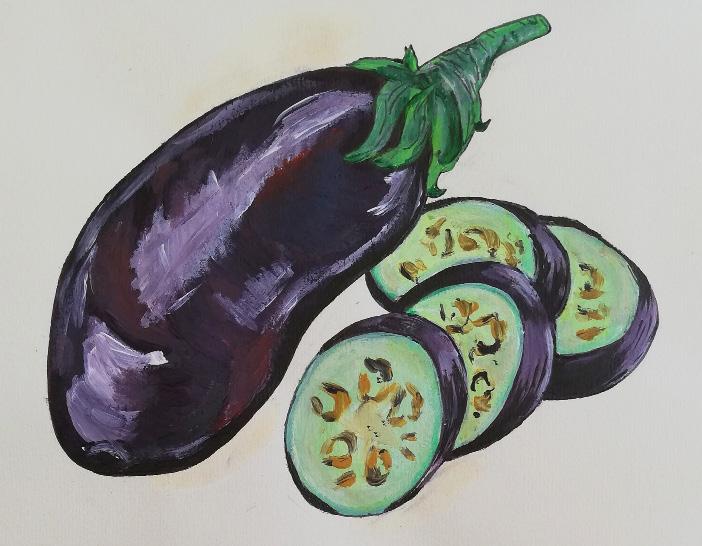
Moving onto perhaps more psychoanalytical terrain, the presentation of professional cooking as masculine performance naturally leads us to the Angry Chef: a foul-mouthed, platechucking dictator who makes his subordinates’ lives a living hell. Accordingly, Gordon Ramsay in Hell’s Kitchen represents the ultimate Freudian father gure, emotionally castrating the underperformer at every opportunity. Failing to balance a delicate lamb jus is a marker not just of failure, but impotence; the head chef’s omniscient eye will always notice the aws you are attempting to hide and — like Colette in Ratatouille — will not hesitate to humiliate you.
Authority and obedience are the Angry Chef’s mantras, a relationship of dominance and submission that, if improperly observed, will result in painful emasculation. Where Ramsay represents the Freudian father, Paul Hollywood is a walking Electra complex, whose masculine presence you want to appease, not out of fear, but adulation. rough his masculine presence in the kitchen (or e Great British Bake-O tent), he pushes his apprentice towards perfection with a supportive and caring — but nonetheless rm — paternal demeanour, where crowning achievements are potentially rewarded with an elusive Hollywood handshake. us, by combining Hollywood’s imposing masculine presence with the restrained and upli ing format of Bake-O , he injects sex appeal into the generally wholesome process that is baking.
Overall, while food is ultimately a convenient stand-in for sex and desire, cookery can also present a medium for conveying dominance and admiration. rough stunning Battenberg cakes and unfortunately undercooked sea bass, programmes such as e Great British Bake-O or Hell’s Kitchen examine more unconventional ways to create sexual tension through food, rather than by over-using tired innuendos and on-the-nose scantily-clad kitchen shoots. Broadly speaking, these tropes promote unattainable (and undeniably heteronormative) fantasies and ideals, associating femininity in the culinary world with domesticity and family life, while rea rming the maledominated nature of professional cooking. Cream pie, anyone?
Tuesday 11 October |12
ARTWORK BY ELLA SLOANE FOR TRINITY NEWS
examines why onscreen nudity is an issue for actresses breaking into the industry

Ifyou have ever turned on your TV a minute past the watershed, there is a high chance you’ve come face to face with onscreen nudity — most likely female. Yet, in order to fully understand the issue of female onscreen nudity, particularly with new female actors, we have to recognise the power dynamics that exist within the lm industry.
Women in Hollywood earn, on average, $1 million less than their male counterparts for similar roles, and men make up 78% of directors. Movies are being made by predominantly white, heterosexual, middle-aged men.
As a result of this drastic inequality, problems arise. Fewer female writers, editors, cinematographers and composers are being hired in the lm production process. Fewer female voices and opinions are being heard. is massive gap in female representation has acted as a breeding ground for issues regarding sexism, sexual harassment and abuse.
In the American lm industry, 94% of women have experienced sexual harassment or assault, spanning from unwelcome comments, jokes or gestures, to being touched sexually and being shown sexual pictures. As well as that, 21% have reported being forced to do a sexual act, and 10% have been ordered to appear naked for auditions. ese issues have o en translated onto the big screen, especially through how the female nude is presented.
e way the female body is viewed in most lms is fundamentally di erent from the
way the male body is represented. In the top lms in 2018, 25% of featured female actors had nude scenes, while only 9% of men were shown nude. It has been shown that women in leading roles were four times more likely to be shown nude than male leads. e issue of being pressured to be nude on screen is prevalent among many female actors, but it is especially commonplace for women new to the industry.
A er recently nishing the series, Game of rones star Emilia Clarke gave insight into just how bad this problem is for women starting out in the industry. In an Armchair Expert podcast, Clarke spoke openly about the pressure HBO put her under to do nude scenes in the early seasons of Game of rones. She said that part of the reason she agreed to the “f*** tonne” of nude scenes in Season 1 was because she was new to the industry, having never been on set before, and was looking to get a name for herself. Clarke was told that she would be disappointing fans if she didn’t go through with certain explicit scenes. She was afraid to speak out about her discomfort and would instead tell herself, “whatever I’m feeling is wrong; I’m gonna go cry in the bathroom, and then I’m gonna come back, and we’re gonna do the scene — it’s gonna be completely ne.” e actor now has to face the fact that some people only see her for her sex scenes and not for her talent: “ e last time that I was naked on camera [on Game of rones] was a long time ago, and yet it is the only question that I ever get asked because I am a woman,” Clarke stated in an article for Vanity Fair. “And it’s annoying as hell, and I’m sick and tired of it, because I did it for the character — I didn’t do it so some guy could check out my tits, for God’s sake.”
In comparing your everyday heroine to the typical hero, it is evident that women are sexualised much more than men. We constantly see the sexualised female trope when it comes to women in powerful roles: Wonder Woman, Cleopatra, and Madonna. Why can’t we let women be powerful without sexualising them? Meghan Markle has spoken out about this issue before. She noticed that when lming Suits, “every script seemed to begin with ‘Rachel wearing a towel’”, which led her to question why her character, an ambitious lawyer, should be portrayed as having such a sexual demeanour.
Markle had the power to have the script changed, but unfortunately, this is not the case for many aspiring female actors who are pressured to go through scenes that make them feel uncomfortable. In her latest production, Emilia Clarke praises her experienced male co-star Jason Momoa for speaking out when she was put in uncomfortable situations, like being le in the freezing cold, naked, in between scenes. ese issues can be seen as a direct result of power imbalances within the industry. Meghan Markle and Jason Momoa could assert themselves in the aforementioned productions, but it wasn’t until Emilia Clarke had gotten a name for herself as a credible actor that she felt comfortable doing the same. We shouldn’t be looking to give actors, especially new female ones, enough power and credibility to speak up against these distressing situations; we shouldn’t be putting them in these situations in the rst place.
e industry has made some essential improvements recently. In the past ve years, a er the Harvey Weinstein revelations and the
growth of the #MeToo movement, we have seen the introduction of Intimacy Coordinators, whose role is to ensure the well-being of actors during sex scenes. However, it has been highlighted by intimacy coordinators such as Ita O’Brien that hiring a coordinator is o en just a “box-ticking exercise for the producers”. e introduction of intimacy coordinators has been met with mixed reactions. Some actors, such as Game of rones actor Sean Bean, have criticised the introduction of Intimacy Coordination as disrupting “the natural ways lovers behave.” Some actors take on the opposite opinion, such as Emma ompson, who has praised this addition to lming crews. ompson has highlighted the fact that there is nothing natural about lming a sex scene in front of an entire lm production crew, which is frequently mainly made up of men. However, the work of Intimacy Coordinators can only go so far. As Ita O’Brien mentions, when trying to ght for
simple adjustments such as gender parity during sex scenes, she has been met with responses like “we’ll have none of it” from production crews.
Certain questions must be posed in order to fully combat the ongoing issue of the sexualisation of new and vulnerable actors. Why should a female actor have to be in a position of power before speaking out against discomfort on set? Why do new female actors feel as though their careers could be at risk if they don’t agree to distressing scenes and roles?
e role of Intimacy O cers is a crucial one, and could set us on the path to solving this issue. Would women on set feel safer if studios took the role of the Intimacy O cer more seriously — if the Intimacy O cer was able to speak up without feeling like their job too is at risk?
Ultimately, gender equality across all levels of the lm production process could change the situation for the better. Female actors need to feel as though they are in a safe space to speak out openly about their discomforts, regardless of how experienced they are in the industry. How can we expect actors to thrive in their profession if they are constantly sexualised? How can we expect women to feel comfortable lming sex scenes if the crew lming them consists of all men? How can we expect people employed with the safety of actors in mind to ful l their position if they too are made to feel as though their role is an illegitimate one? As O’Brien outlines, if we want to see intimacy on our screens, then “there is a long way to go to really, to truly believe that we’ve got an industry where people can speak up and be safe to deliver good work.”
| Tuesday 11 October 13
PHOTO VIA UNSPLASH
explores the various sexual symbols found in art, answering the question of how we got from Eve and Ophelia to Marilyn Monroe and Brooke Shields
a reversal of roles, with women embodying the dominance that was historically reserved for men. Simultaneously, this perspective of women is narrow enough that it only encompasses their sexuality and most importantly, the consequences it has for men. So while she may seem powerful, it is her male victim that holds moral weight — she is already damned!
uncovers the female orgasm
orgasm is the moment during sexual activity when feelings of sexual pleasure are at their strongest. While we can put a dictionary de nition on the term orgasm, an abundance of questions still remain: How does someone know when they’ve had an orgasm? What is the di erence between a male and female orgasm? And, how do they di er between heterosexual and samesex relationships?
An
Life
can be dull at times. When we nd ourselves plagued by existential confusion, we cling to the prospect of love and to the belief that it will bring clarity.
For many of us, life can feel like a waiting room, anticipating the arrival of true love. In the right circumstances, love and sex can be used to remedy an apathetic outlook on life. Sex has the power to unite souls, bringing people together through an alternative and intangible language. To endorse the tortured artist stereotype, it is no wonder that creatives seek to imply sensuality in their search for meaning. With creating comes an exploration of humanity which leads to many artists including symbols and icons of sex in their works.
Depictions of fruit can suggest temptation, with the story of Adam and Eve having rendered it a symbol of sex. Many people across the world subconsciously interpret it in this light. We can see it utilised through lm and art. Paul Gaugin’s work, for example, makes his perception of women plain, as he reduces them to objects of sexual desire. e incorporation of symbolism in Woman holding a fruit and Woman with gs cast a certain light over these women: e rare and natural beauty of gs traditionally symbolises genitalia, transforming them into symbols of lust and temptation. is is a slightly darker use of sexual iconography which hints at the artist’s unsavoury perspective.
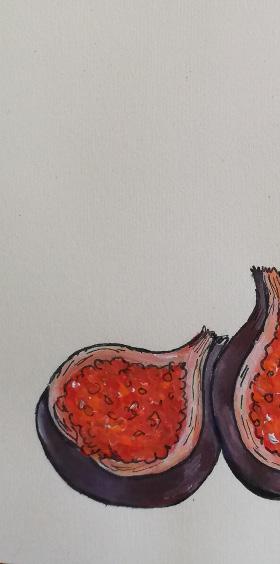
Unsurprisingly, the most prominent sexual icons are women. e curation of the temptress or siren is prevalent across all forms of media. is archetype saw women portrayed in a position of power, luring men to their moral destruction and inability to physically control their male urges. e character of the siren entailed
John Everett Millais’ Ophelia is a painting rich with symbolism. A well-known character of Shakespeare’s Hamlet, Ophelia drowns herself a er facing rejection from her lover. e painting, while beautiful, portrays a pessimistic outlook on love and sexuality. Ophelia’s downfall is an allegory for the consequences that come with sexual awakening. Her story serves as a powerful reminder of the dangers of vesting your entire identity in your relationships and sexuality.
e femme fatale was depicted repeatedly in Pre-Raphaelite works such as John William Waterhouse’s trio of paintings on Circe. Circe, born from myth, was a witch who turned men into animals who in turn served as her slaves. e portrayal of the femme fatale sought to illustrate women who were in control of their own sexuality. On the surface, these women seem empowered. ere is an element of playfulness and irony; a man’s tendency to underestimate women and their capabilities leads to his own death. It is a means of taking down those who believe in the patriarchy, and showing them that they are not all-powerful. is magni cent concept has been tainted by the fact that we view these women through the eyes of men. eir powerfulness becomes not just an attribute to their character, but a trait that makes them more appealing to men.
Intimacy and sensuality are woven throughout art, lm and every form of media out there. From Marilyn Monroe to Brooke Shields, in history, women have been proclaimed as sex icons. Seeing people embrace their sensuality in lm and art o en carries the stain of the artist’s desire. It has become the norm to view certain people in a sexual light, because we know that we are supposed to, which is unfair to both the viewer and the subject.
e inclusion of hidden symbols of lust and temptation adds a sense of tenderness to art, grounding the work in its depiction of humanity.
Orgasms are brain-triggered events, and they are subjective experiences in all genders. However, the male orgasm is o en associated with ejaculation, and a woman’s orgasm is commonly seen as an abstract, illusory concept which is less achievable than a man’s. ere is so much ambiguity and general lack of knowledge for what an orgasm is for any nonmale person, and why sex is o en deemed as over once the male orgasm is reached. It seems that once again, women are drawn the short straw, and that the orgasm gap is just as real as the wage gap.
I think that the portrayal of sex in media is largely to blame for why sex is such a male-centred act; this blame can be placed in particular on the porn industry. Scientists from e University of Quebec looked into PornHub’s 50 most watched x-rated lms. Only 18% of female orgasms in these lms were real, and the other 82% were faked, while men experienced real orgasms 78% of the time. Evidently, this misrepresentation of male and female orgasms in porn can perpetuate unrealistic ideas and expectations of sex for everyone. Once again, we see that the majority of porn is not illustrative of real-life sex, and this leads to the issue of people not knowing how to qualify any orgasm that isn’t a male one.
What about mainstream media? Of the top lms in 2021, only 88% are directed by women, so evidently there is a lack of female insight and an increasing androcentric presence in lms and media. A lot of Gen-Z would have grown up watching raunchy comedies like American Pie, 21 Jump Street and Pitch Perfect, where women are o en portrayed as one-dimensional, sexual objects — and the male protagonists o en only exist in pursuit of sex. is is bound to have had an impression on us as a generation. While men are encouraged to explore their sexual desires, women have been taught to suppress them. Luckily, attention is being increasingly given to this issue with movements such as e Clit Test (@clit.test), an Instagram page which describe themselves as a campaign to raise the bar for the sex we see on screen.
Another problem which has arisen as a result of the general misconception of sex is the faking of orgasms. Studies have found that up to 80% of women have faked orgasms. While the patriarchy plays a large role in this shocking statistic, I also believe that from a young age, girls internalise the idea that they should sacri ce their needs in favour of a man’s. When asking some female friends who have had sex with men, it seems to be the general consensus that girls fake orgasms with guys a lot. As a result of media and, yep, the patriarchy, are women taught that an orgasm is simply out of reach for them? Girls do this when they’re bored of bad sex, and don’t want to make him feel bad. Porn and media also in uence this, as well as a lack of knowledge about orgasming. So many men do just think that sex is over once they’ve orgasmed. However, when talking to female friends who have experienced relationships with women, the opposite is actually true; they have more orgasms and feel the need to fake them less.
I wanted to discuss a bit more what an orgasm means for people in the LGBT+ community, and how the drastic misrepresentation of any orgasm, apart from that of the straight male, a ects more than just women in straight relationships. I got chatting to some friends who have experience with same-sex sex, as well as to others who have orgasmed from both same-sex and inter-sex intercourse. No shock, but porn is grossly misrepresentative of sex of any kind. With sex education in our school systems being so bad, it means that porn is o en someone’s rst form of sex education, and this is especially bad for people in anything but a heterosexual relationship. Mainstream porn is curated for the male gaze, and even lesbian and gay porn is o en made with a straight man in mind.
is misrepresentation leads to apprehension and blurred lines as to what sex is, especially in samesex relationships.
However, while there is a considerable lack of education when it comes to sex in the LGBT+ community, it seems that perhaps
there is more space for discussion in same-sex relationships. Women are o en more comfortable asserting themselves and having sex with themselves as well as their partner in mind. For samesex couples, as someone I was talking to about the topic put it, “you understand the anatomy of your partner better than someone with a penis, you’re more likely to know what to do” In reality, women should be orgasming just as much with women and men — however, lesbians seem to have more satisfying sex. It has been found that while less than 60% of straight women orgasm most of the time during sex, over 90% of straight men, bisexual men and lesbian women orgasm. So women aren’t to blame for the orgasm gap. If men are able to over 90% of the time in same-sex relationships, so should 90% of women.
ere is so much room for improvement in our sex lives, but understanding the basics of an orgasm might help. Maybe it’s time to question yourself: where did you get most of your knowledge about sex from? Do you really think straight men talking to straight men about sex, who have all taken their knowledge from porn and misinforming media, is your most accurate source? Talk to some women and people in the LGBT+ community in your life and stop stigmatising talking about sex. Everyone has something to learn and everyone has something to share. rough open discussions like this we are able to create a safe space in which everyone can talk about sex.
Tuesday 11 October |14
outline the central aspects of a successful long-distance relationship
style.
I had no idea it’d be the rst of many incredible dates spanning a summer of love that took us all across America, even including stops to meet each other’s families along the way. A er being nearly inseparable for three full months, I was completely set on trying my hand at a long-distance relationship once again. Yes, I said again.
Being
accepted to College six months ago was like being given the opportunity of a lifetime. Only weeks a er this incredible news, he entered my life. I was working as a barista at a café in Colorado and he was a co ee lover. We admired each other for months and I started to wonder if something more could bloom between us, if we ever had the chance to plant the seeds. I was moving countries shortly, and I didn’t plan on seriously dating before my departure. I was sure that pursuing it wouldn’t make any sense.
Fully aware of my future endeavors abroad, he still asked me out on a date. I—certain of my unwillingness to be tied
down before my departure— still accepted. Similarly to my acceptance letter from College, I felt that a date with him was an opportunity I couldn’t pass up.
A er all, it could just be a fun summer ing. You know, Grease
A er my rst long-distance relationship, I was a blatant nonbeliever. Everyone has their own uniquely formed opinions on long-distance relationships — in the modern day, there’s no shortage of avenues down which someone can nd themselves in one. While many cynics I know immediately bat away the concept of a successful long-distance relationship, listening to anecdote a er anecdote—as well as my own experiences—have le me with the conclusion that about half are successful, half unsuccessful.
My last relationship was seven years long. I met him in high school and I’d taken a gap year, spending almost all of my free time with him. Yet I longed to begin College, and I had to make a di cult choice.
Moving only two hours away from him, we gured that long distance couldn’t be too hard. I wasn’t certain how the distance would a ect our bond, but I hoped if we shared the burden of traveling back and forth, we could keep the re alive. A er all, it was ve years into the future and we weren’t sick of each other. at’s a very telling aspect, looking back. We weren’t sick of each other. ere’s no passion in that statement, it’s a lukewarm acknowledgement. Our re had been dying and would only dim further as the school year began.
My rst tip for succeeding in your own prospective longdistance romance: text. Looking at my two long-distance relationships, one so far incredibly successful, and the other an admittedly sad failure, the di erence is most apparent in texting. In my rst, I would text him to make sure he was still alive. is wasn’t odd, mind you, as he had described himself for our rst few years as not the texting type — and I had adjusted accordingly. While you don’t need a texting type for a long-distance relationship to be successful, there should be enough enthusiasm to keep in touch regularly. While we were used to a lack of communication, a stronger e ort to text or call would’ve likely hugely bene ted us.
Currently, no app on my phone is used more than WhatsApp. I send morning voice messages, pictures of my morning walk, articles I like, anything that strikes
me. Five hours a er I begin, my boyfriend will respond with his replies and his own voice memos, pictures, articles. I go to sleep during his a ernoon, and I wake up to messages he sends a er I’ve gone to bed. While this could be considered overkill for long-term couples, or those who aren’t glued to their phones, it’s the easiest way for us to quickly share pieces of each of our lives. Texting is also a great gauge of personal enthusiasm — if it feels like a daily necessity to you and not like a chore.
My second piece of advice: call. Not only is hearing their voice totally di erent from reading a message, but with quicker response time, there is a deeper level of intimacy. Even better than simply calling is FaceTiming, for the highly necessary visual aspect.
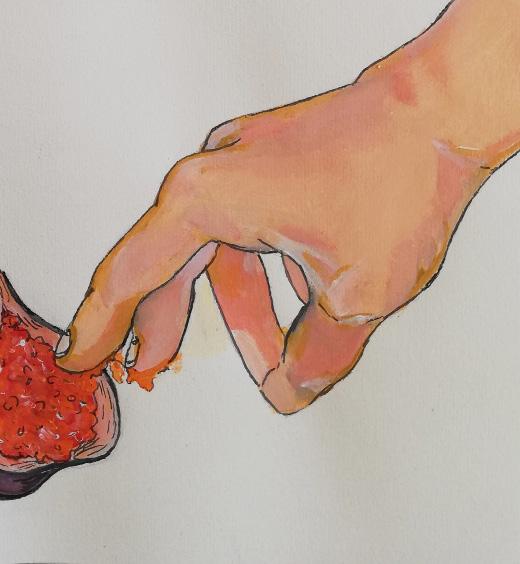
Seeing their face reminds you exactly why you’re doing all this in the rst place.
My ex and I never called each other, with texting every now and then seeming to be su cient. ere was no longing to see the other person, no inherent desire to hear their voice. With
my current boyfriend, I get face or voice withdrawals if we don’t make time to call within a matter of days. Scheduling time for these even once a week is imperative, considering how easy it is to get wrapped up in classwork, clubs and extracurriculars.
My third and most indispensable tip: plan. is is the beating heart of the longdistance relationship, the reason it’s all happening. e frequency of visitation doesn’t always have to be a tell-all. Sometimes you live 100 miles away, other times 4,000. It was easier to see my ex-boyfriend at the time when the distance was only a two-hour drive. We saw each other once every two weeks at least, sometimes more. Yet, the shorter distance didn’t help. Our ghts became more and more frequent. Our lives grew further and further apart, especially with the pandemic unfolding. We stood confused across the widening gap, almost unable to recognize each other by the time I graduated. When I had to move again, we knew it couldn’t work.
Next month, my boyfriend and I will be planning two weeks in December all to ourselves, spanning across Christmas and New Year, a continental European vacation in a world of our own.
ree months couldn’t be farther away, but it’s the light that guides us across our individual days. Our time together will be short, but we plan to make the most of it.
e most important tip of them all, and an umbrella statement for all three, is: communicate. I don’t mean this speci cally in the previously discussed ways — as many have heard before, open and honest communication is indispensable. Underneath the necessity for communication is e ort: e ort representative of raw inner desire. With my rst relationship, I didn’t feel like I was choosing to be with him. It felt obligatory a er being with him for such a long time.
at’s quite di erent from my current relationship, in which it feels I’m choosing him daily over singlehood, over being with anyone else. I could leave anytime, but would absolutely hate to do so.
I’ve learned that you have very limited control over who you fall in love with, and when. But what always remains in our control is the maintenance of our love. As author Ursula K. Le Guin posited in e Lathe of Heaven, “Love doesn’t just sit there, like a stone, it has to be made, like bread; remade all the time, made new.” No matter how far apart you are from your partner, good relationships require a genuine e ort from both parties. If you both put that e ort in, the distance doesn’t have to feel very far at all.
| Tuesday 11 October 15
ARTWORK BY ELLA SLOANE FOR TRINITY NEWS
1. any food, drink or substance that increases sexual desire
2. substance used to help reduce friction
3. the practice of, or desire for, multiple intimate romantic relationships at once, with the informed consent of all partners involved
4. an ancient Greek concept referring to sensual or passionate love

5. the Greek goddess of love
6. the Roman god of love
7. a wearable dildo

9. physically or emotionally intimate acts preceding sex
10. climax
Tuesday 11 October |16 CROSSWORD BY ELLA SLOANE FOR TRINITY NEWS






 Ireland’s Oldest Student Newspaper
Ireland’s Oldest Student Newspaper

































 PHOTO
PHOTO




















 Catherine Grogan Elisa Eckstein Ruby Topalian
Julie Frisch Emma Rouine
Maile Monteiro Eoghan Conway Katelyn Davis
Catherine Grogan Elisa Eckstein Ruby Topalian
Julie Frisch Emma Rouine
Maile Monteiro Eoghan Conway Katelyn Davis















